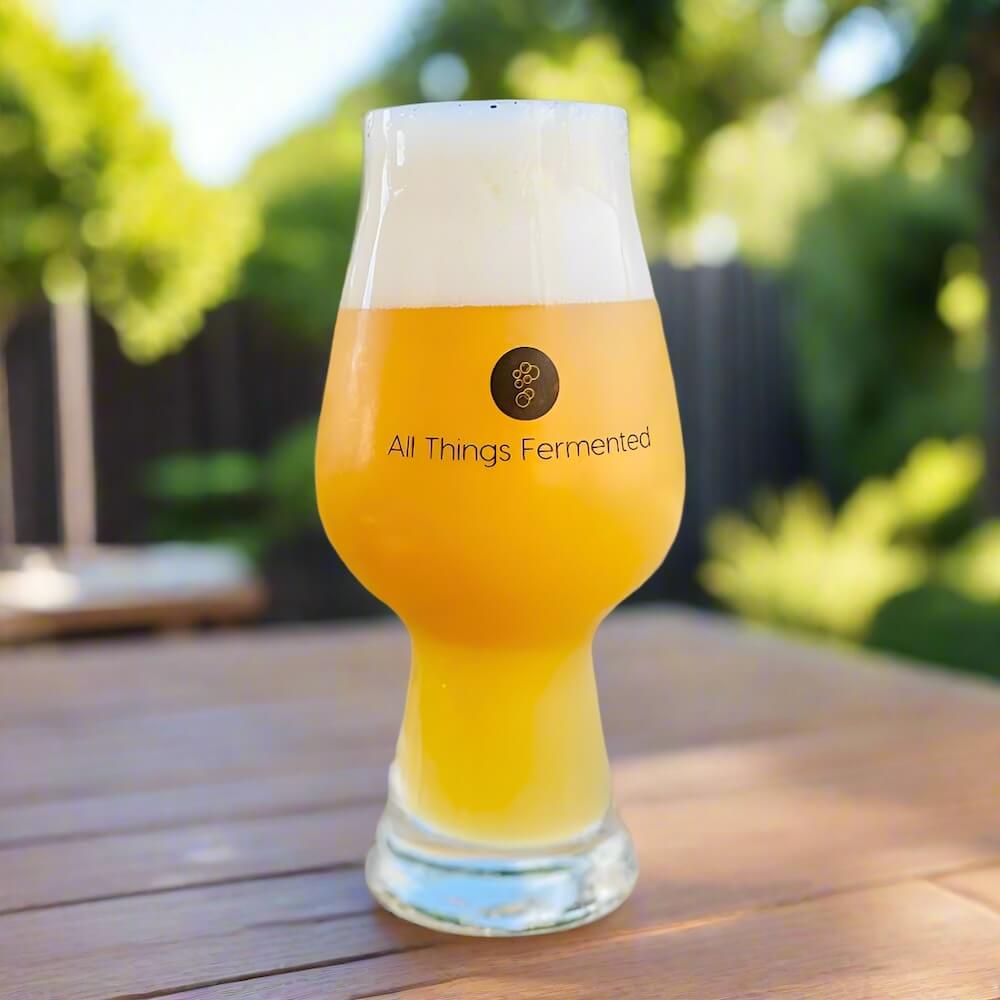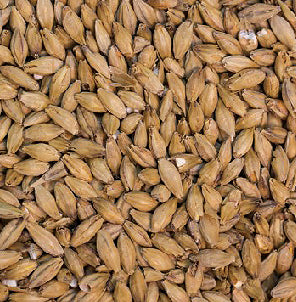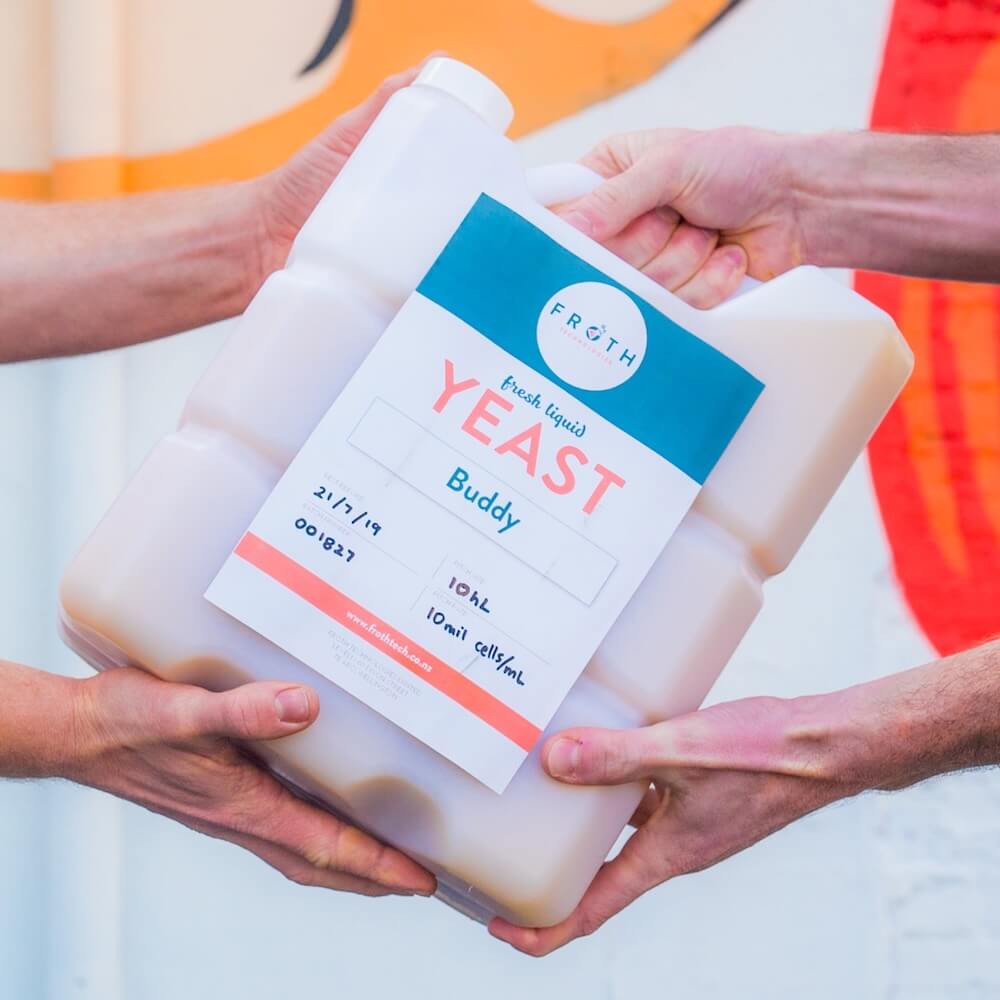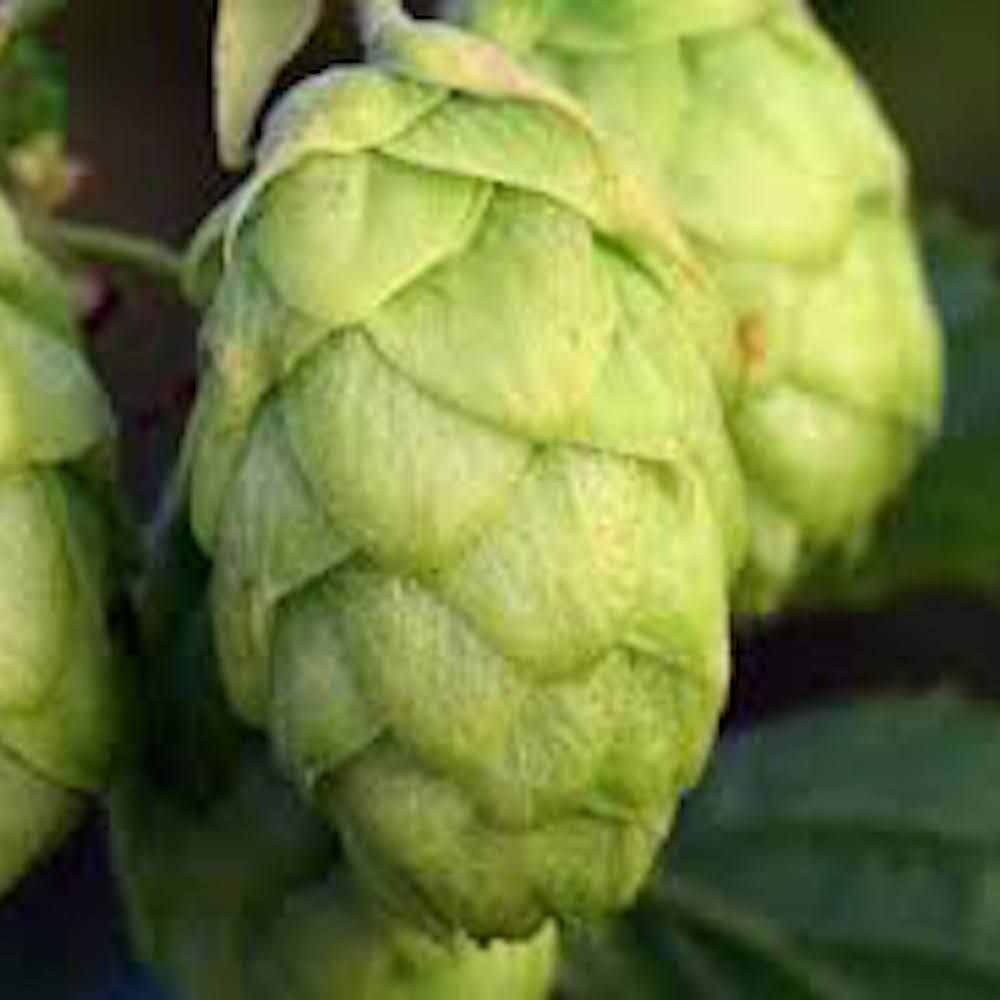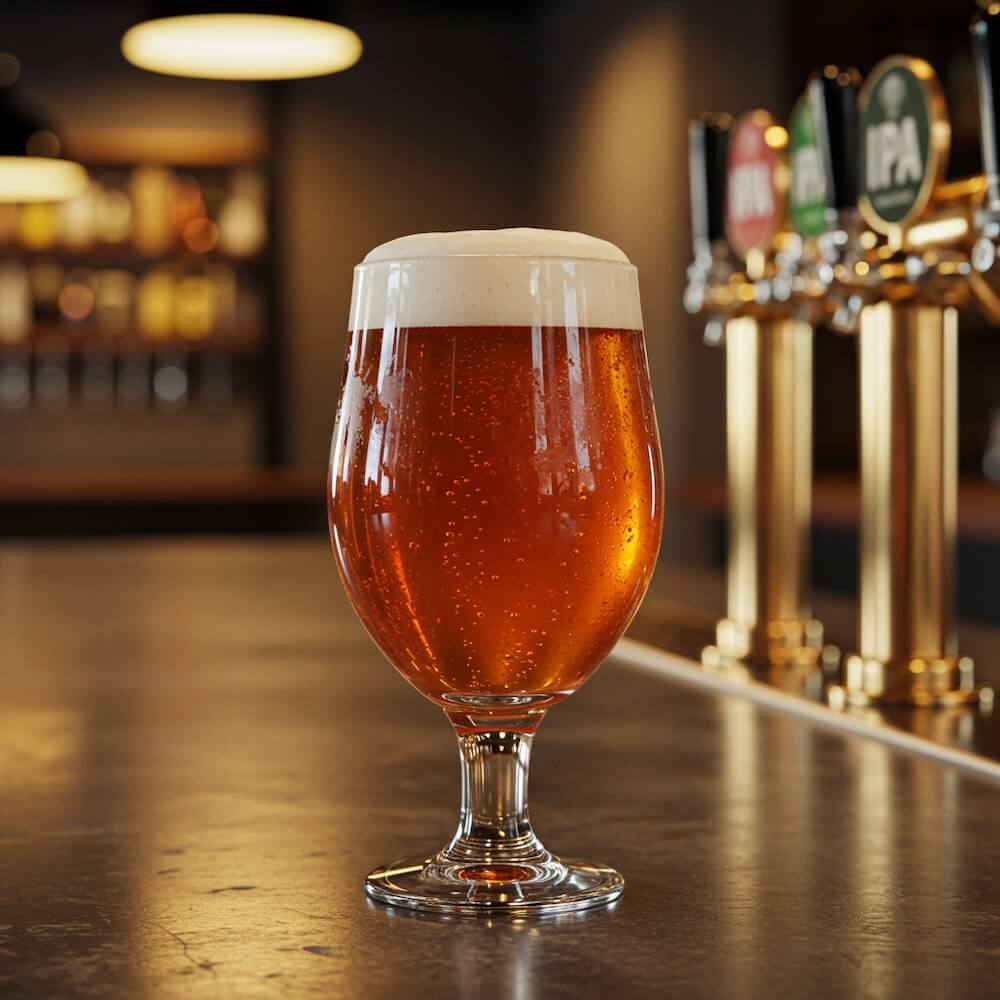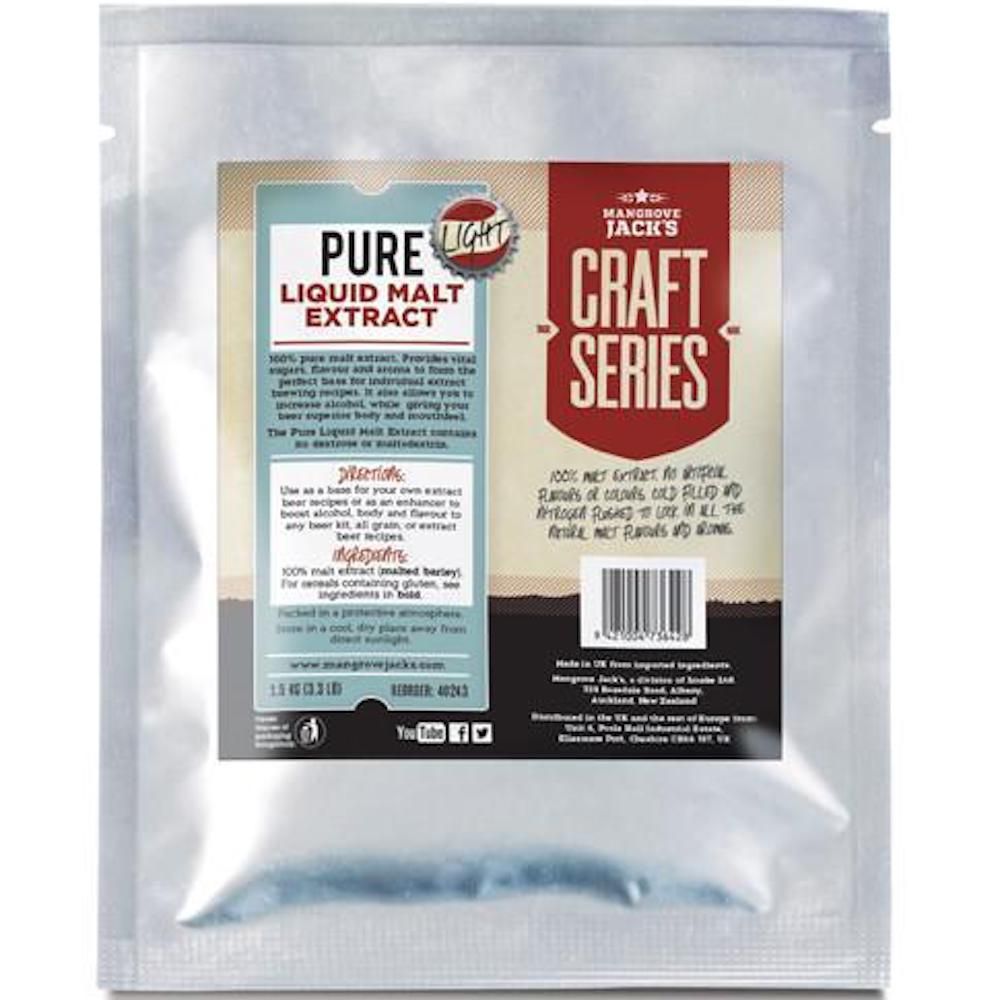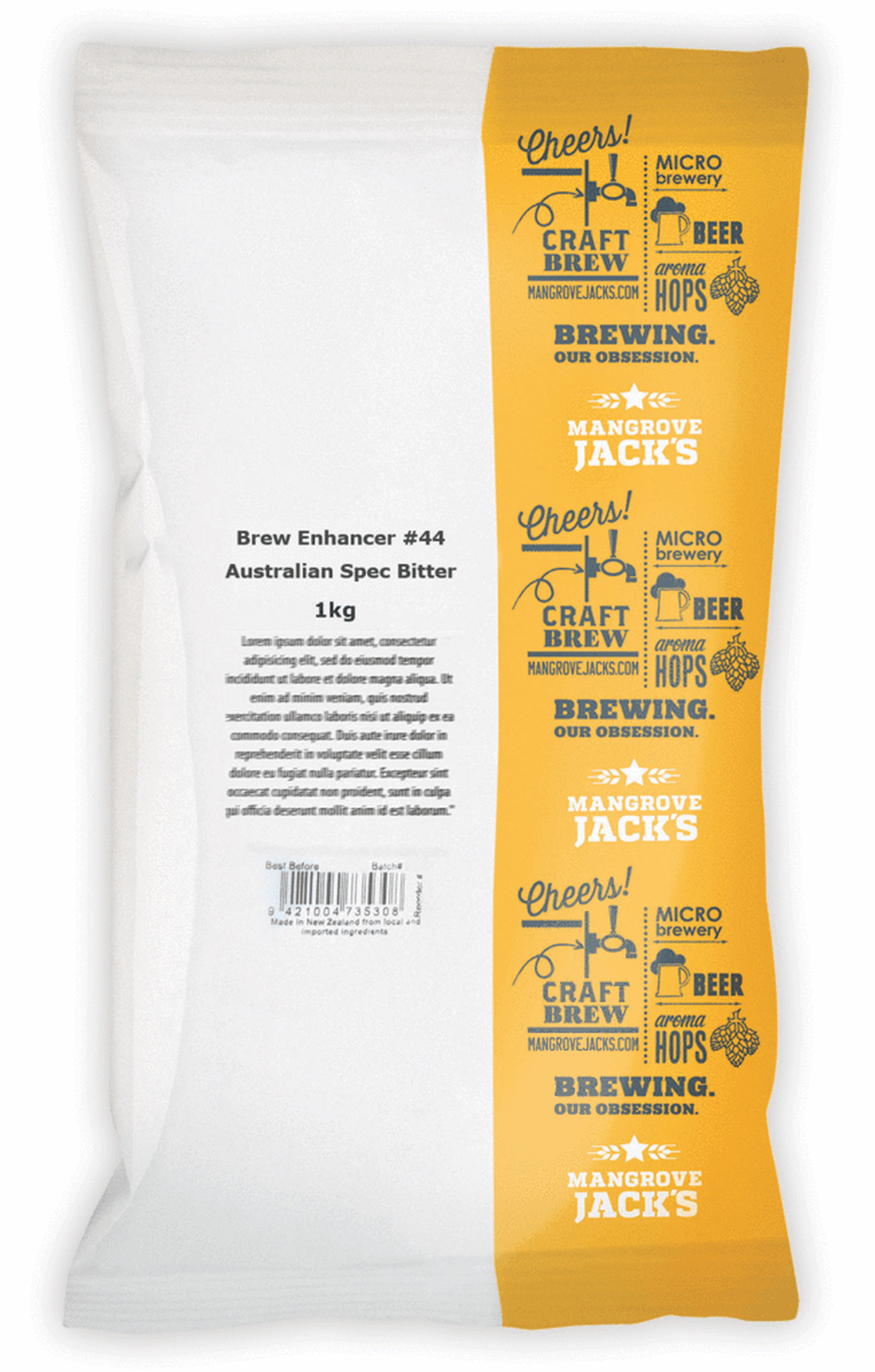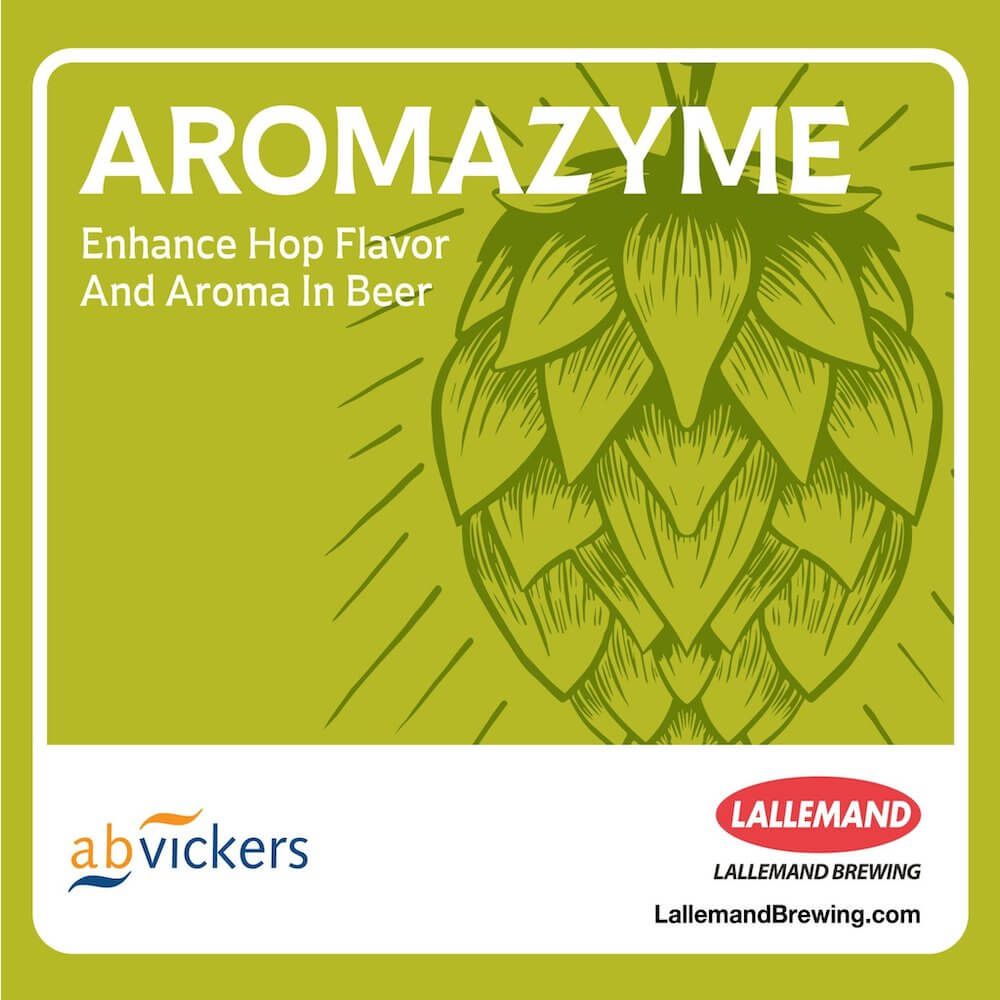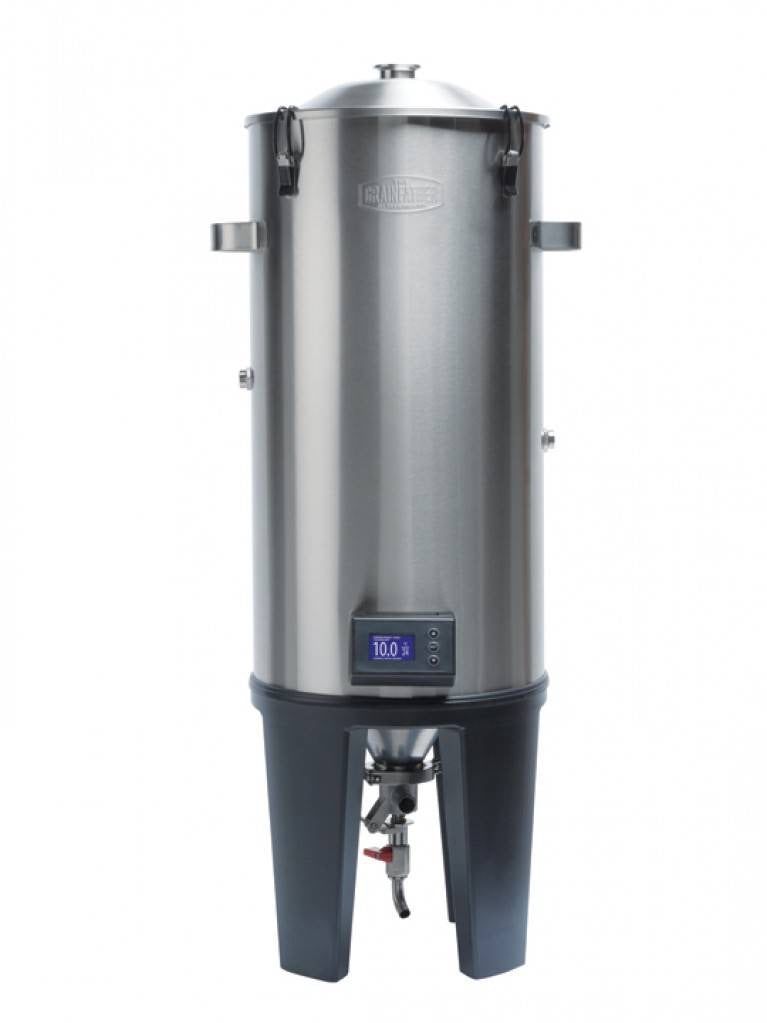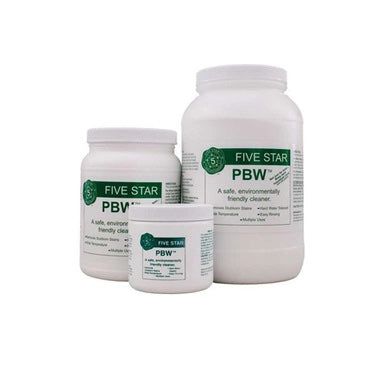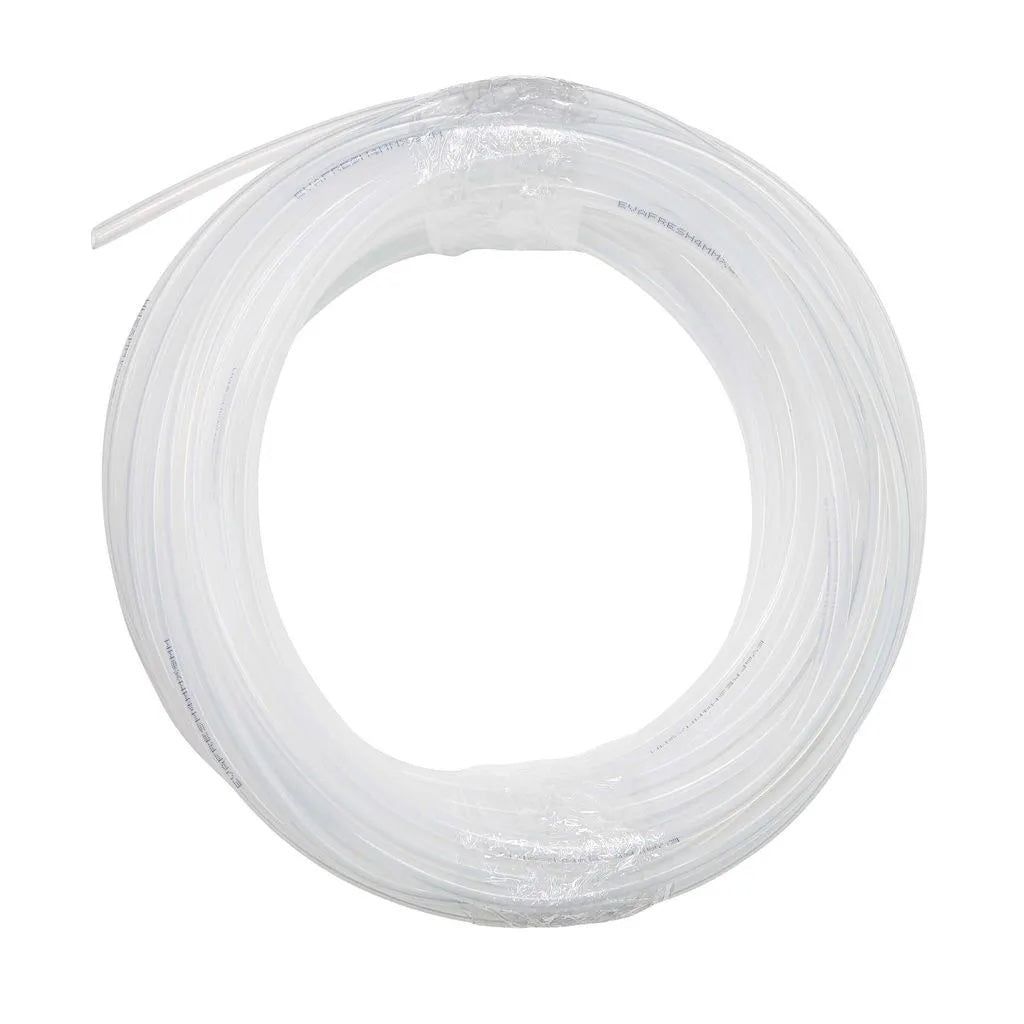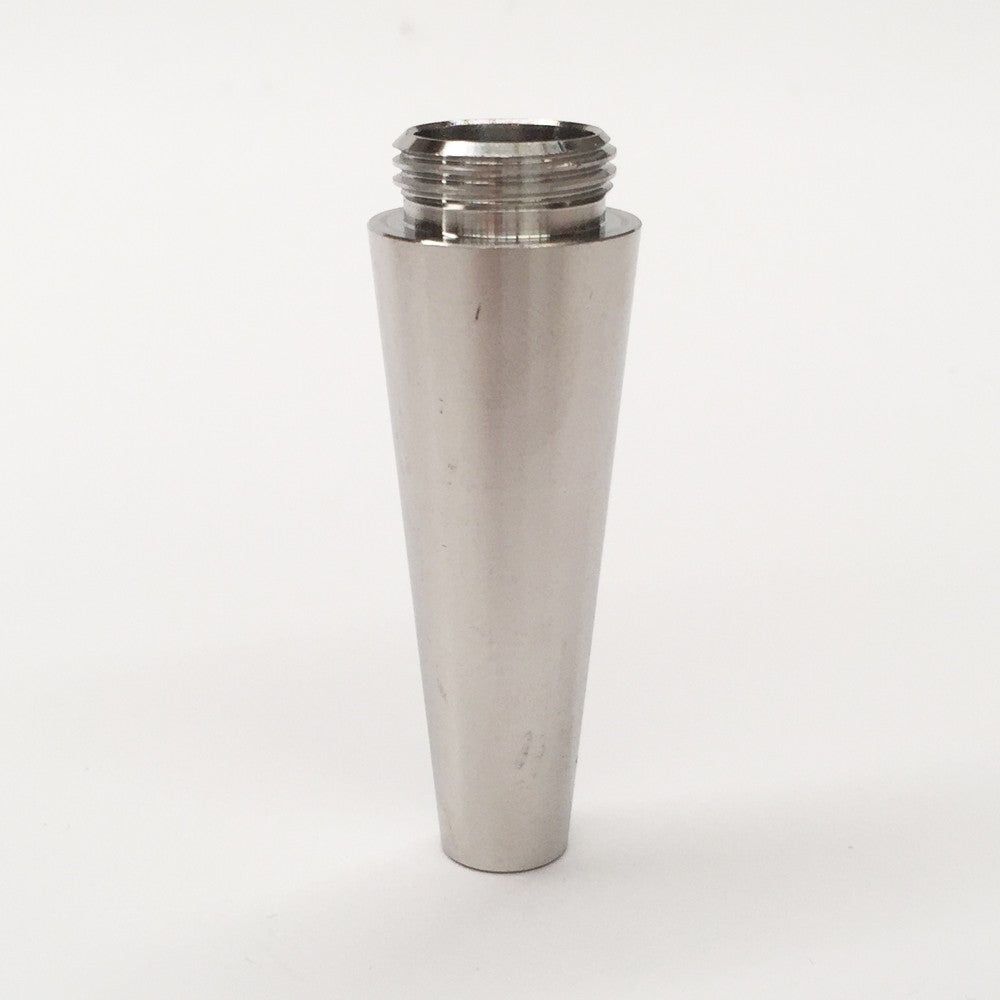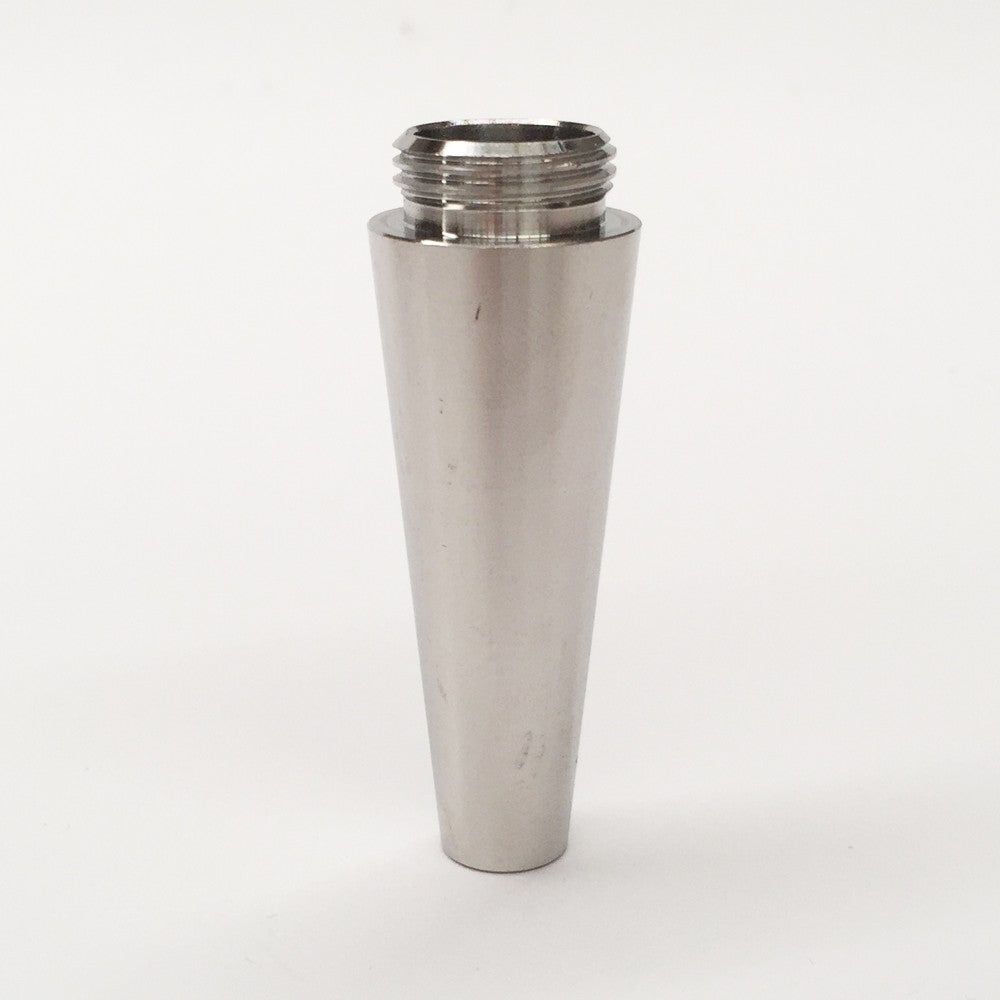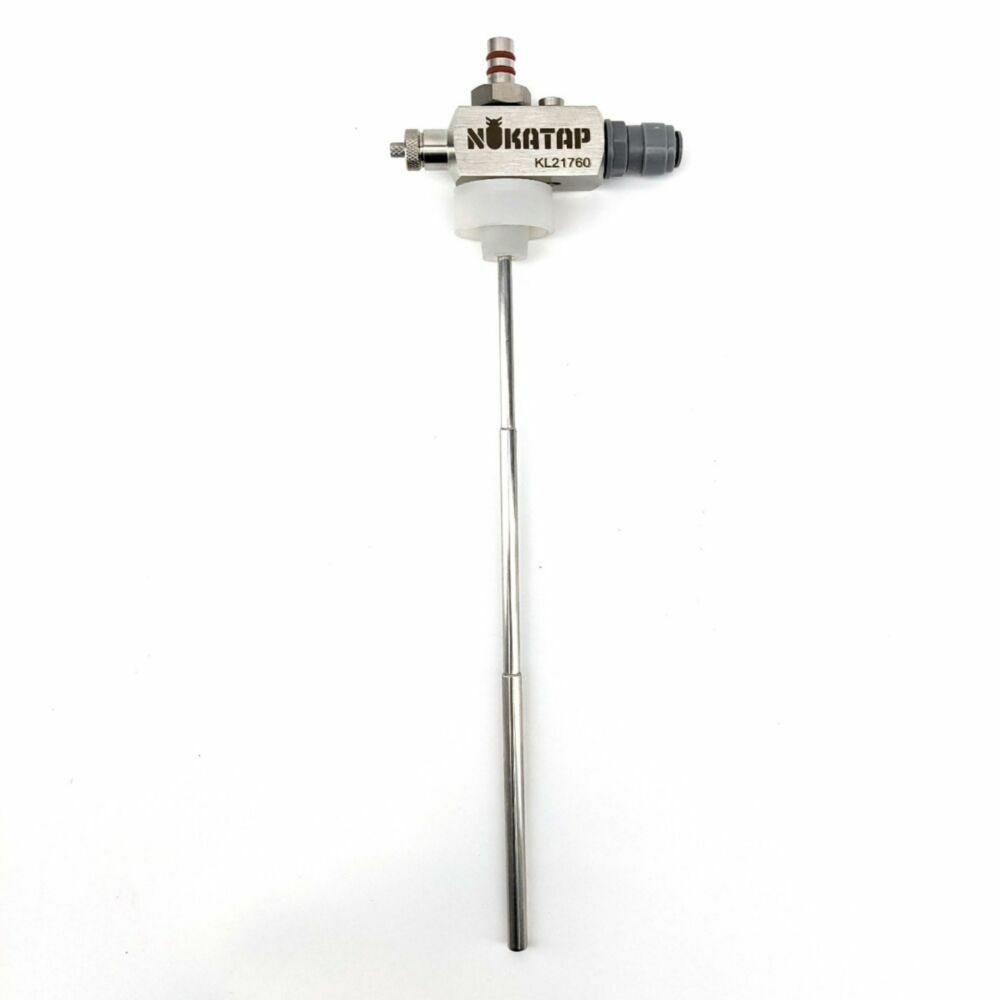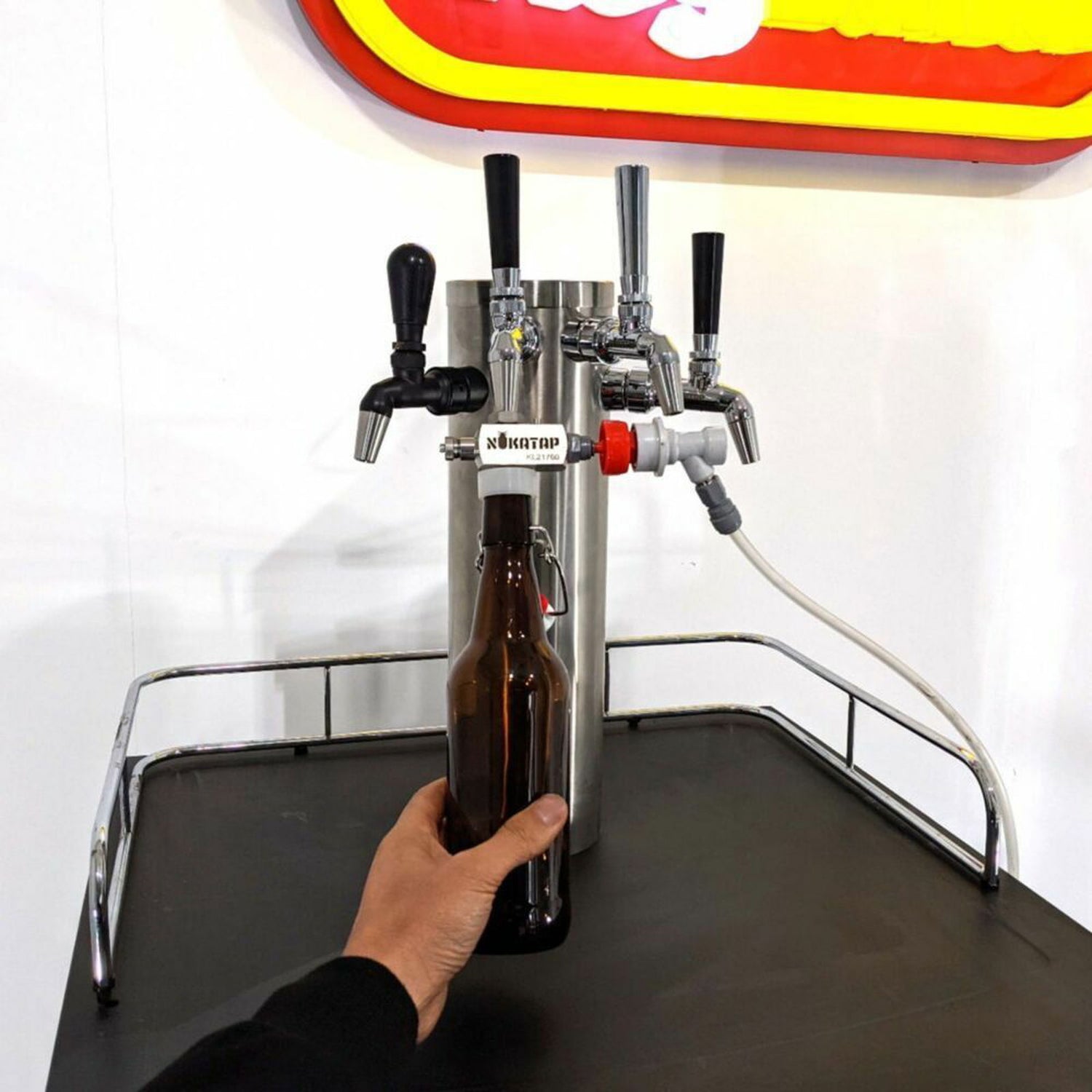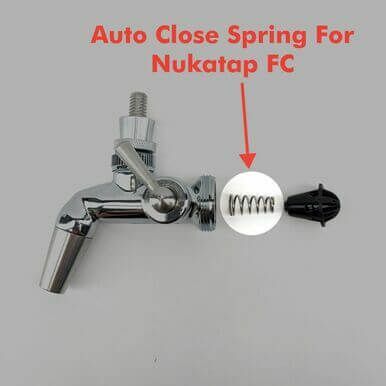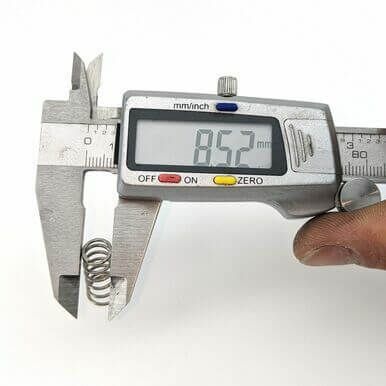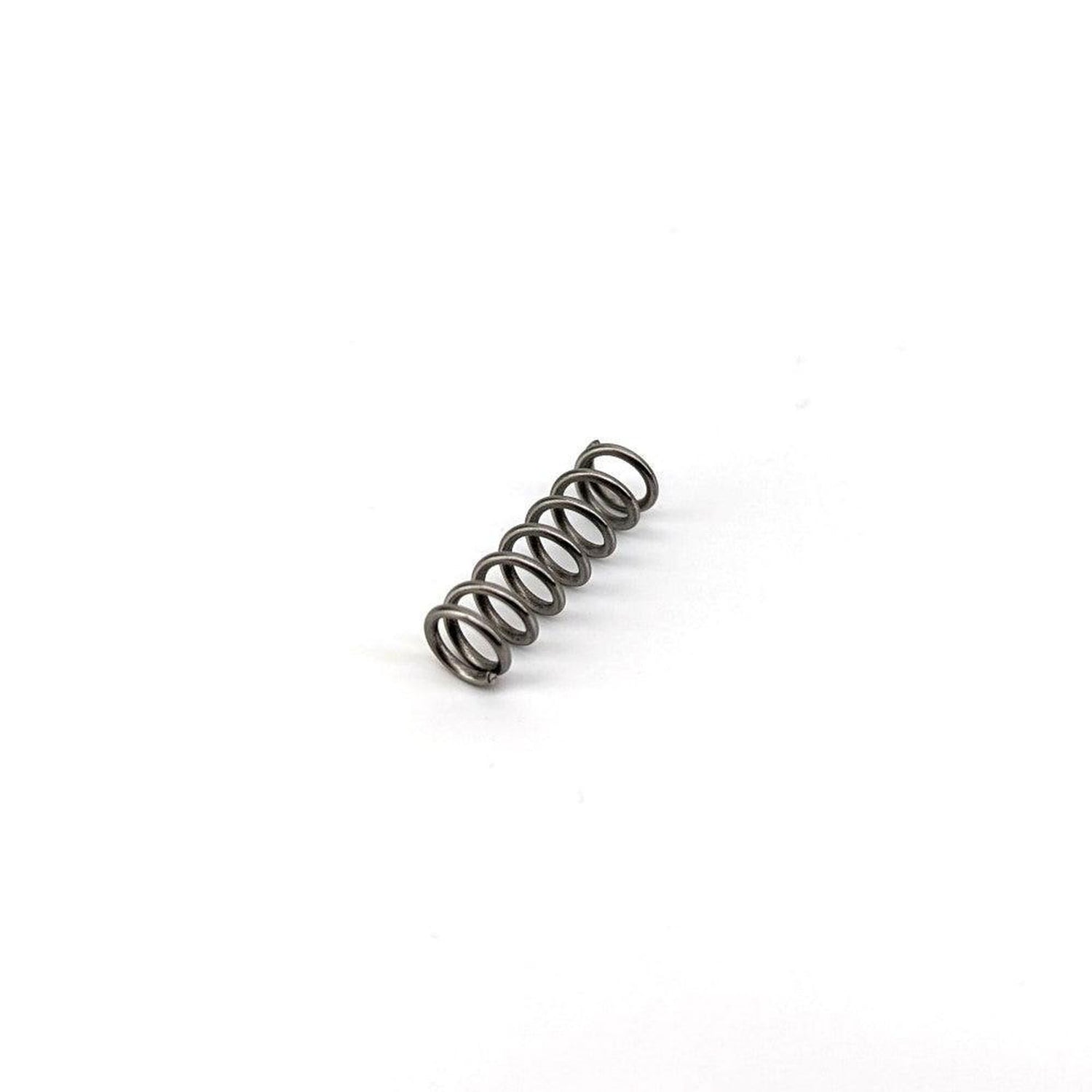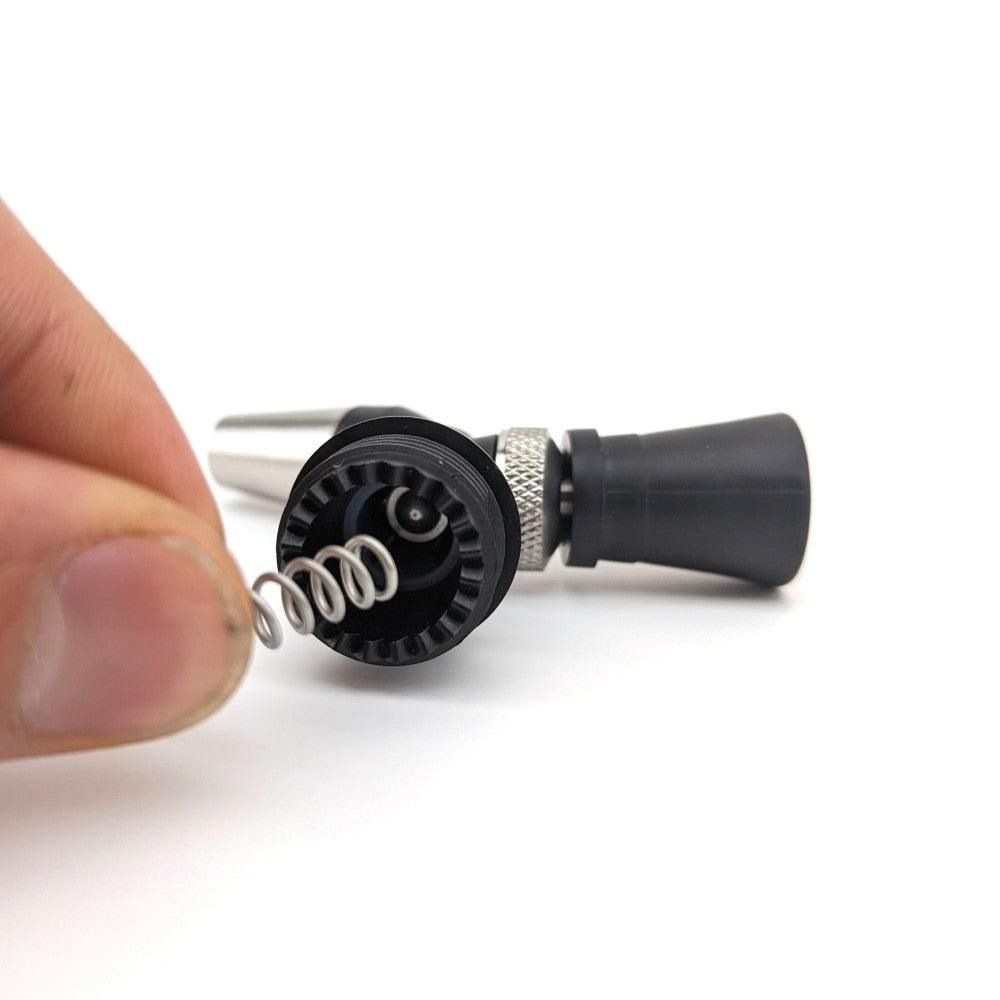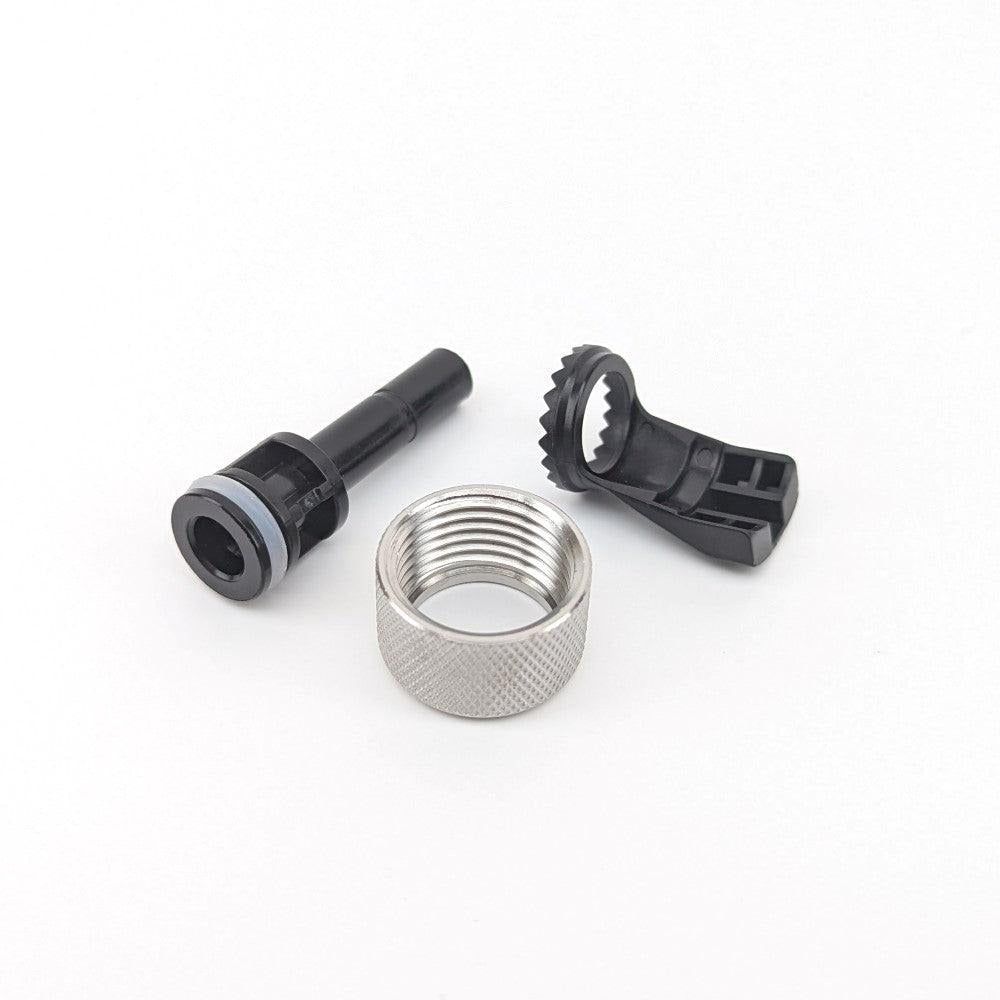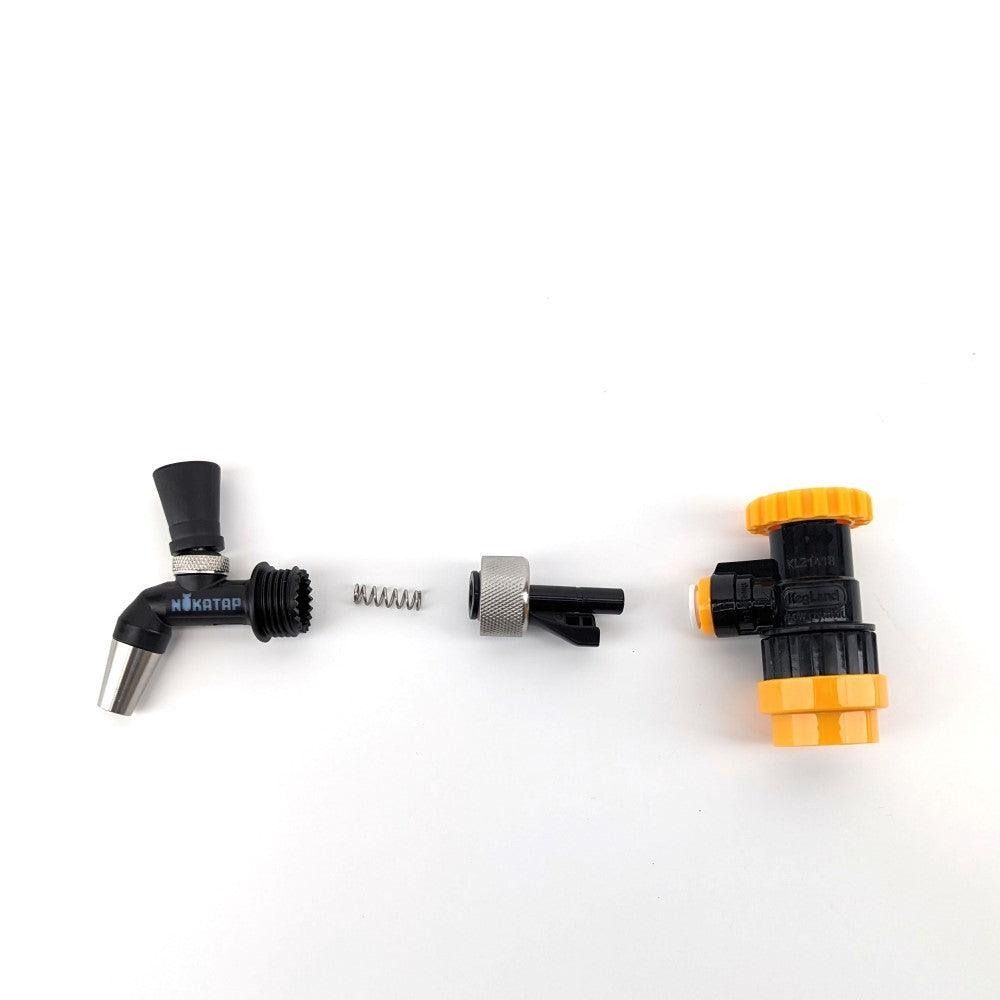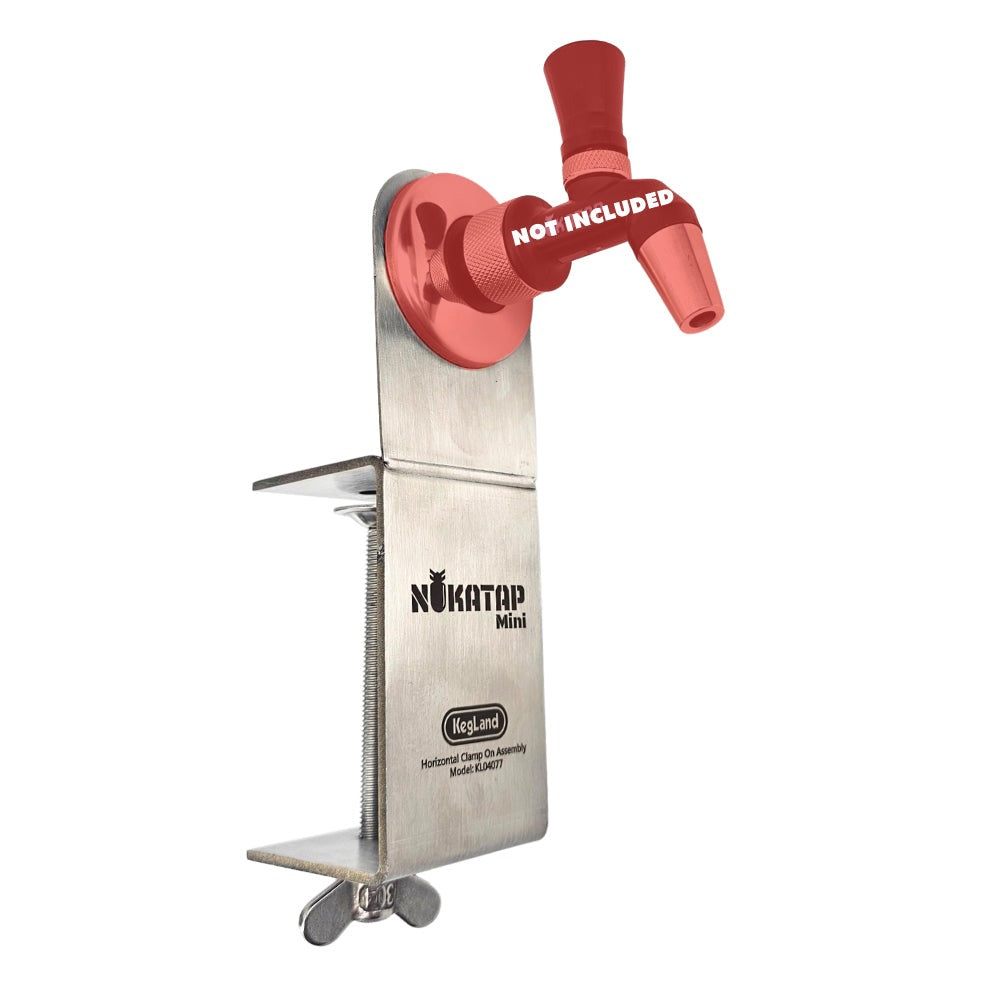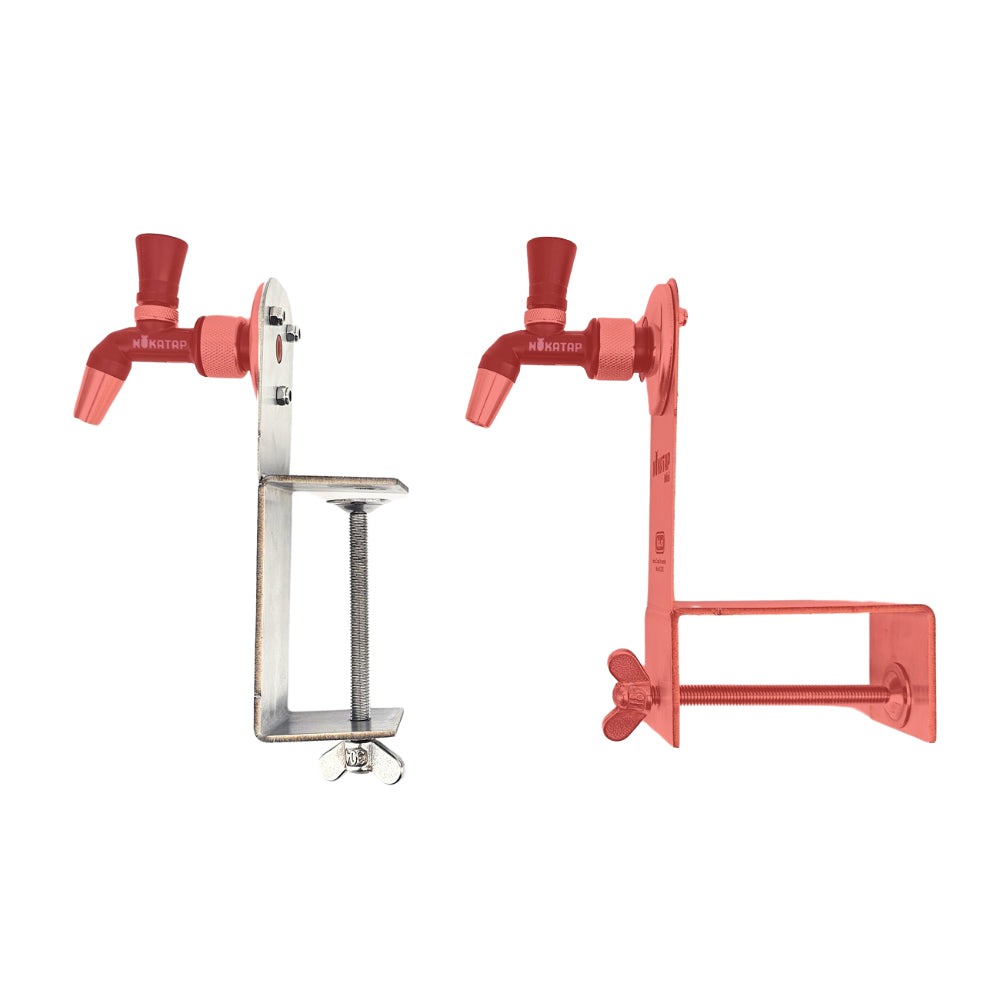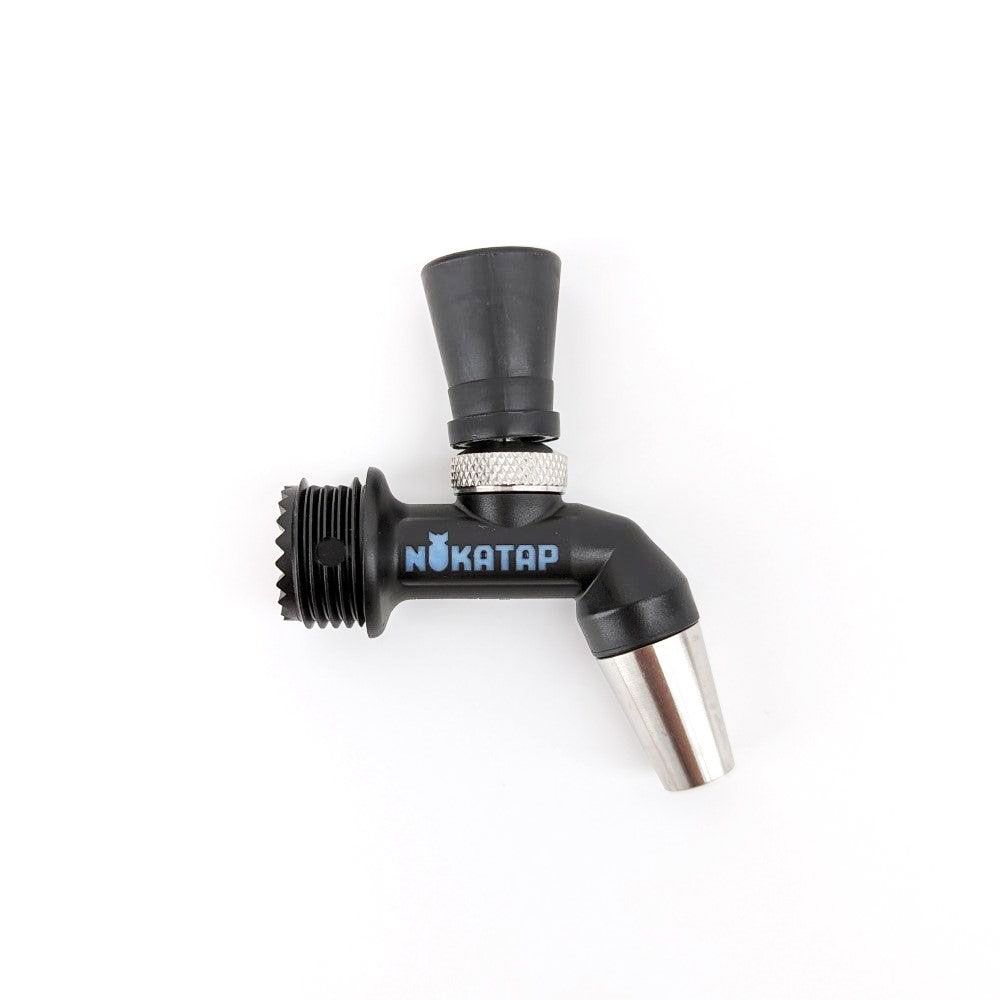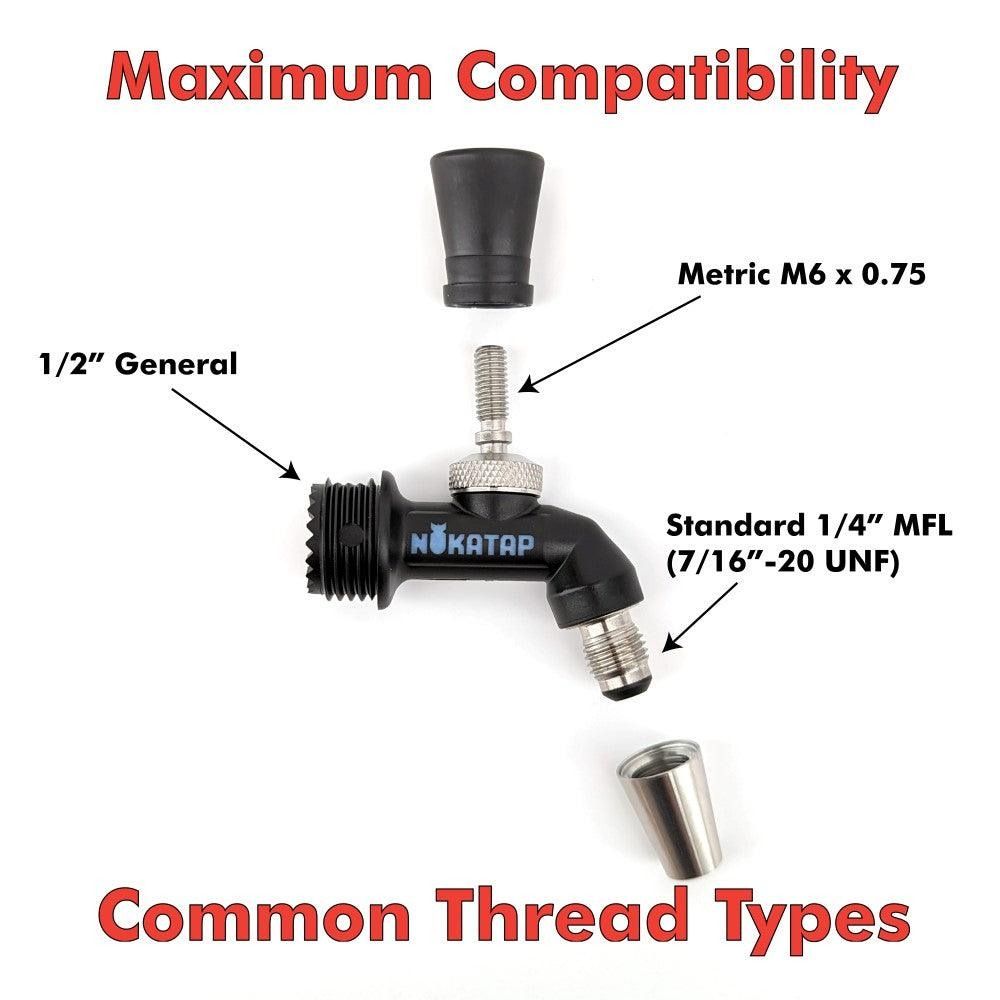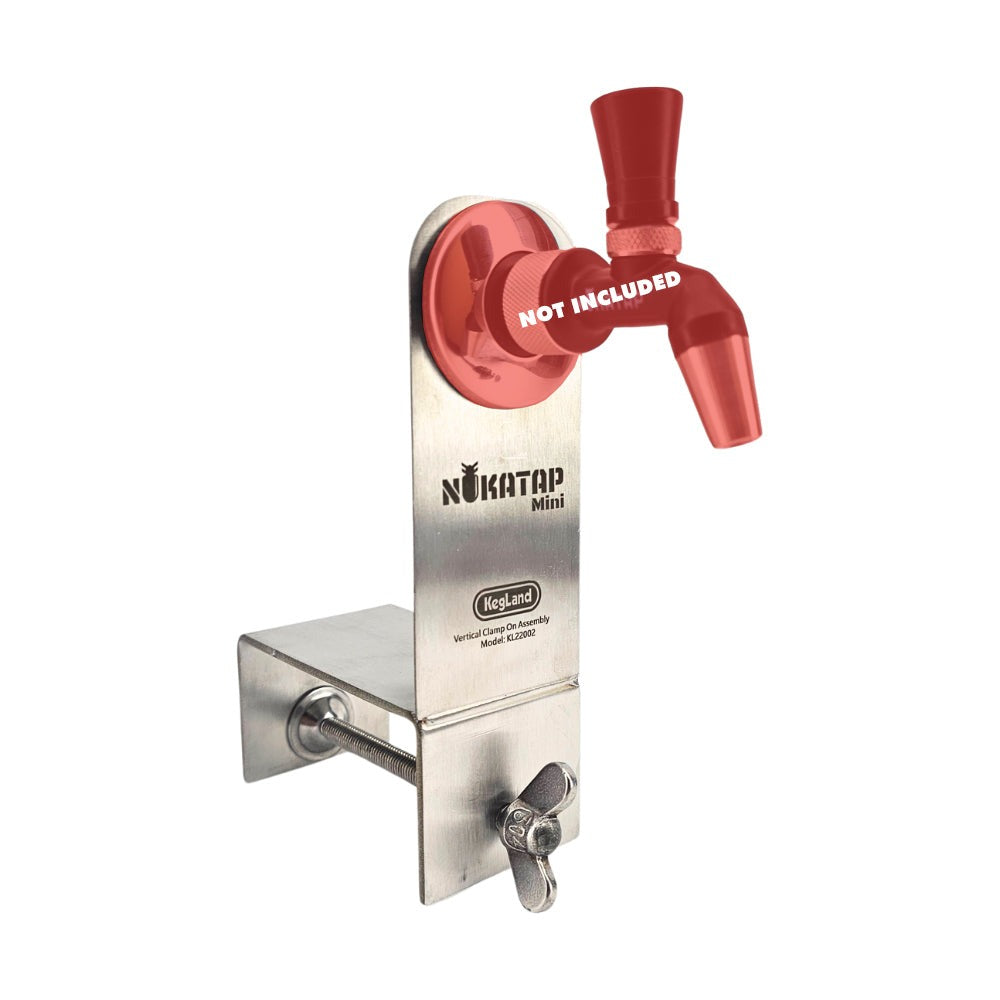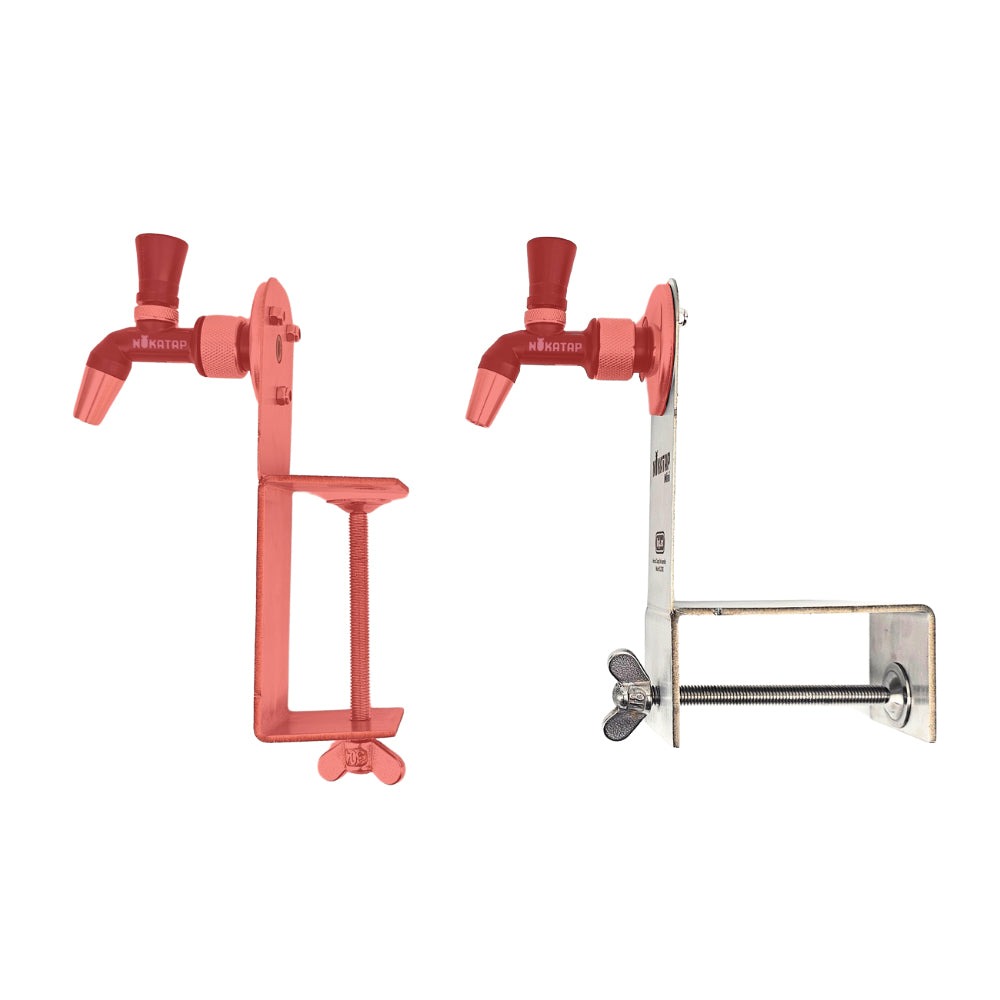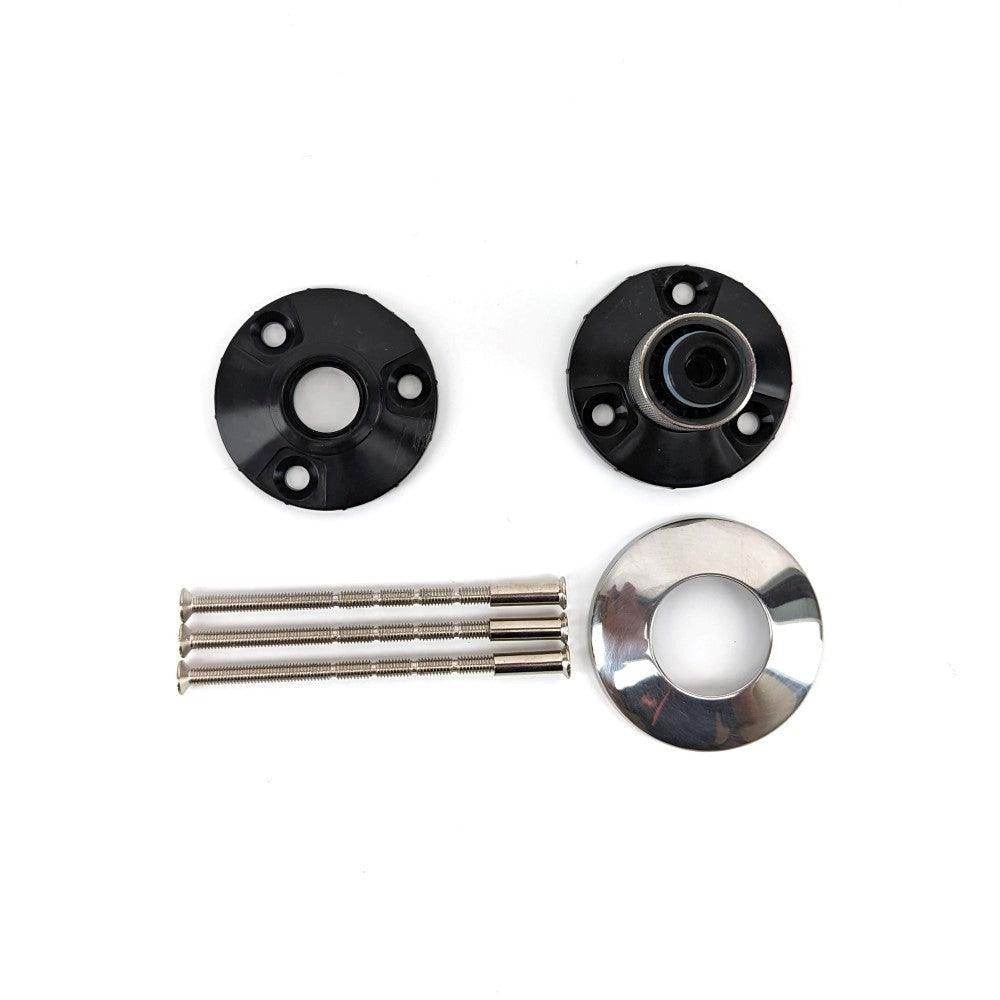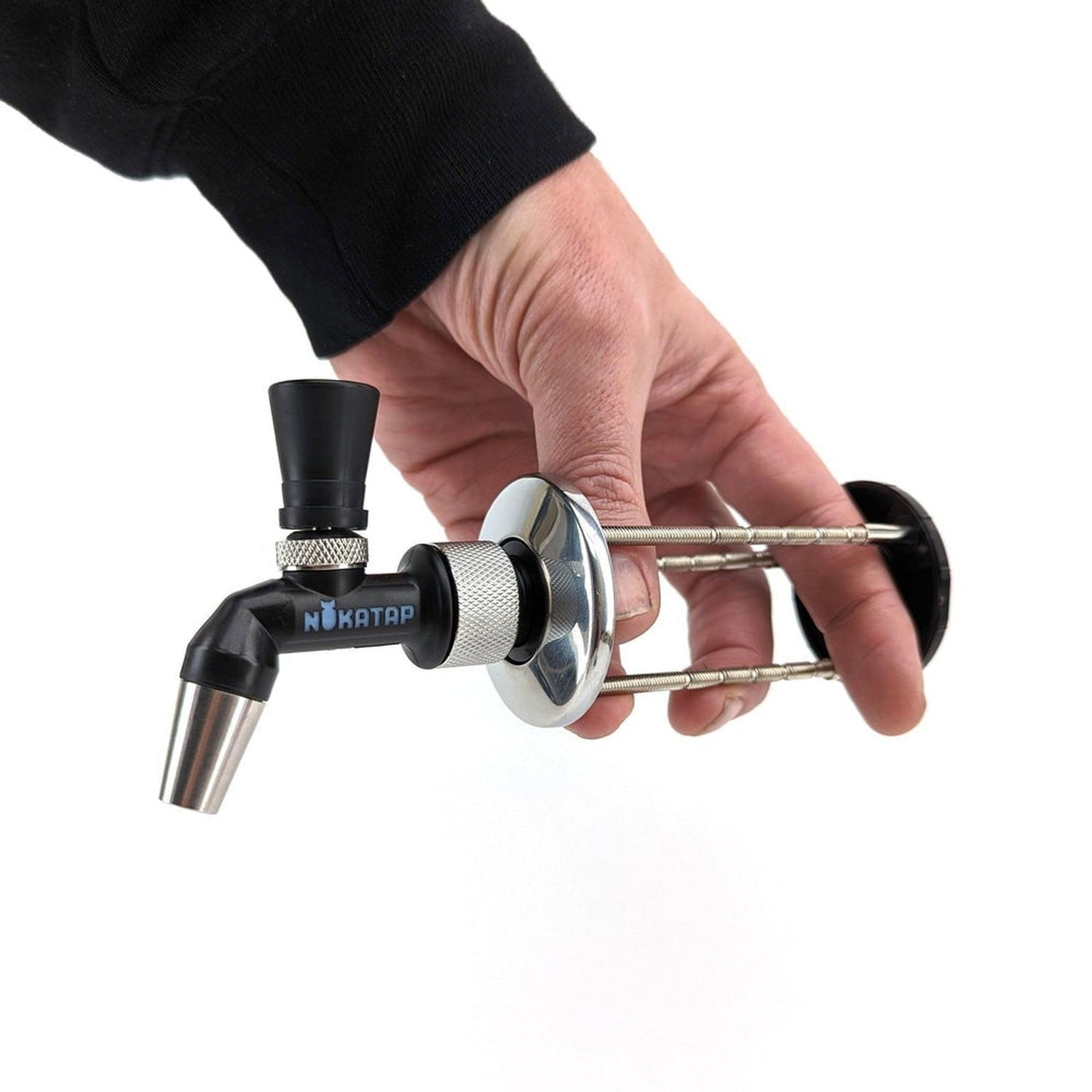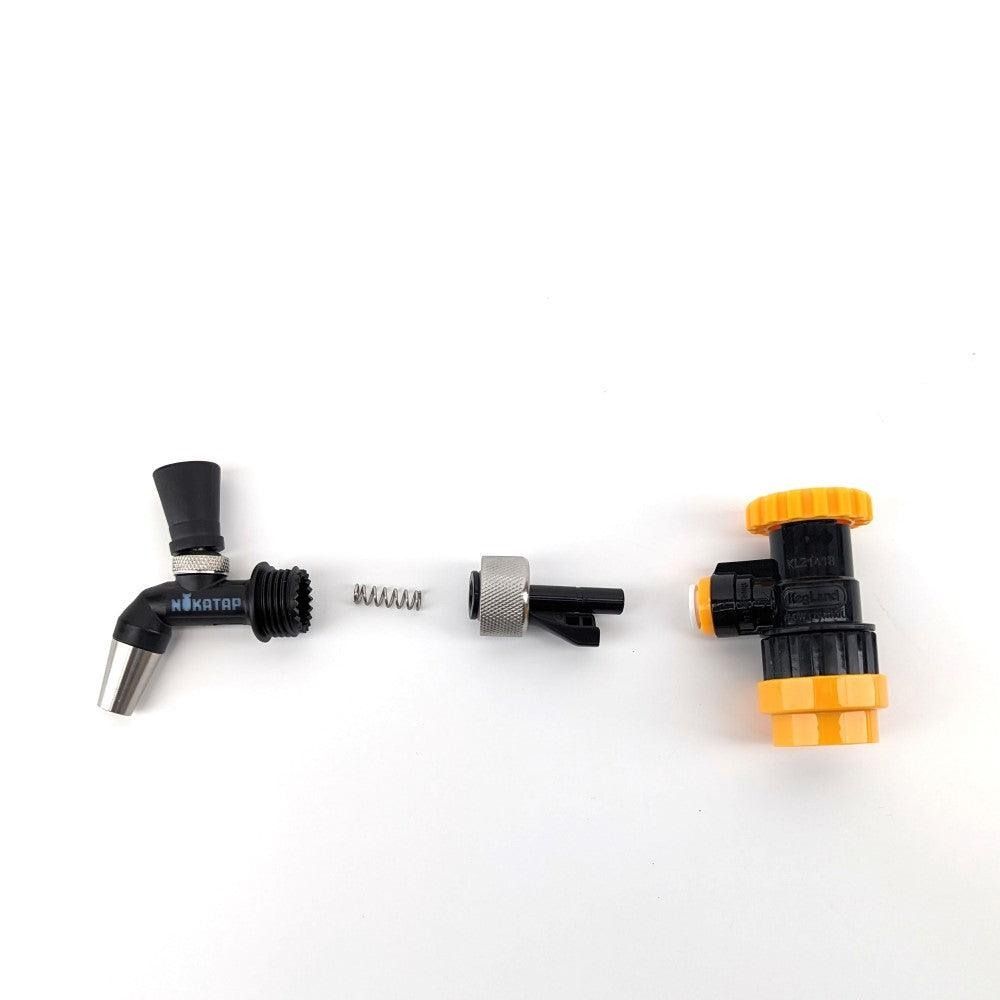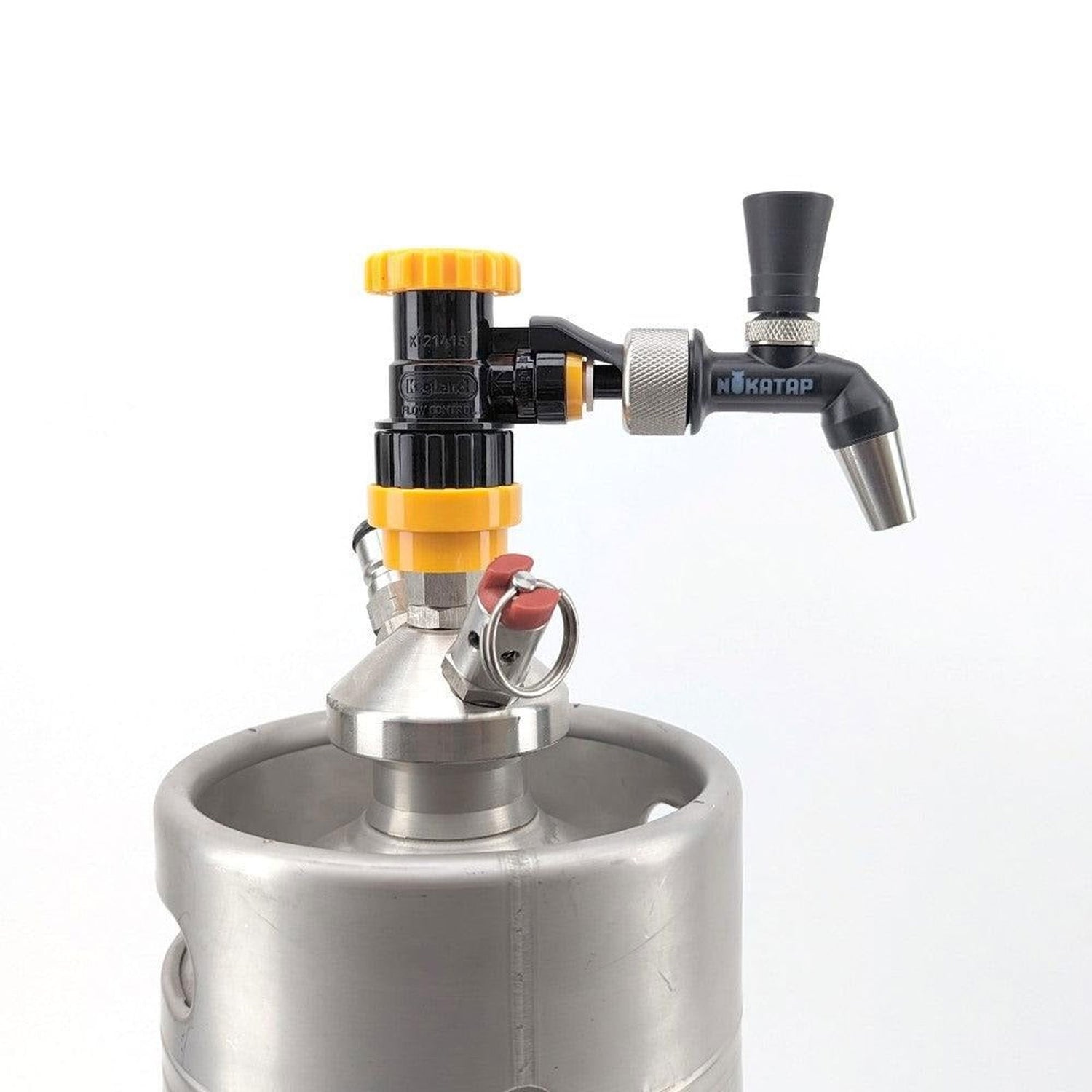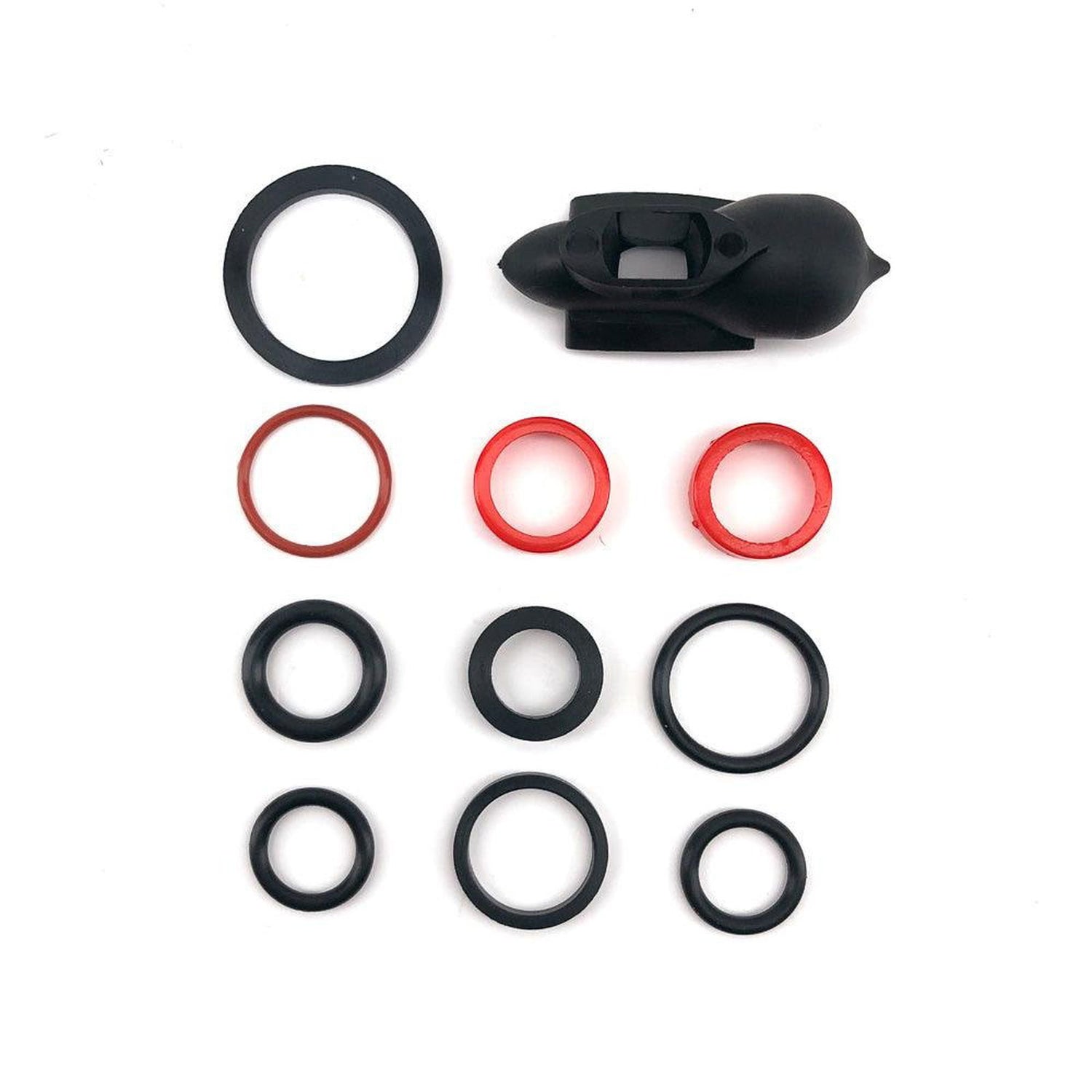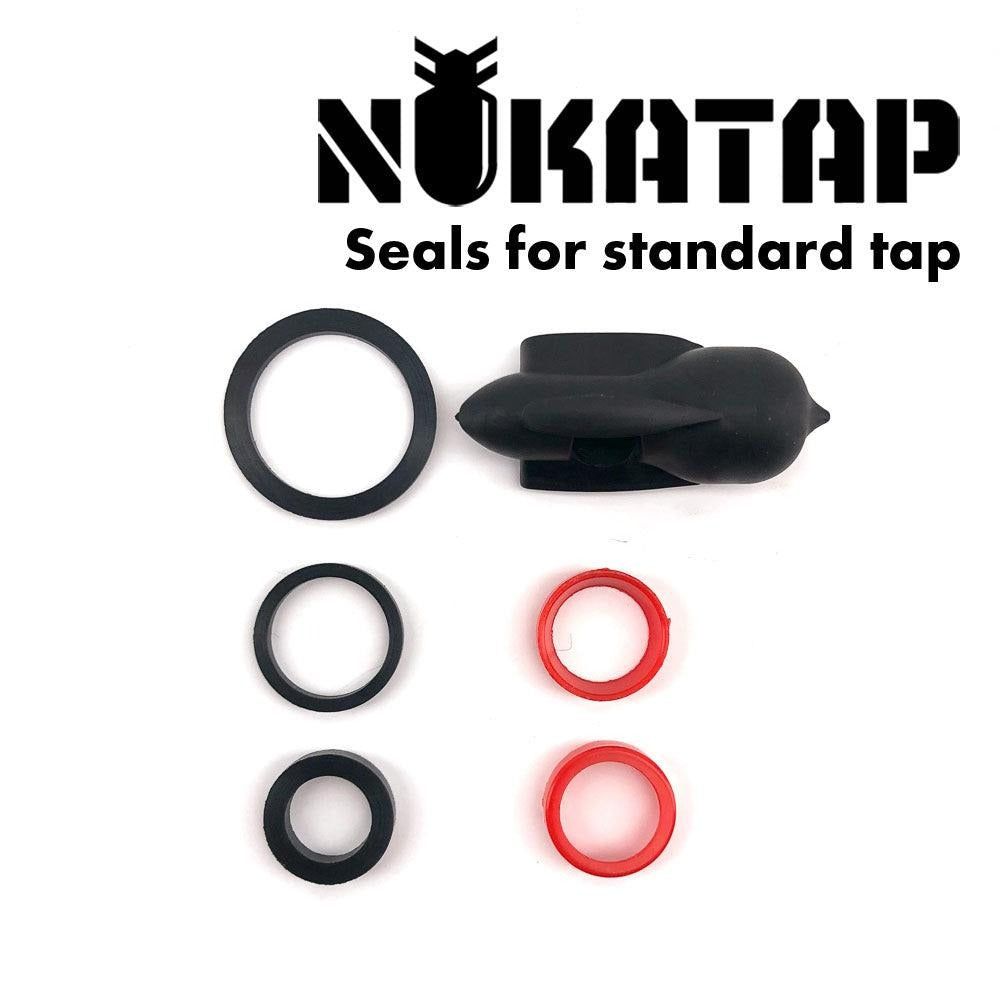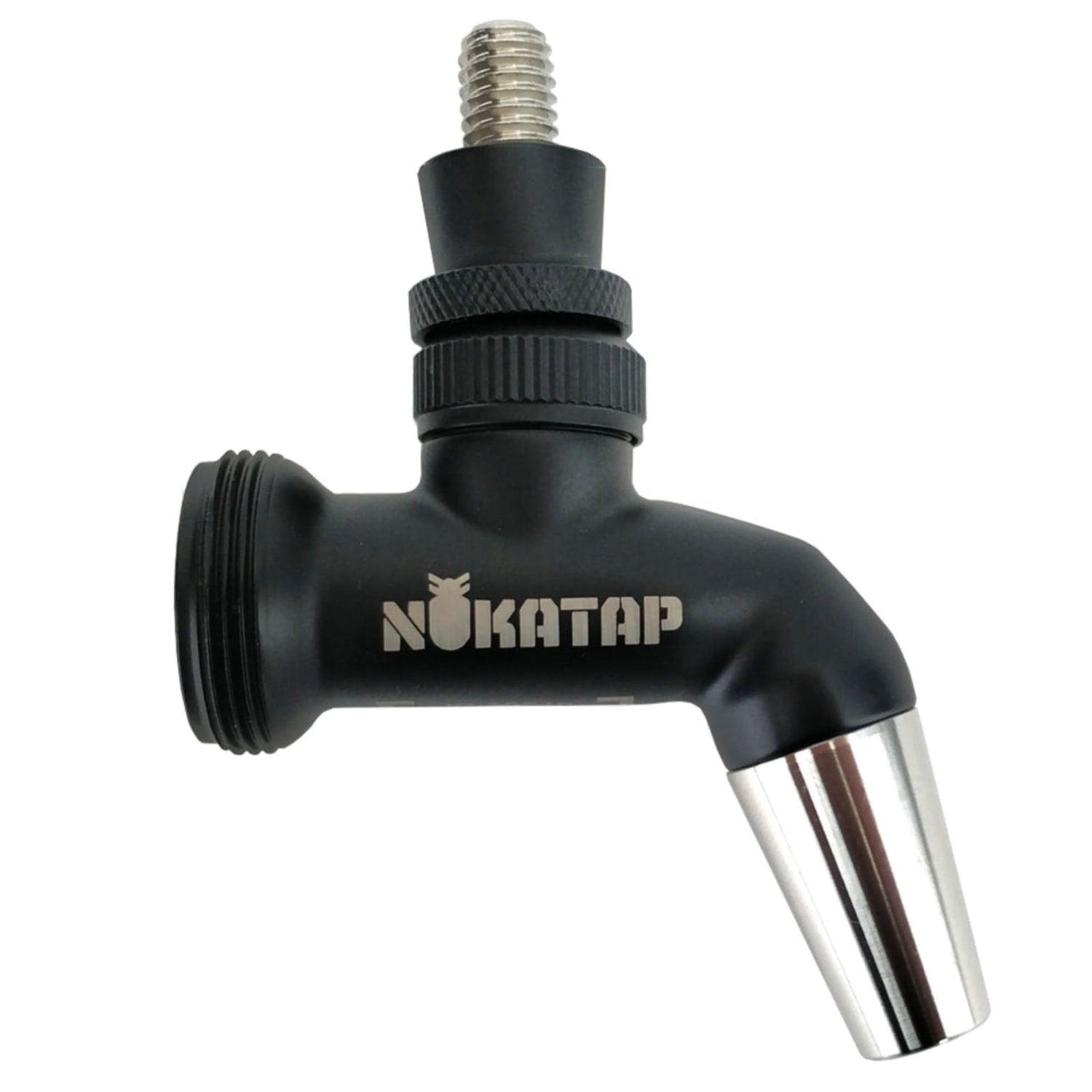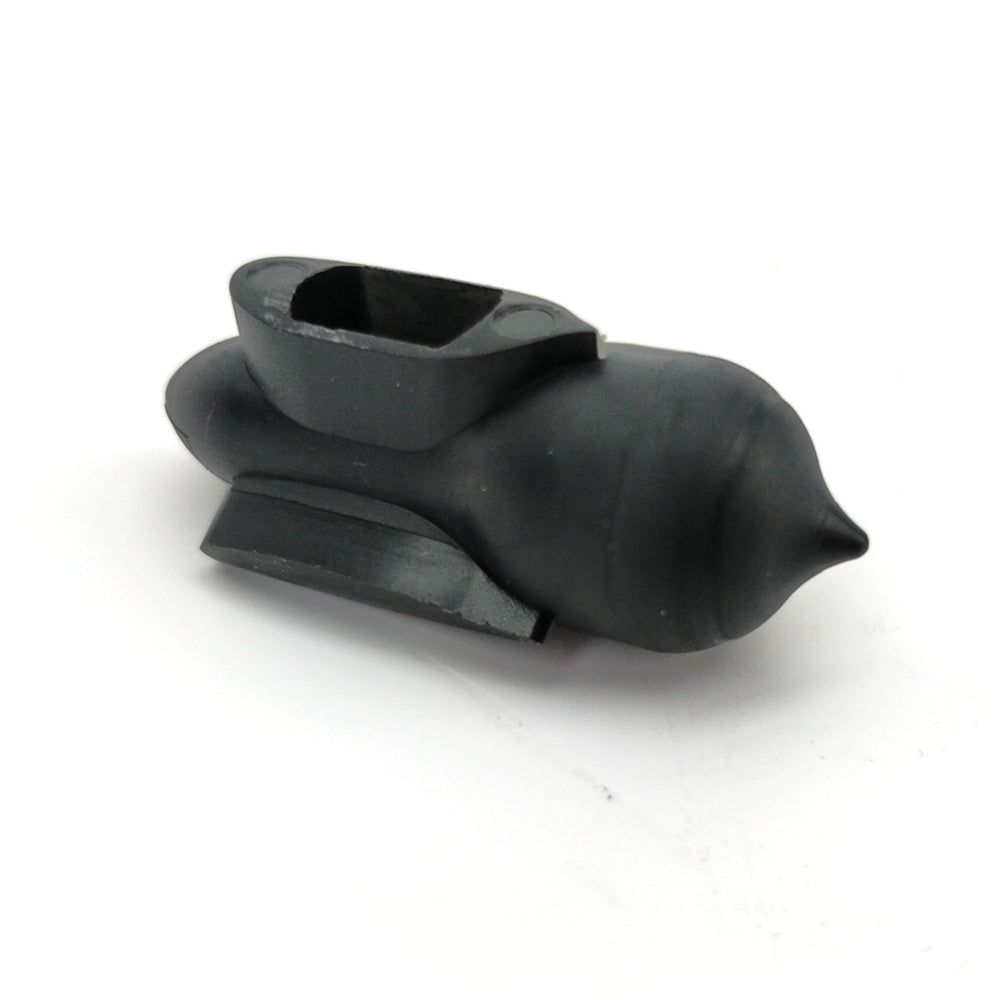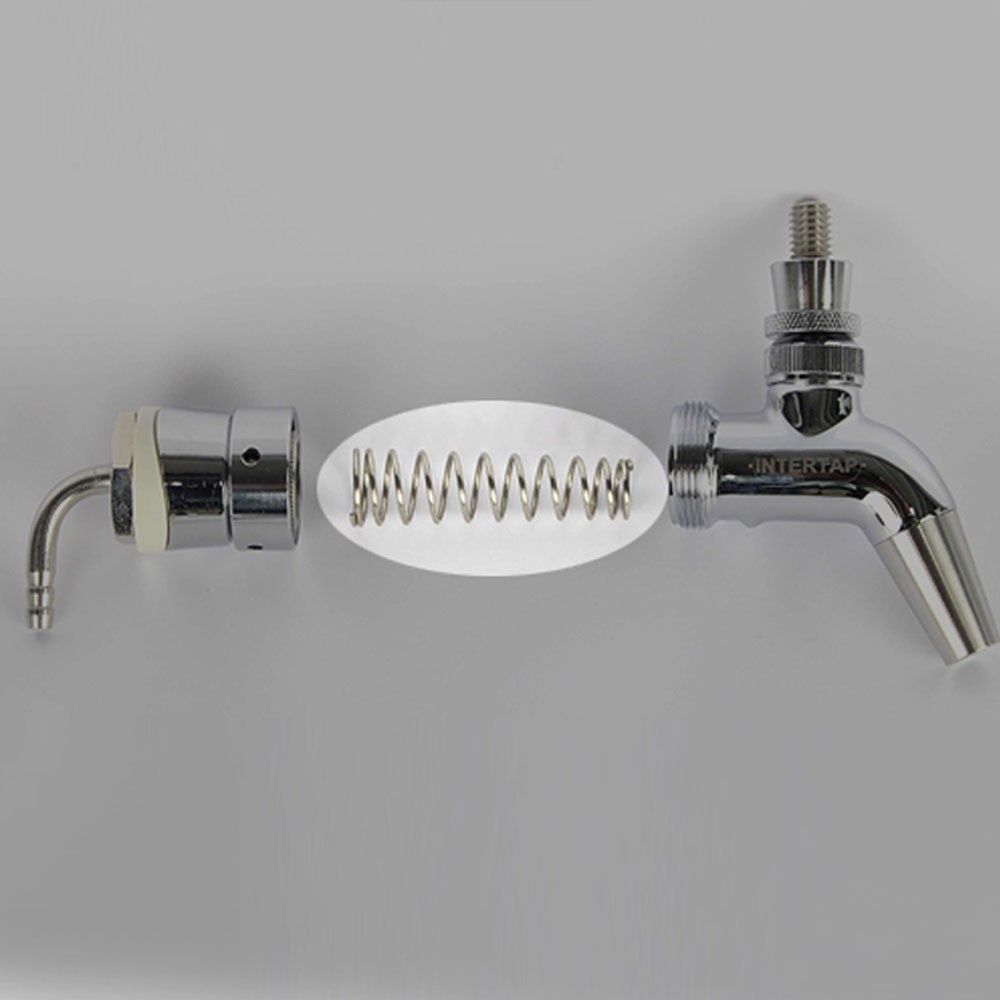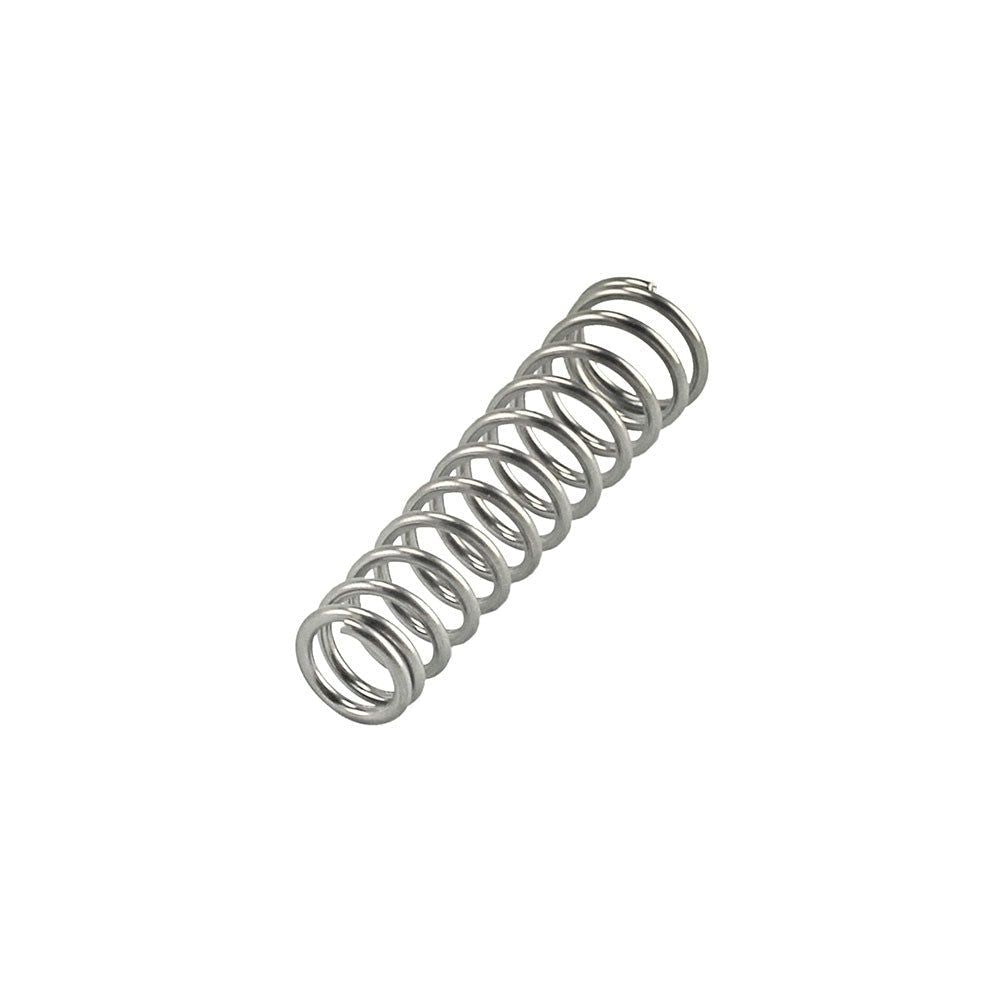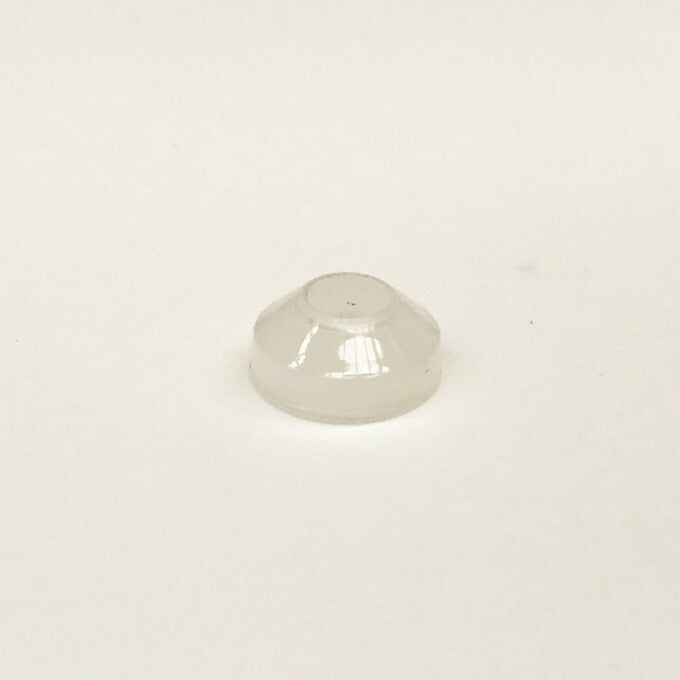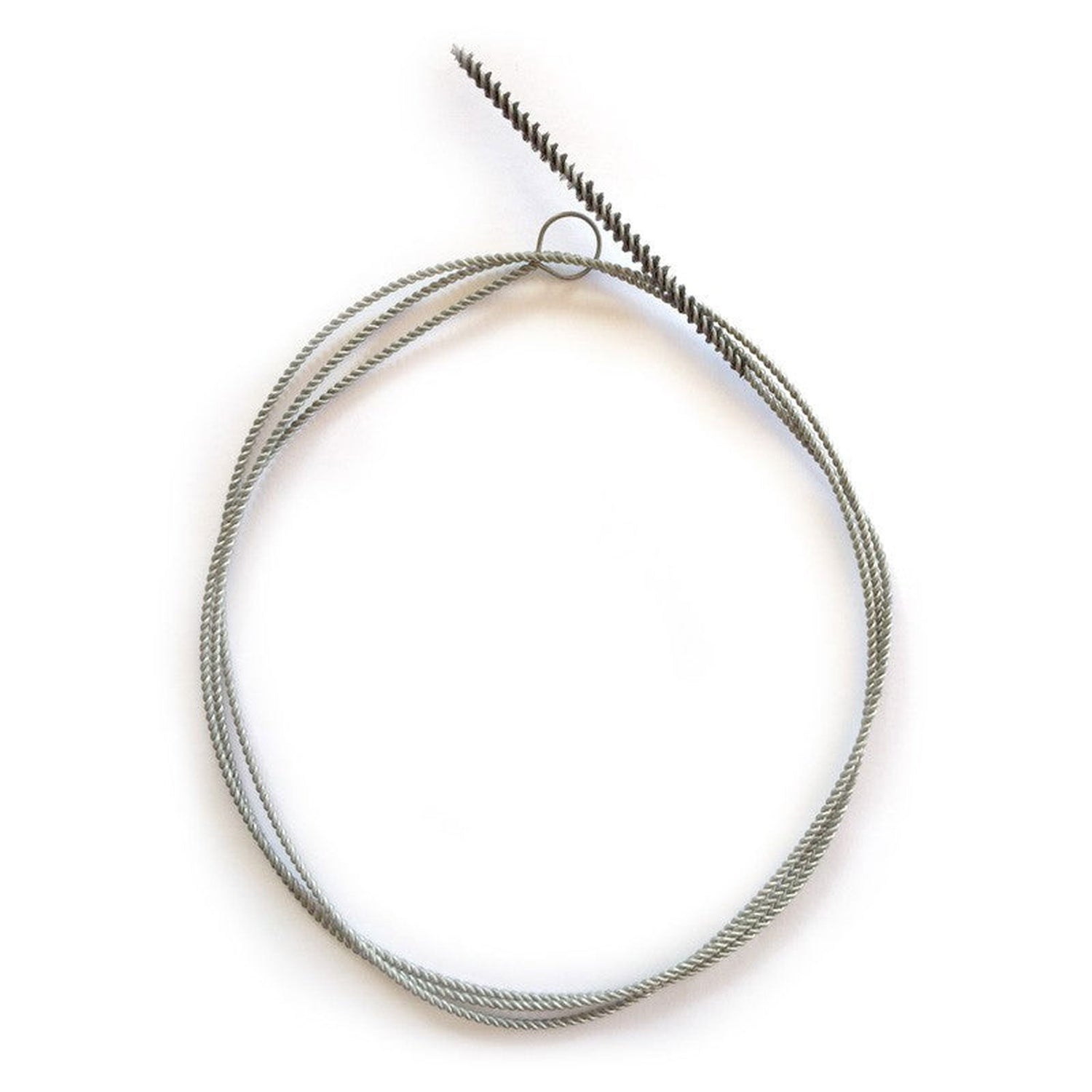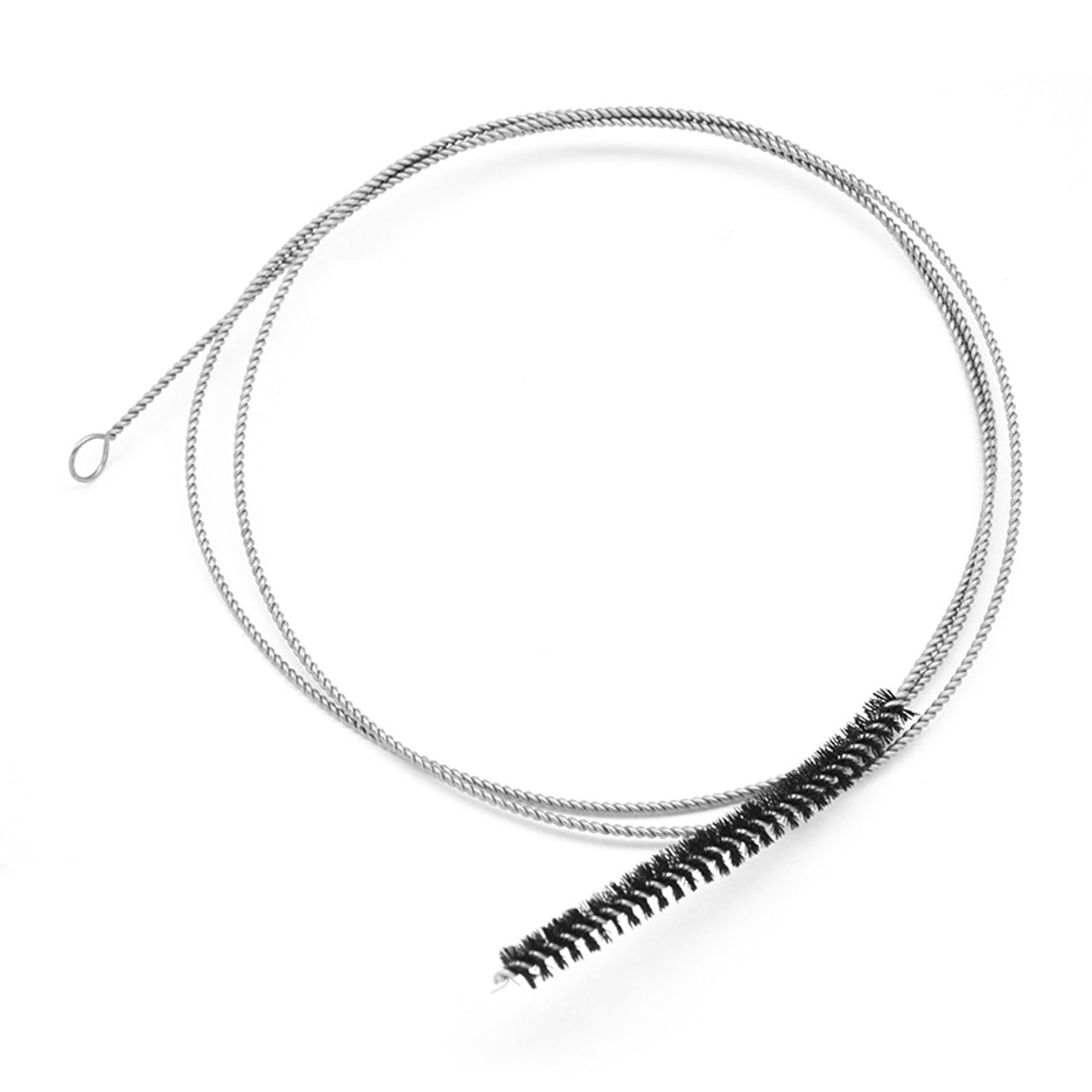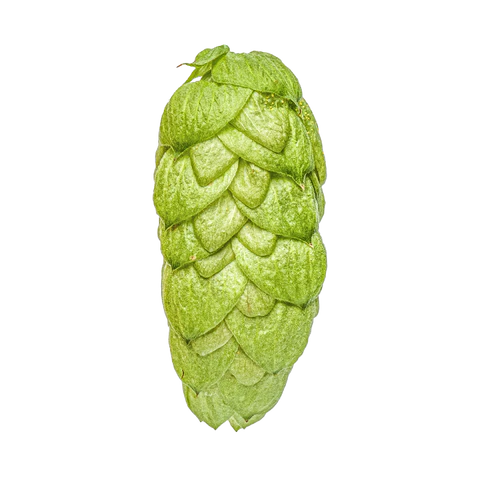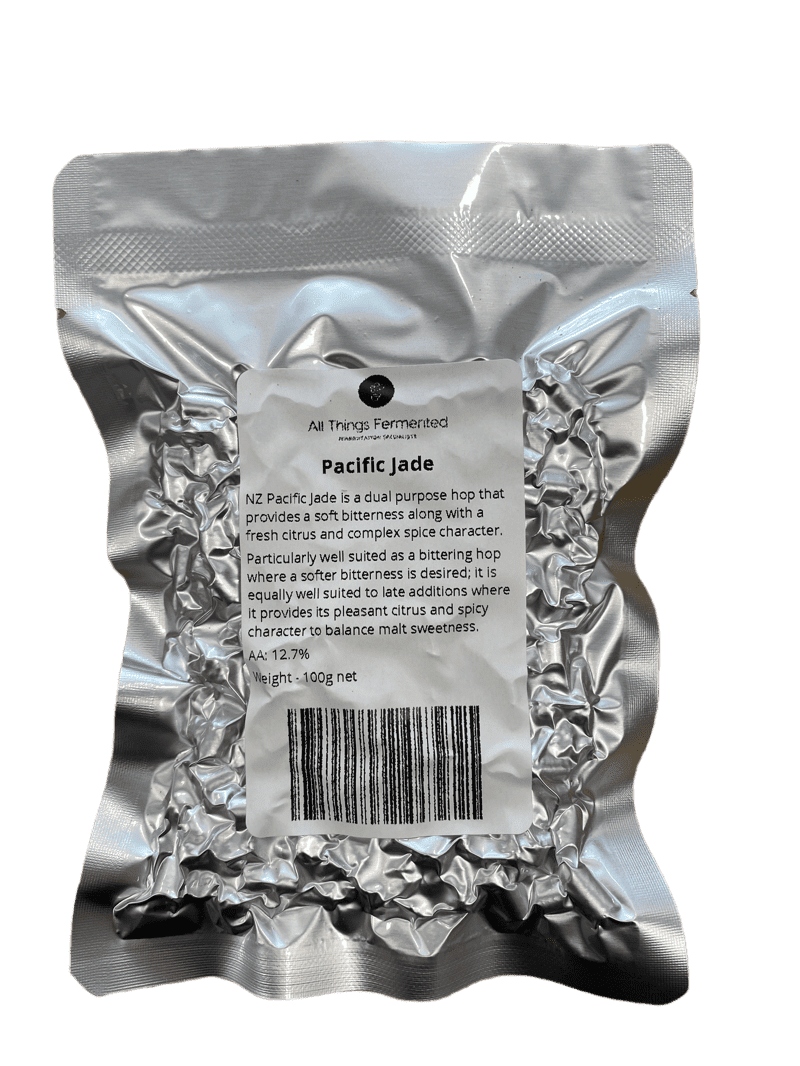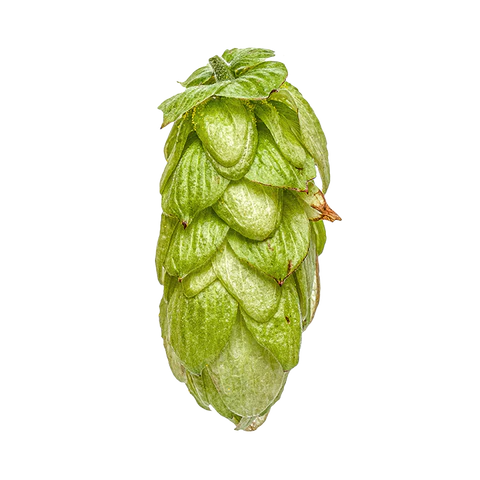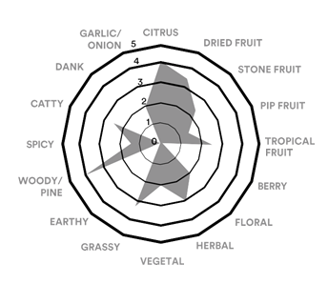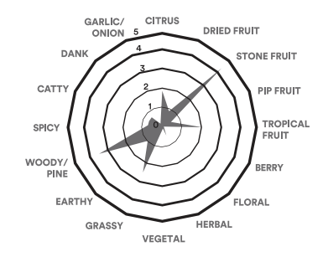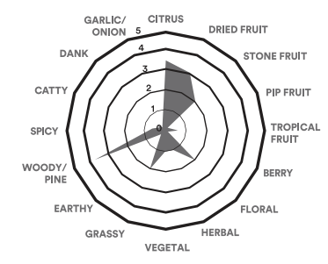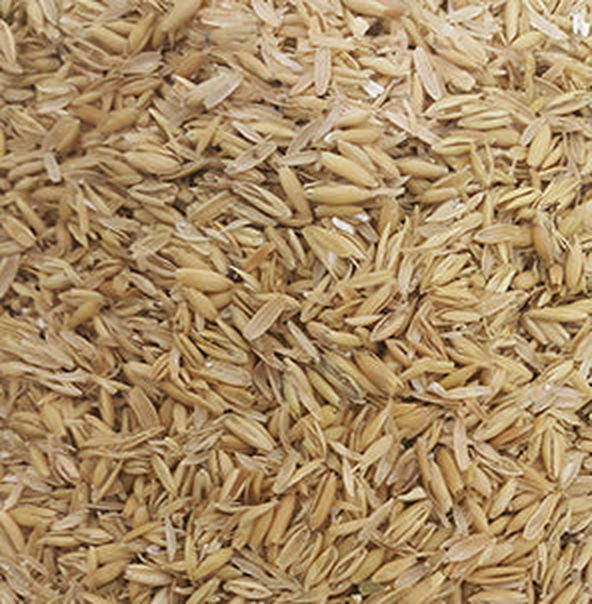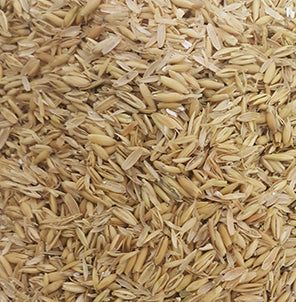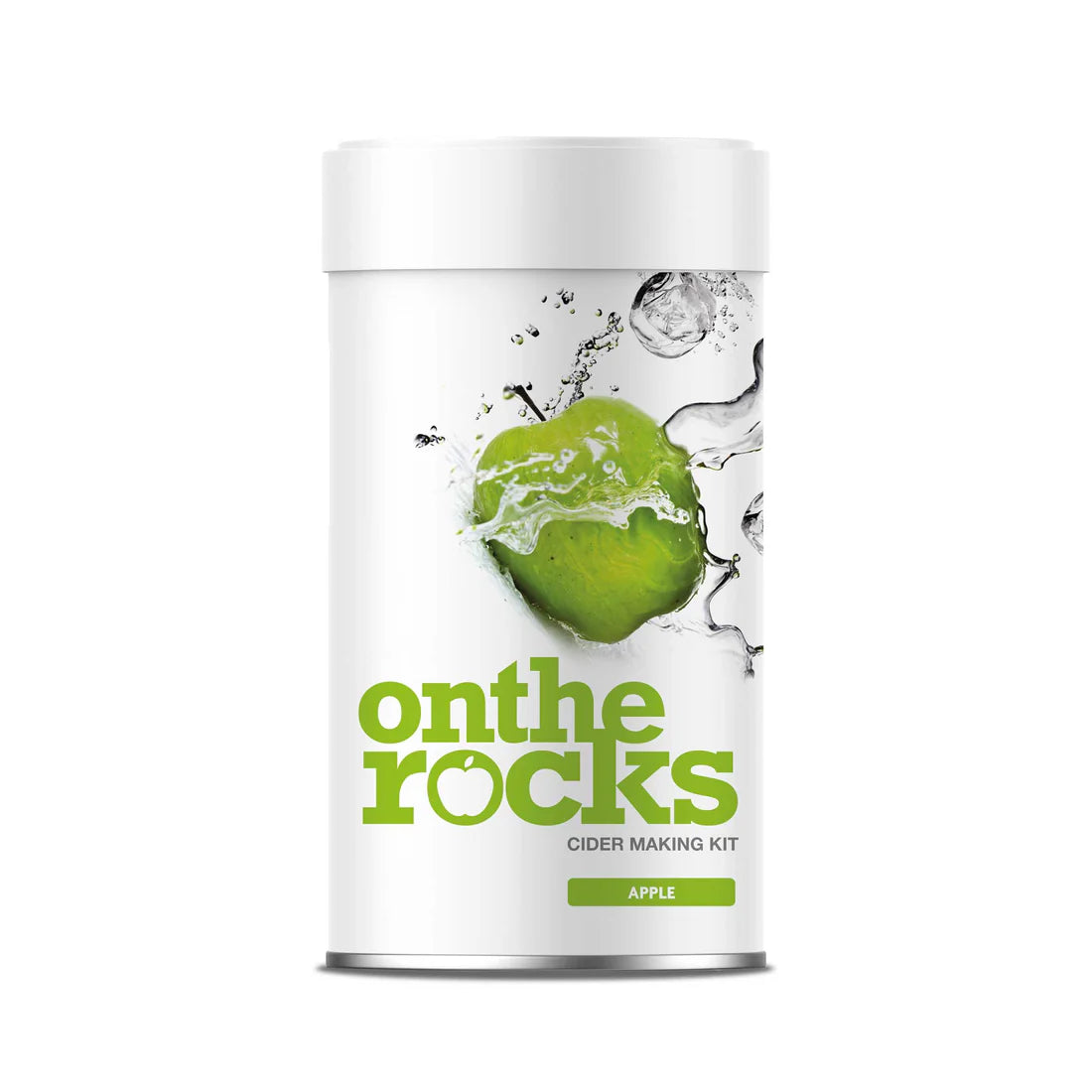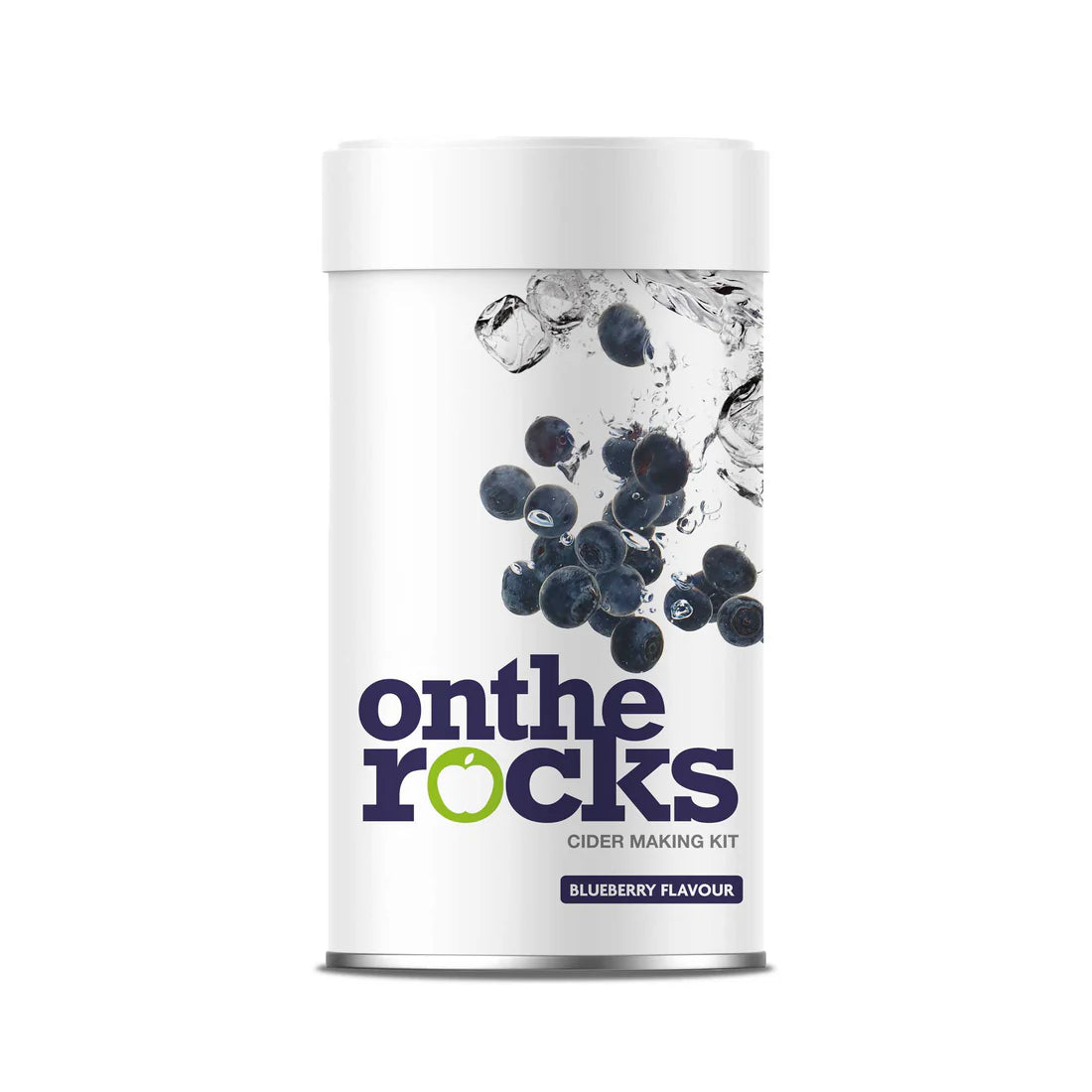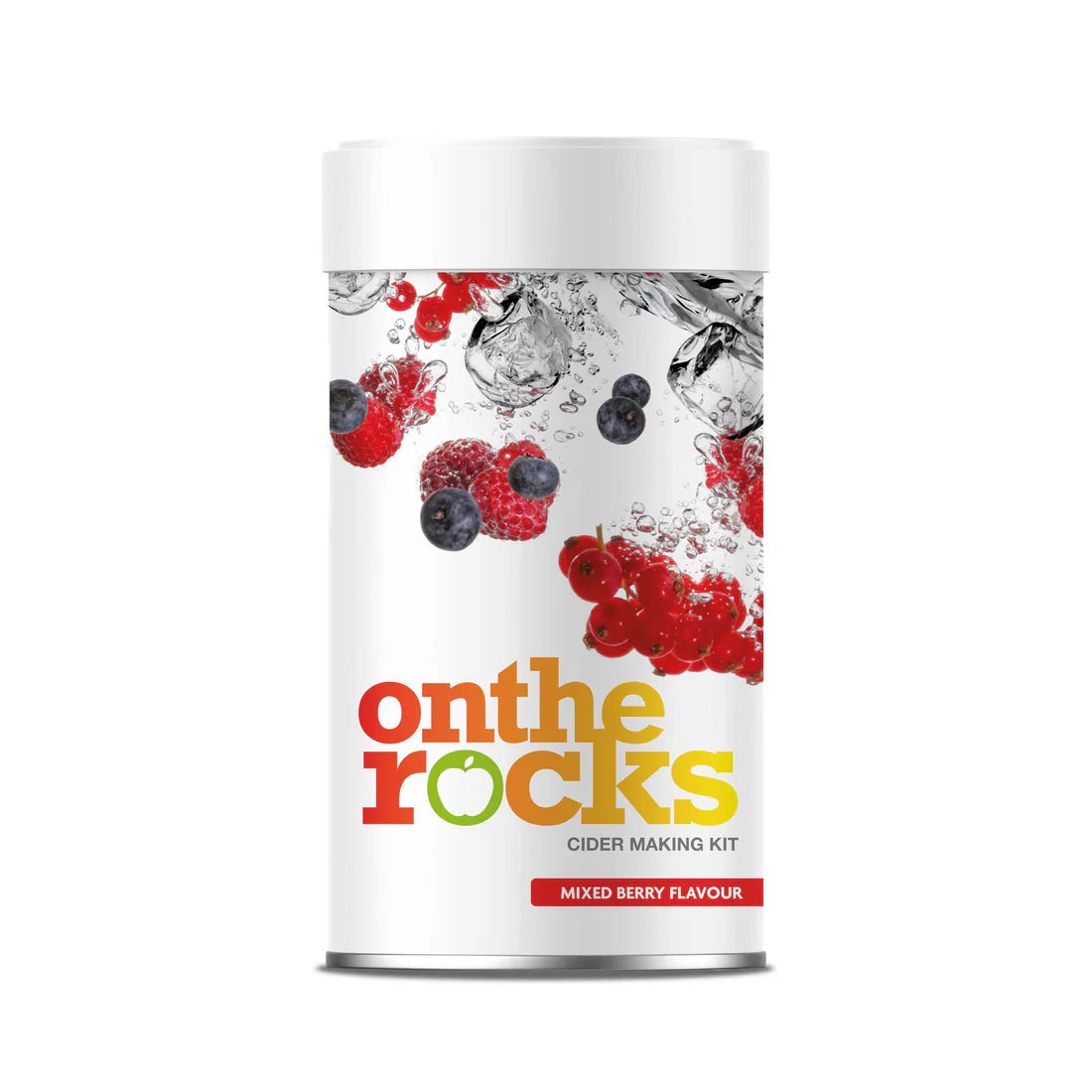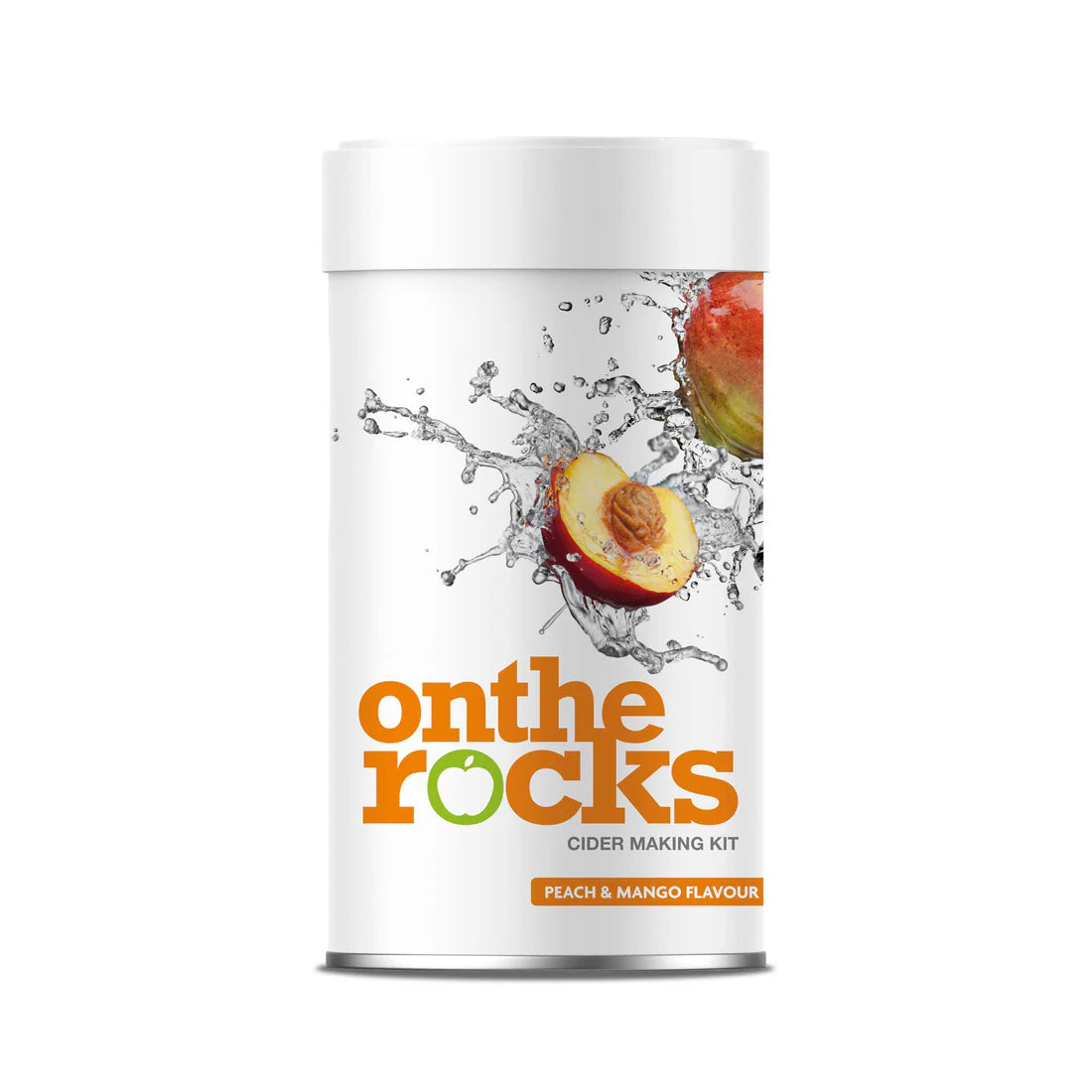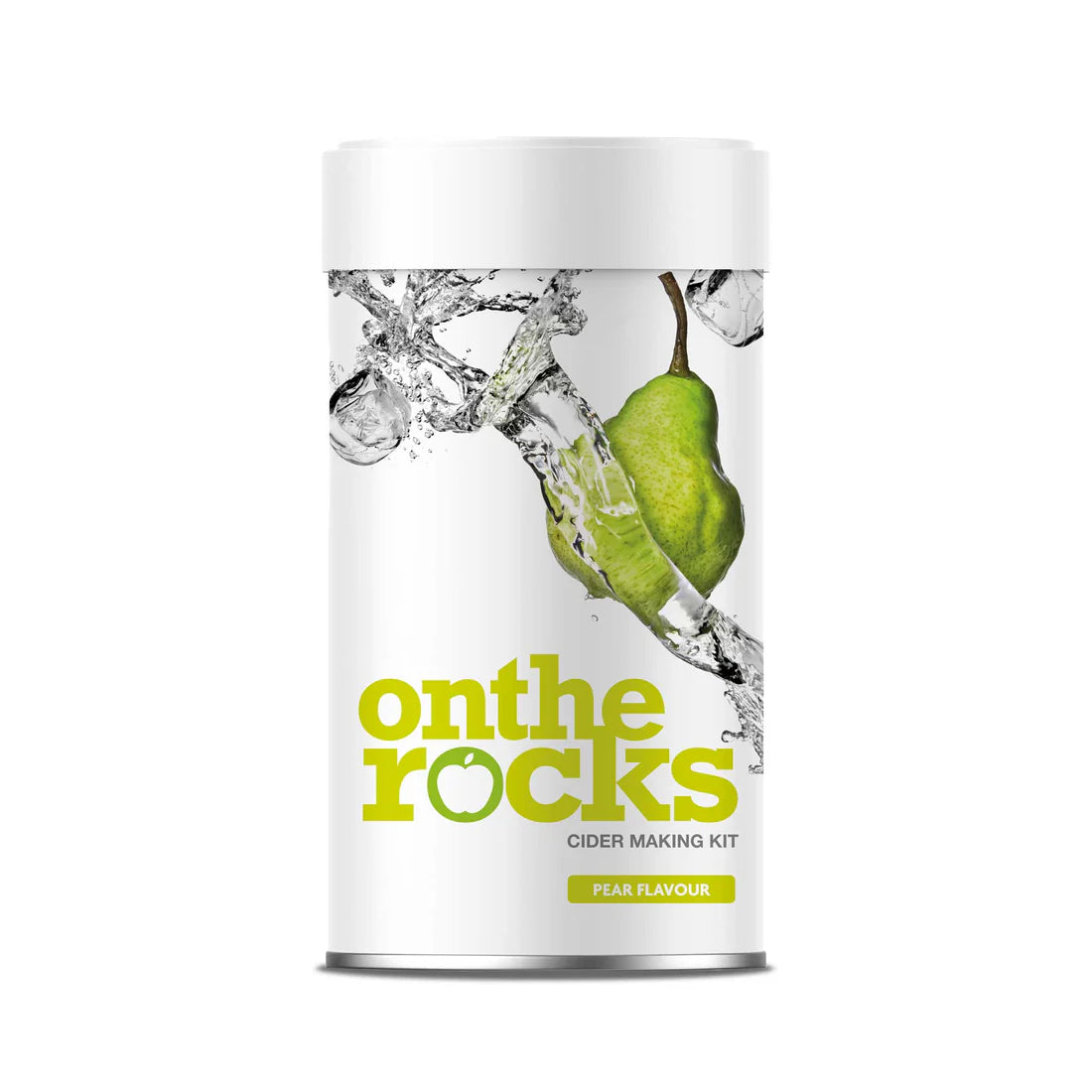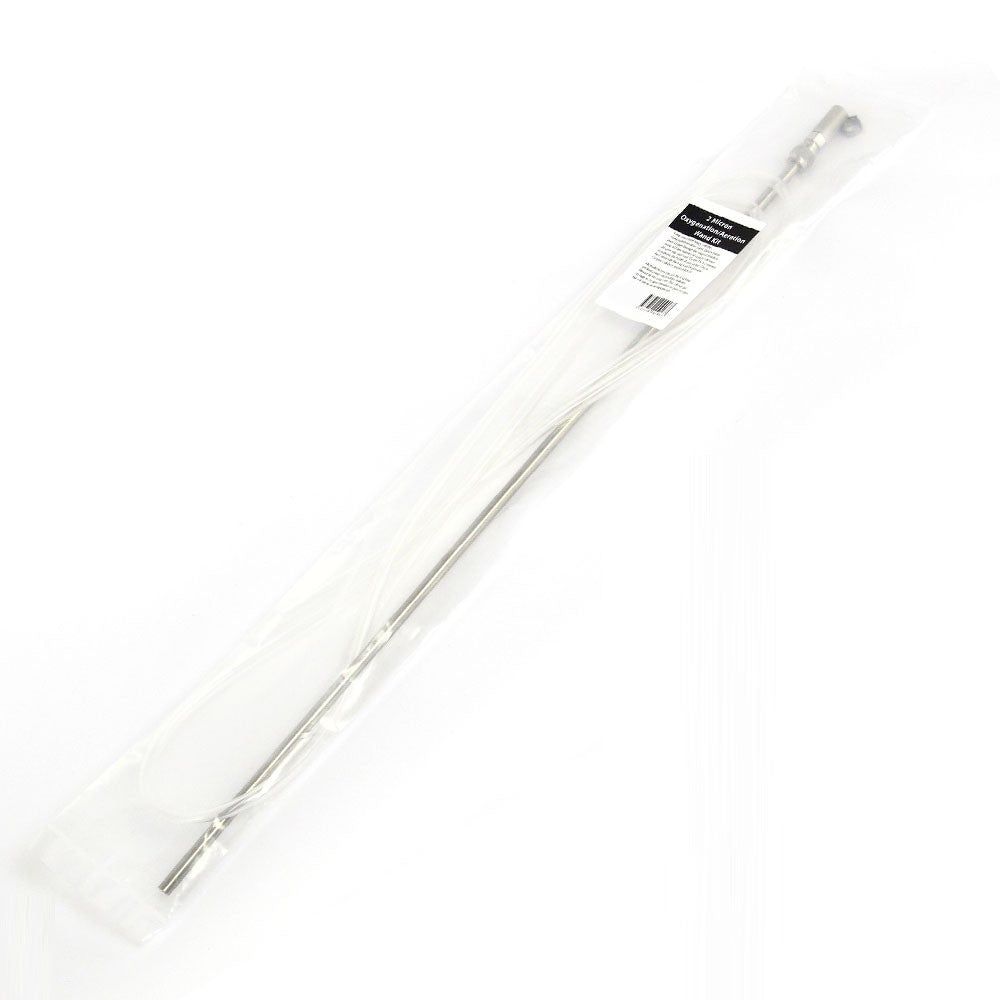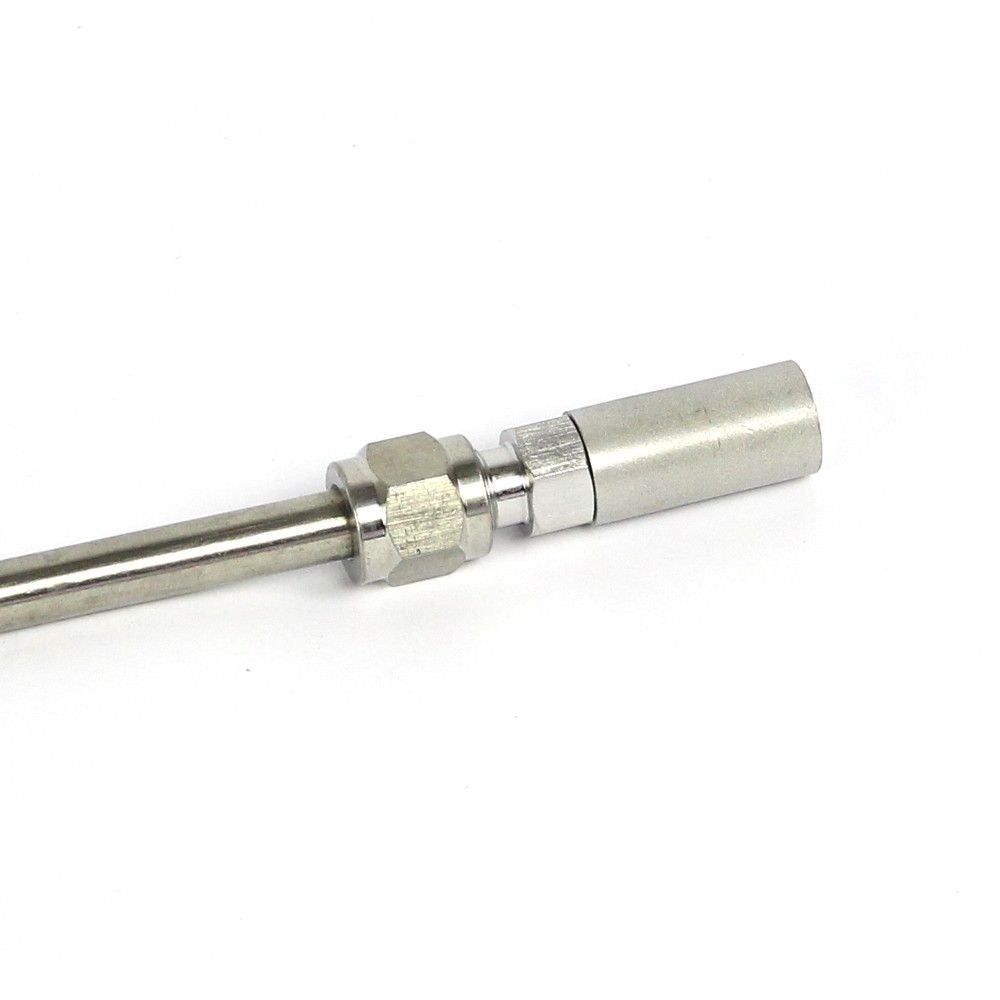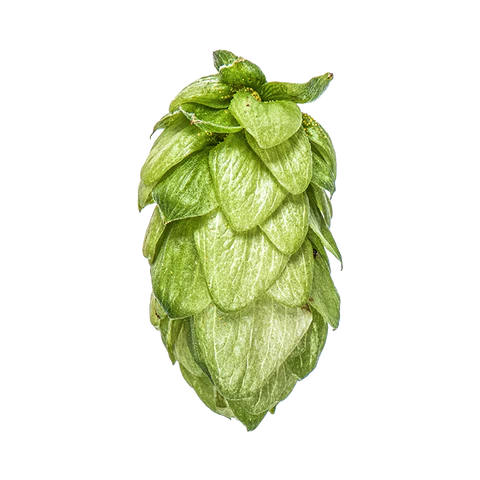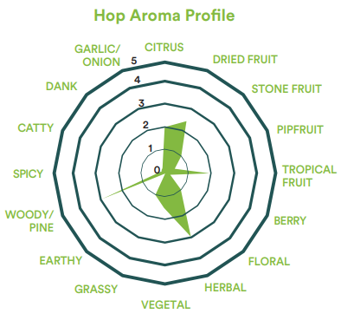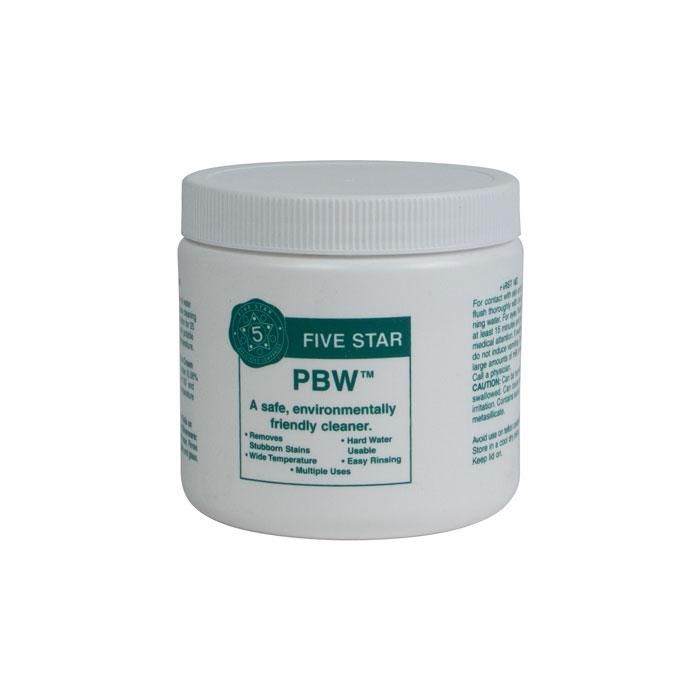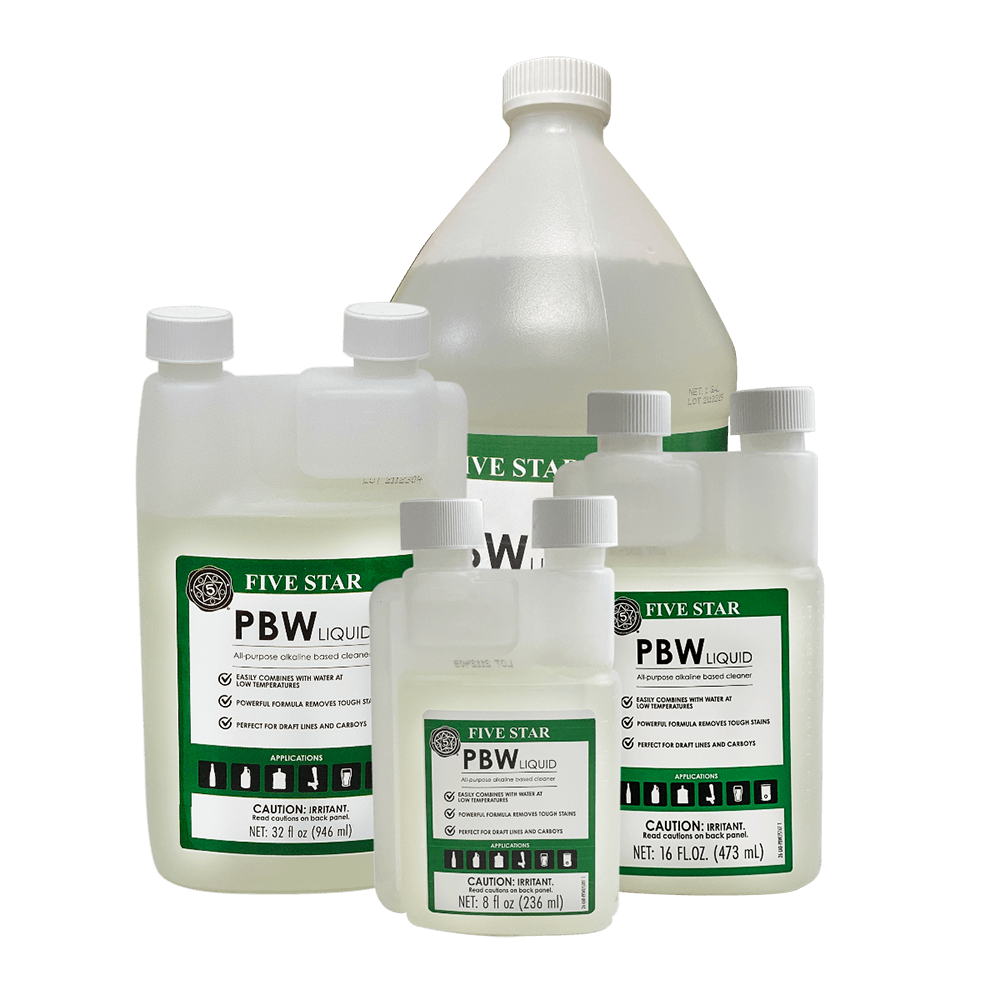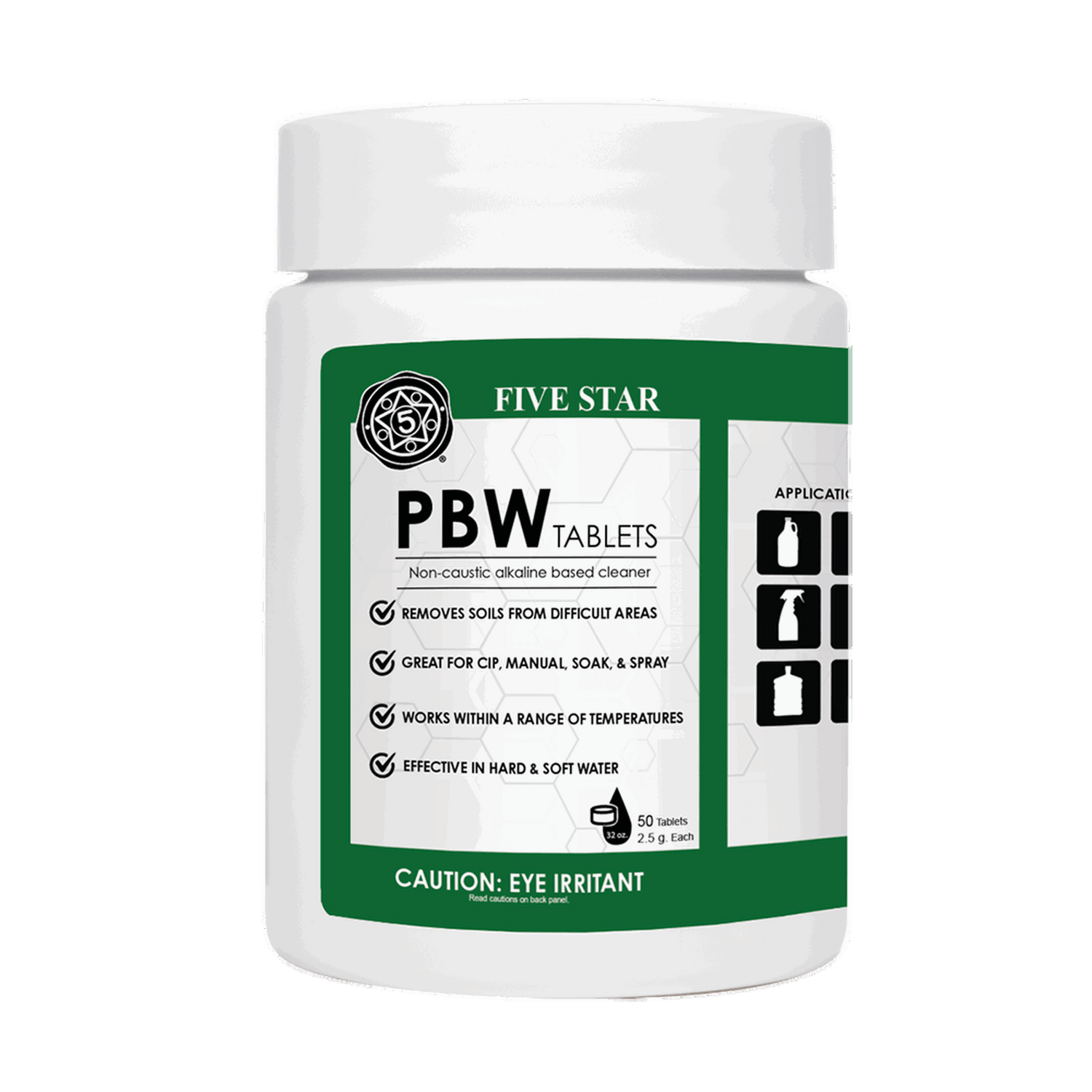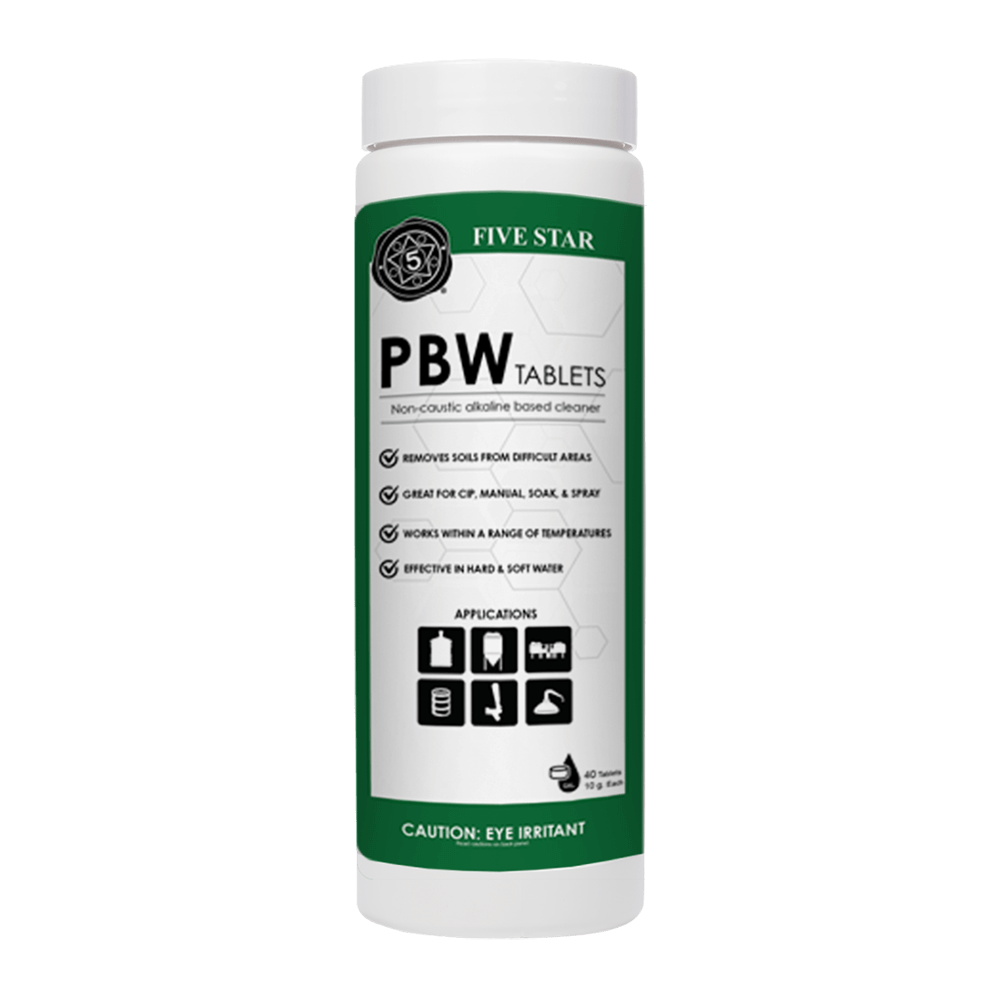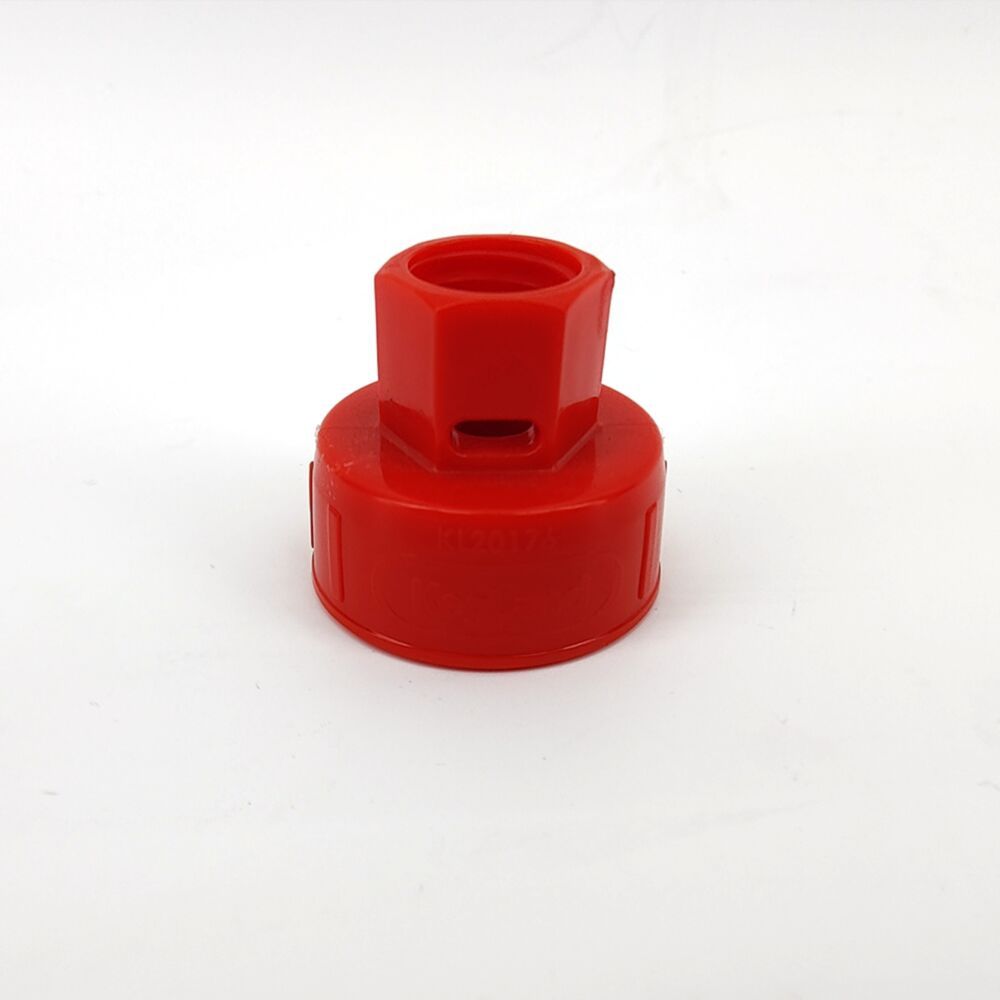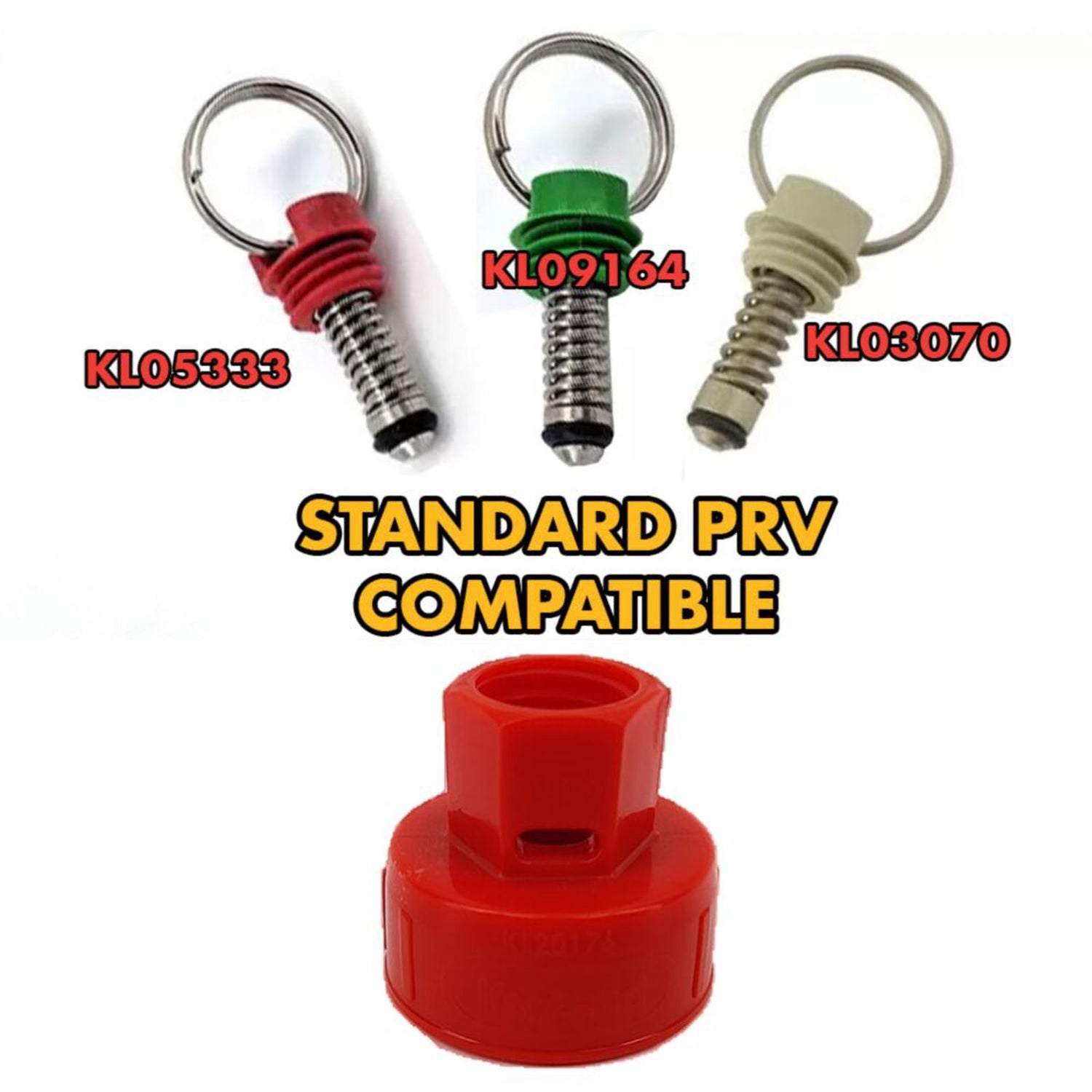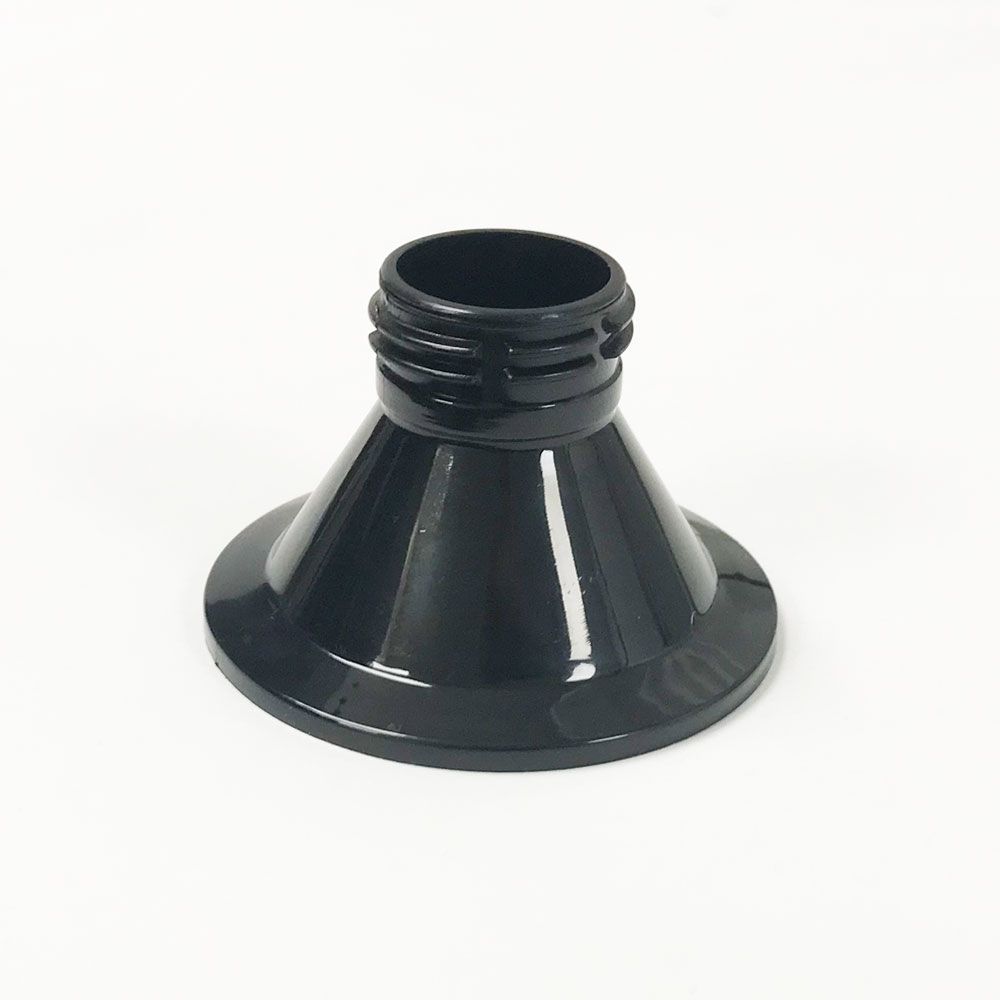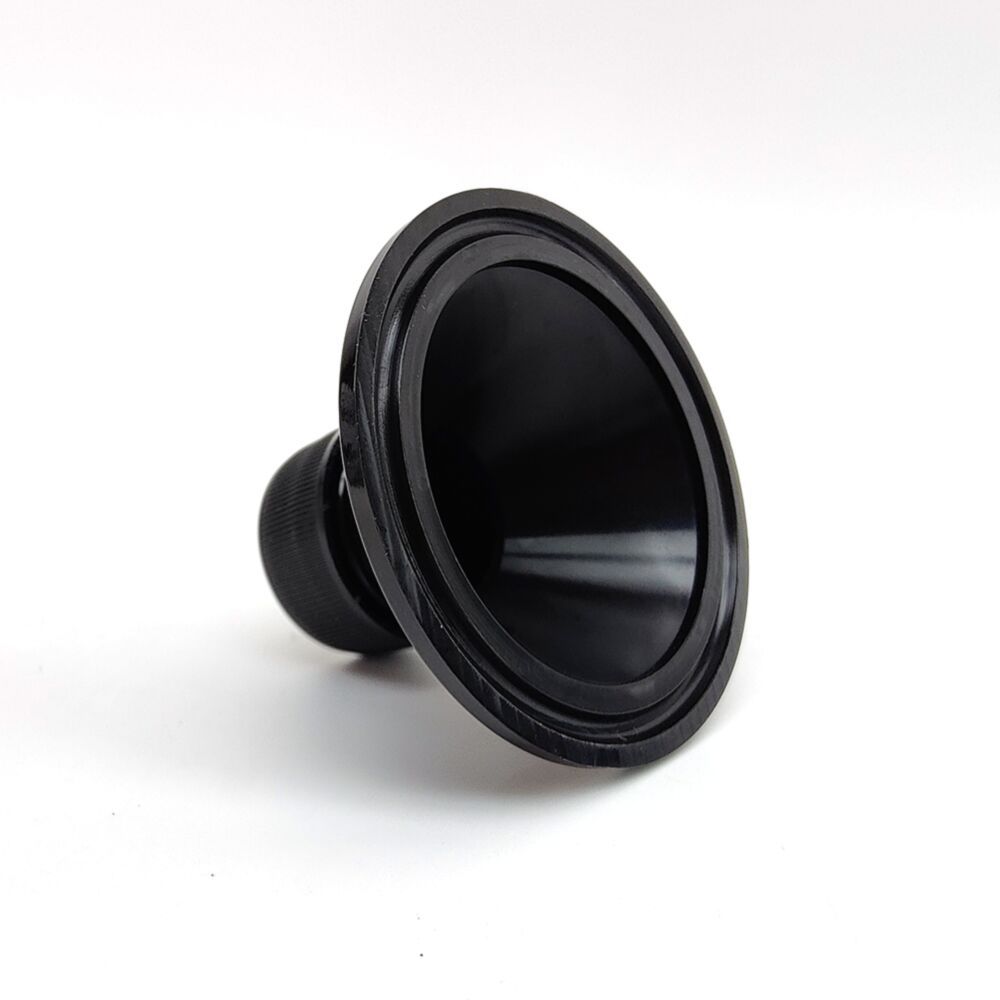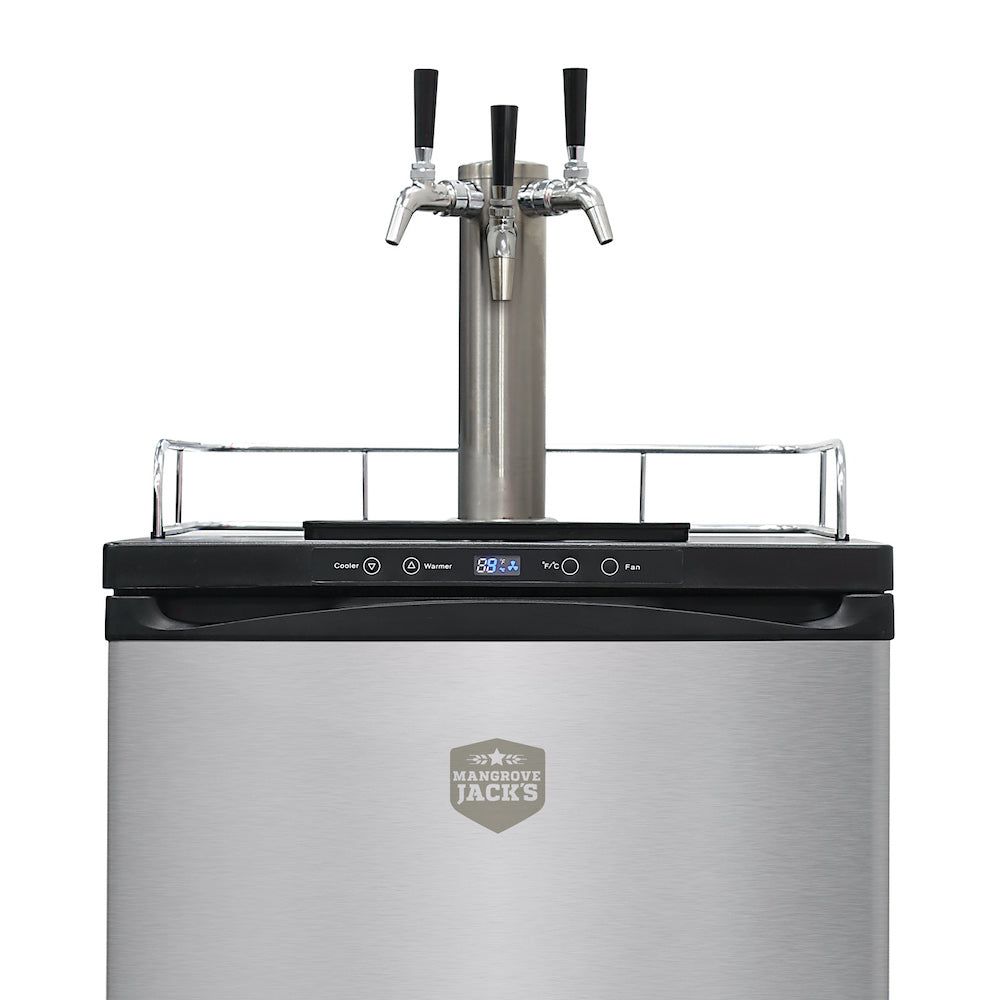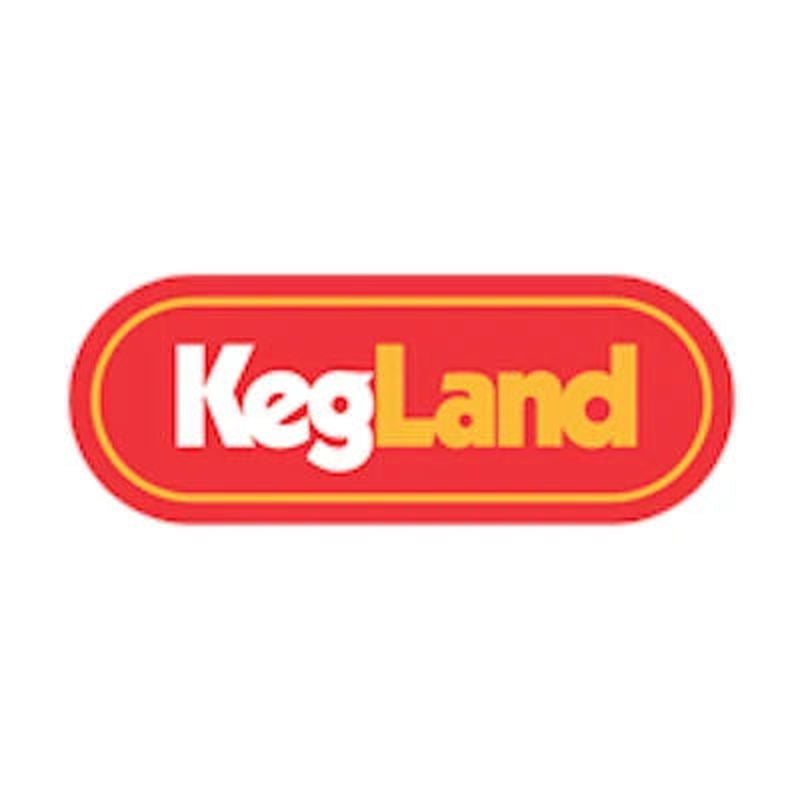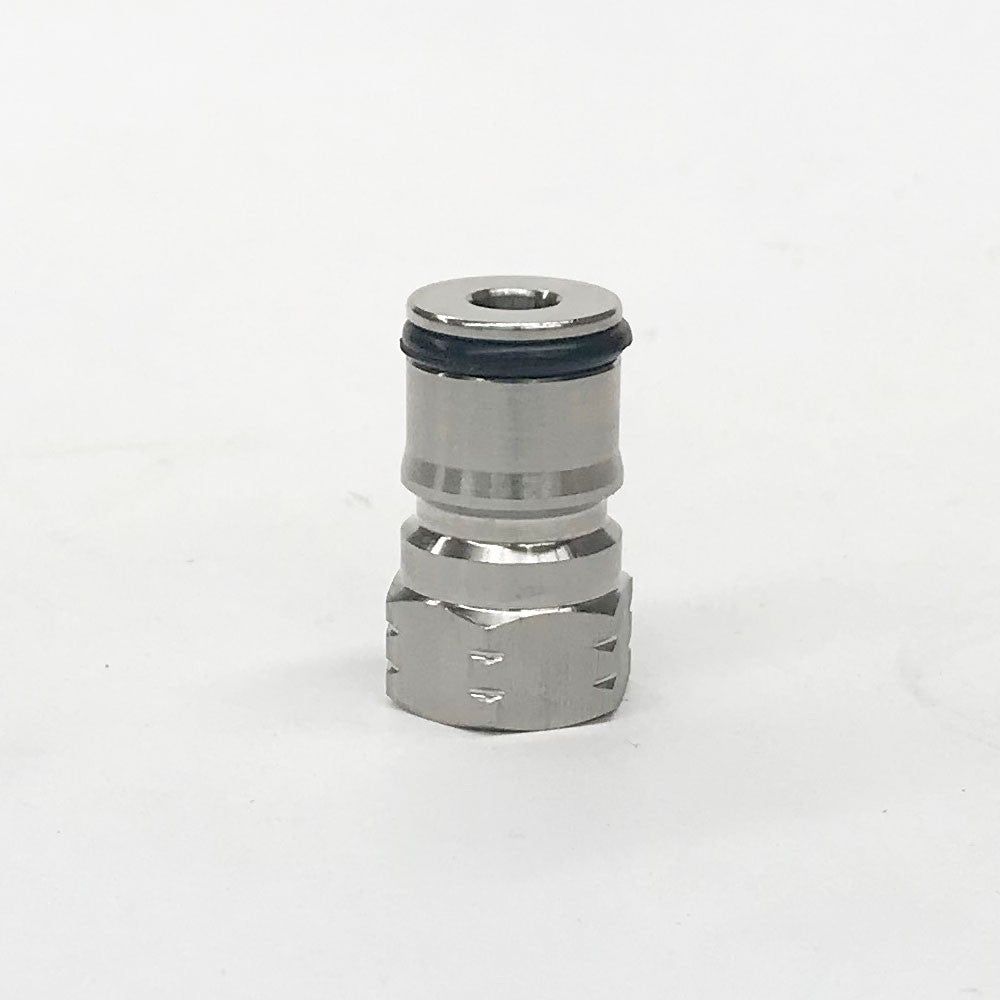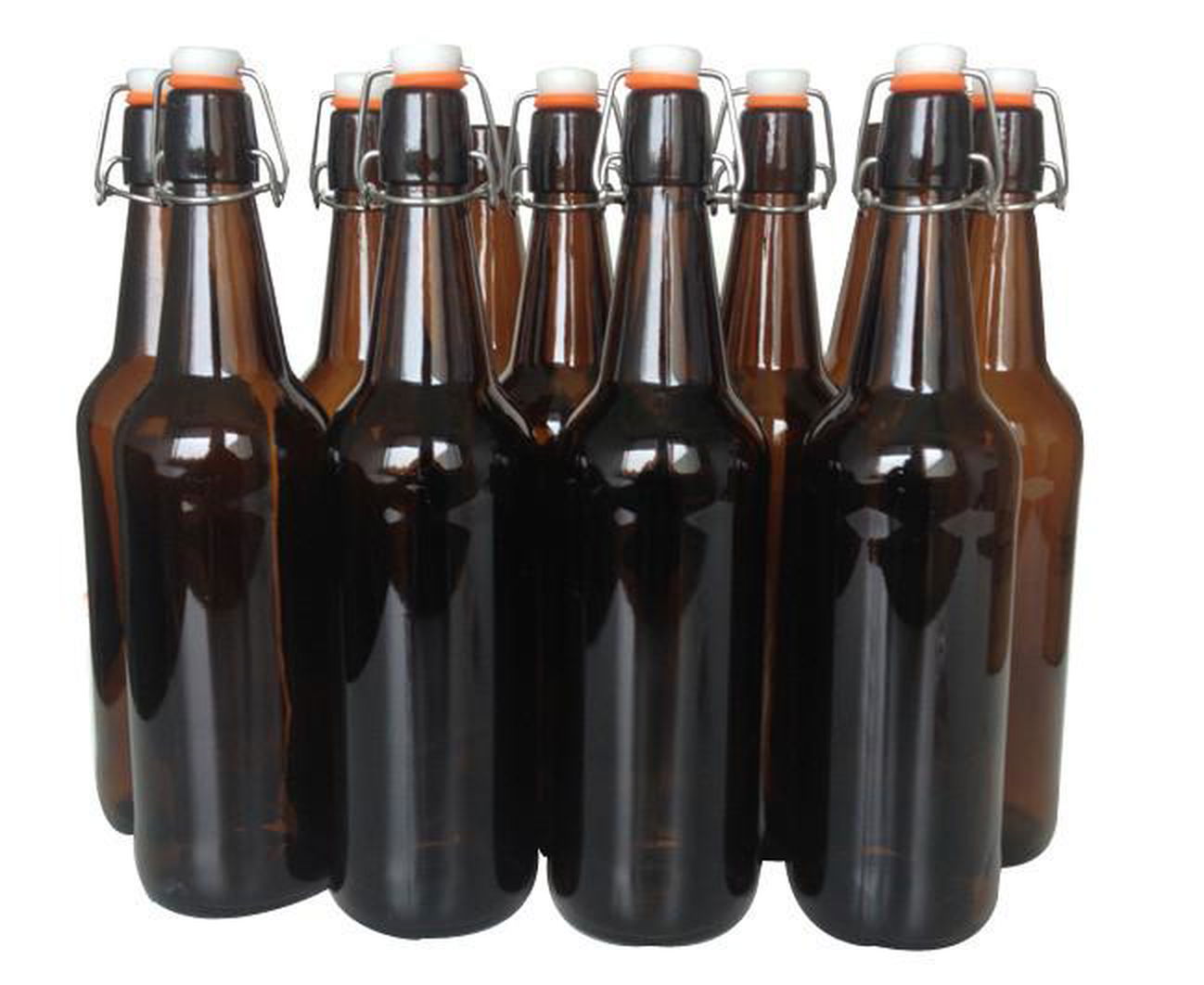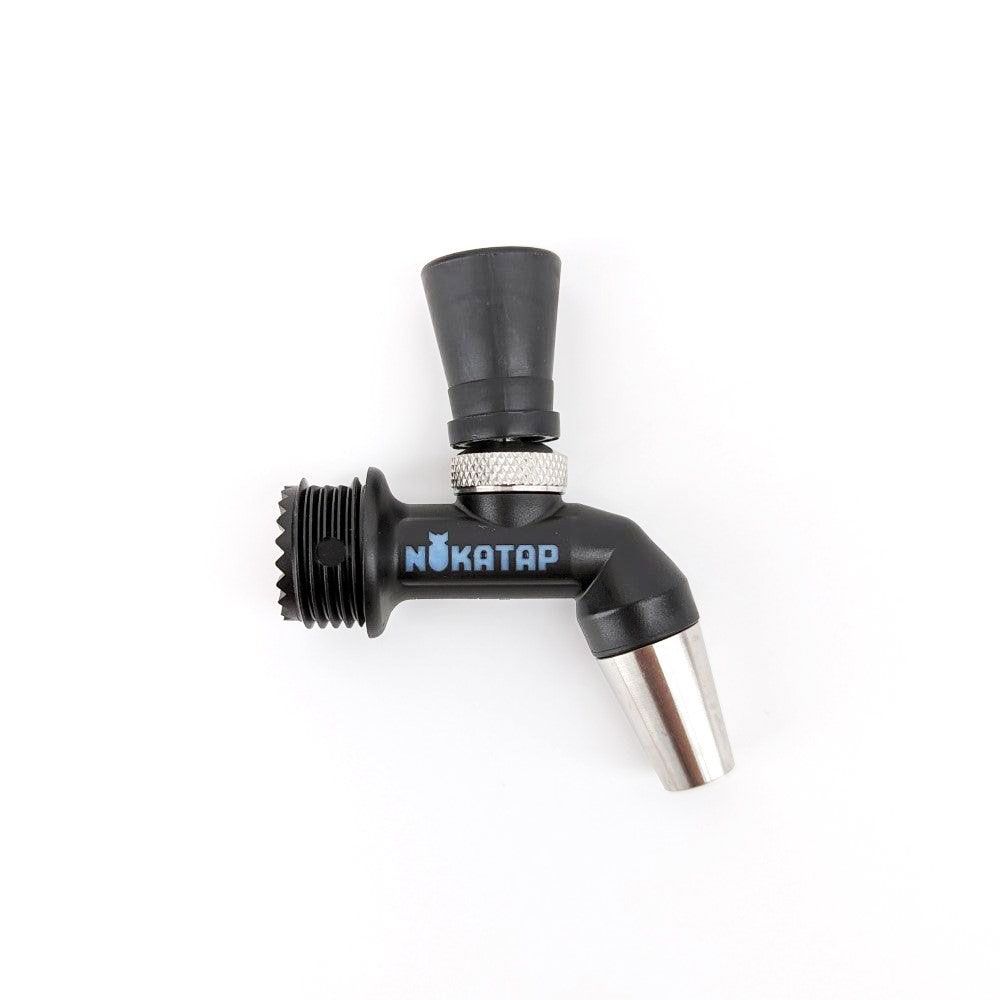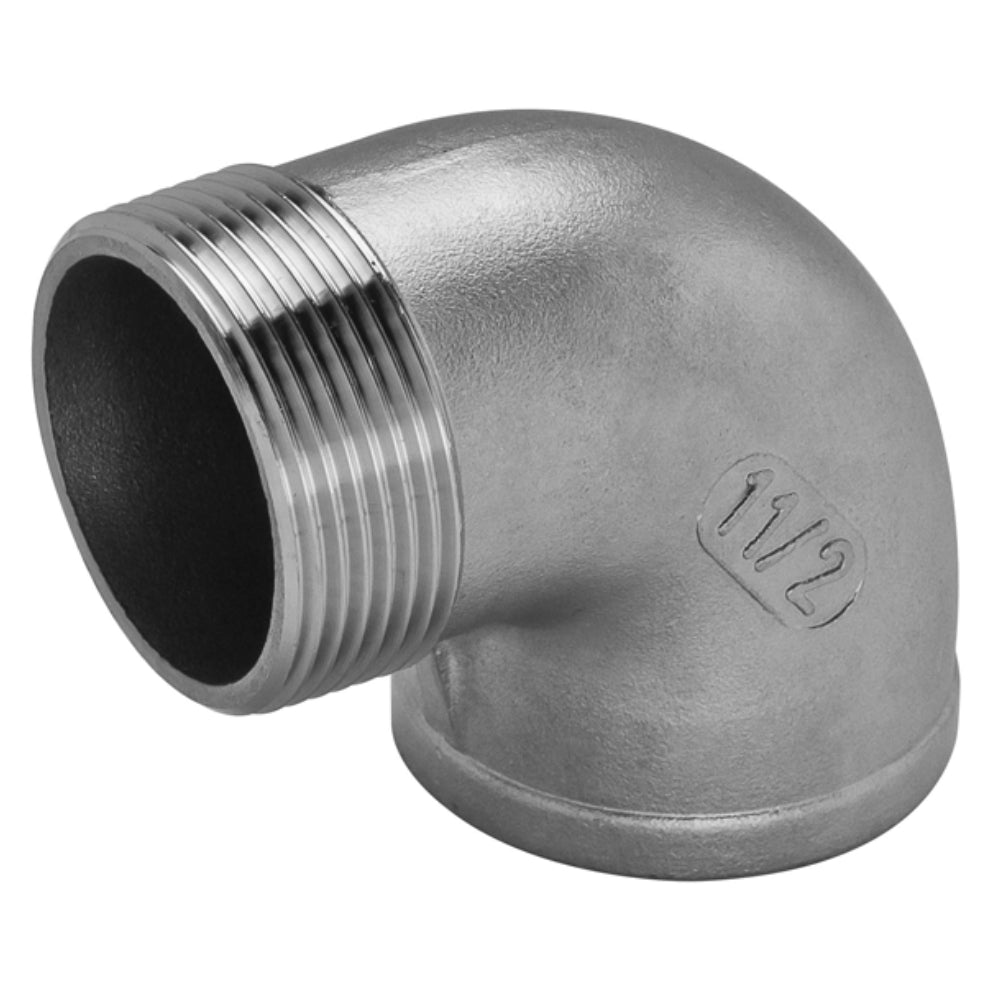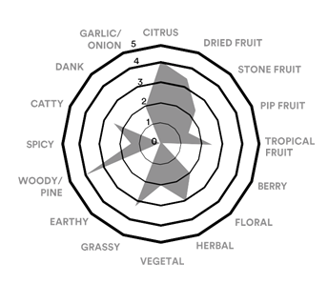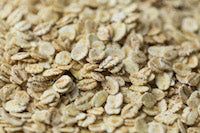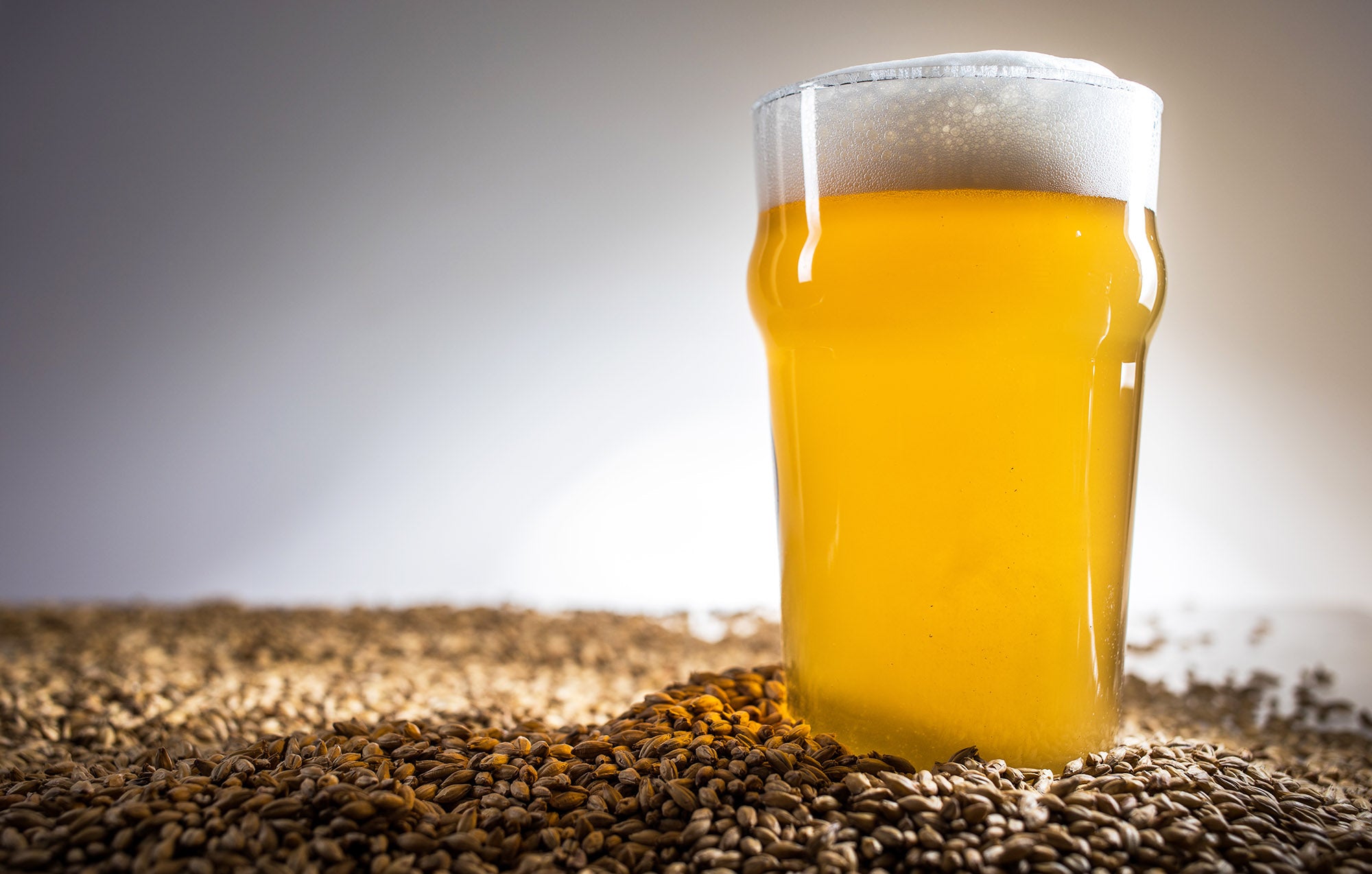Sort by:
Simply un-screw the regular nozzle and screw on the Stout Spout and use as you would a stout tap.
From: Kegland
NukaTap Flow Control Auto Close Spring.
The NukaTap Flow Control is the world's only forward sealing flow control tap that can use a auto close spring. By inserting the spring between the flow control device and NukaTap shuttle the tap will automatically close when you let go of the handle. This is perfect for customers who may not be diligent enough to remember to completely turn off the tap after each pour. Or for those with little kids or pesky cats that knock everything around!
This very inexpensive spring can save you from emptying an entire keg and then loosing a whole bottle of gas.
Note: The spring is not compatible with the NukaTap Standard Models, the auto close spring for those can be purchased here.
From: Kegland
This Nukatap mini & Nukatap FC spring is designed to suit all Nukatap Mini taps and also the Nukatap Flow Control (FC) tap. This custom made 304 grade spring size is designed specifically to ensure your Nukatap stays closed when it should.
Simple let go of the tap handle and the tap will snap shut and prevent accidentally leaving the tap on and emptying the keg onto the floor.
This handy, inexpensive devices suits all Nukatap Mini and Nukatap FC taps and shank combinations.
Note: Nukatap Mini sold separately.
From: Kegland
This duotight 8mm (5/16") adaptor is designed to suit the Nukatap Mini and will allow you to couple your Nukatap mini to a wide range of other 8mm(5/16") duotight fittings or be able to attach to the Duotight Flow Control Ball Lock Disconnect. This particular type of flow control ball lock disconnect includes a "tang" at the top of the push in fitting that couples with this adaptor. The combination of the two fittings prevents the tap spinning around while in use.
Other Parts Sold Separately
Ball Lock Beer Duotight Disconnect - Flow Control
From: Kegland
This bracket is used to mount a Nukatap Mini in either 6.35mm or 8mm to a table or bench. Ideal for impromptu gatherings in the park!
This bracket is compatible with tables that are up to 90mm thick. It can be adjusted to have the wing nut clamp in either direction, simply unscrew the flange piece from the threaded rod, then unscrew, then thread from the opposing side.
Please note: This item does not include the Mini NukaTap or Shank pieces. It is simply the stainless steel bracket.
From: Kegland
Most conventional beer taps are designed with a 10mm diameter nozzle/spout so you can pour pint in just over 10 seconds. This type of flow rate is great for high turnover bars and commercial venues but this high flow rate requirement is not not necessary or desirable for all applications. For compact portable systems, or for home brew draft systems, a slower flow rate is easier to control the flow and further reduces foaming issues due to the low liquid volume stored in the tap body.
This Nukatap mini is also more ideal for pouring smaller doses. For example cocktails where 150-250ml of liquid is dispensed is difficult to control with a high flow rate tap. For portable systems this tap and FC ball lock disconnect assembly is small enough to literally put in your pocket making it ideal for mini keg setups that you want to be portable or that you want to easily fit inside a domestic fridge where space is tight.
Forward Sealing
Forward sealing taps are absolutely the way to go when it comes to beer taps. The issue with rear sealing taps is that beer dries up on the tap piston. This is not sanitary and as more and more beer dries up in these components the tap can almost glue complete shut causing damaged seals or broken handles (this is particularly the case if it's left for some time to dry out with beer inside). These older legacy design still exist probably due to poor education. The forward sealing design do not have this problem and the tap drains out completely with no beer drying up on the mechanical moving parts in the same way. This makes the tap more sanitary and reduced maintenance. In may instances the price is similar so there is no reason to use a poorly designed rear sealing tap. All Nukatap taps are forward sealing.
Laminar Flow
Just like the Nuktap SS and Nukatap FC, the Nukatap Mini has been designed with laminar flow in mind. Laminar flow is critical for a beer tap as it means you will pour the beer with minimal foaming and a substantial reduction in wastage. Think about how many times a beer tap opens and closes in it's lifetime - 1000 or maybe 10,000 times? Laminar flow saves wasted beer in excessive foam and the better laminar flow easily pays for itself in a reduction in lost beer. Extensive modeling has been done on this Nukatap design to improve laminar flow.
Integrated Seals that are Indestructible and more Sanitary
Unlike other designs, the Nukatap Mini body is made from POK making it strong, robust and able to be autoclaved. The seals are also over-molded from Santoprene® making them hard wearing so they will literally last for the lifetime of the tap without the need for replacement. Santoprene® and POK both have excellent resistance to chemicals such as caustic soda, peroxide, phosphoric acid, lactic acid, citric acid, acetic acid, and all common chemicals sold and used in the beverage industry. The seals internally in are over-molded meaning NO fissures or cracks exist for bacteria, crud or yeast to hide.
Superior First Pour Foam Due to Low Thermal Mass and Conductivity
First pour foam is an issue caused by a warm tap body. For most taps to pour well it's important to dispense enough beer to cool the tap body down before the tap will pour well. In addition to this the conductivity of the tab body also makes this worse so insulative materials simply work better than conductive materials. The Nukatap mini not only has very low thermal mass but is also highly insulative being made mostly from Santoprene and POK. The combination of these two factors in conjunction with superior laminar flow makes for the lowest "first pour foam" effect out of any tap ever produced.
Long Shank Alternative (Sold separately in Duotight design)
Most conventional beer taps require a large 22mm hole to be drilled through the wall of your keezer/cooler/wall. Traditional long shanks also generally have a large volume of liquid that sits inside the wall unrefrigerated which is not ideal. This new long shank alternative is designed to suit any wall thickness and greatly reduces the stagnant beer sitting in the shank itself. For walls up to 80mm thick we have provided three screws however if the wall is thicker you can also use 6 small wood screws or something similar and attach three screws from the front and 3 from the back allowing you to go into any wall type.
Another advantage of this new design is the tap will never accidentally rotate. Typically other long shank beer taps rely on the hex nut on the shank to be done up tight enough to prevent rotation but if the wall compresses (often the case with foam walls) the tap is allowed to rotate. This new design has three fixing points making it impossible for the tap to rotate accidentally as the interlocking teeth behind the collet allow you to set the angle and then do up the collet to fix the tap permanently in that position.
Other Accessories (Sold Separately)
Nukatap Mini - Wall Mount Shank Kit - duotight 8mm (5/16")
Nukatap Mini - Self Closing Tap Spring
Nukatap Mini - duotight adaptor - 8mm (5/16")
Flow Control Ball Lock Disconnect
This bracket is used to mount a Nukatap Mini in either 6.35mm or 8mm to a cooler/esky/chilly bin or your home refrigerator or bar fridge. No need to drill any holes!
This bracket is compatible with walls/fridges that are up to 90mm thick. It can be adjusted to have the wing nut clamp in either direction, simply unscrew the flange piece from the threaded rod, then unscrew, then thread from the opposing side.
Please note: This item does not include the Mini NukaTap or Shank pieces. It is simply the stainless steel bracket.
From: Kegland
NukaTap Mini - Wall Mount Shank Kit (Duotight 8mm).
This shank kit is specifically designed to suit the Nukatap Mini taps and will allow you to connect the Nukatap Mini to a cooler box, kegerator, keg fridge, coolroom wall or any other flat surface.
New Innovative Shank Design
Unlike other shank kits this shank kit doesn't use a bulky 5/8" bar stock. The issue with 5/8 bar stock is it acts as a heat sink and due to the fact that most other shanks sit inside the insulated wall this results in a substantial amount of warm beer coming out of the tap before cold beer starts flowing. This means a "first pour foam" effect which wastes beer, can result in sour beer, and ultimately negatively effects the quality of the beverages being served. This new design has the beer line feed all the way directly up to the back of the tap greatly reducing the volume of non-refrigerated beer.
No Spinning Shanks
If you have ever installed a traditional 5/8" long shank you will know how frustrating it is when you use the tap and the tap starts rotating. This new design of shank alternative uses three screws that lock the tap into a fixed position and prevents the taps from rotating. If you loosen the 1/2" stainless tap collet you can still have the flexibility to rotate the tap to any orientation but once the collet is tight interlocking teeth on this shank kit and the Nukatap Mini will hold the tap permanently in the correct orientation.
Easy Installation
Unlike other long shank kits, this kit doesn't require large 22mm hole saw to be used to drill through the wall. As no shank is required, only a hole large enough to accommodate the beer line is required. As a result only an 8mm conventional drill bit is all that is necessary and this makes the installation easier. If, however, you are concerned about the small amount of beer sitting in the beer line in the wall not being refrigerated you can also shell out a larger diameter of foam on the inside of the wall to allow cold air to circulate around the beer line thus reducing the non-refrigerated beer in the line even more. If you wanted to do this a Step Drill Bit is the best tool for the job.
Any Wall Thickness
Other shank kits will require you to purchase a specific length shank for a specific wall thickness. This new shank alternative will fit any wall thickness. If you have wall thicknesses that are less than 80mm thick then you can use the included screws that have "snap off" points so you can simply cut the screws down to the desired length. If, however, the wall is thicker than 80mm you can simply purchase a conventional screw from the hardware store and screw the shank kit to your wall. If the substrate is firm enough you may not even need to go all the way through the wall, so a common 30mm long screw may be all that is required.
Specifications:
- Beer Line Diameter: Suits any EVABarrier beer line in with 8mm ID Beer line such as the 4mm x 8mm EVABarrier beer line or the 5mm x 8mm EVABarrier beer Line.
- Collet and Screw Cover: 304 Grade Stainless Steel
- O-ring Material: Dual o-ring Silicone/EPDM combination
- Plastic Mounting: POK
- Temperature Range: -10C and up to 100C
- Max Pressure: 150psi
NOTE: Nukatap Mini is SOLD SEPARATELY.
Nukatap Mini Flow Control Set
This bundle combines the four items needed for a standard ball lock set up, including a Duotight 8mm Flow Control Ball Lock Disconnect for fine flow rate control.
Includes:
- Nukatap Mini
- NukaTap Mini Self Closing Tap Spring
- NukaTap Mini - Duotight Adaptor - 8mm
- Keg Connector - Duotight Flow Control - 8mm Liquid
Nukatap Mini - Mini Design - Ideal Flow Rate for Small Systems
Most conventional beer taps are designed with a 10mm diameter nozzle/spout so you can pour pint in just over 10sec. This type of flow rate is great for high turnover bars and commercial venues but this high flow rate requirement is not not necessary or desirable for all applications. For compact portable systems, or for home brew draft systems, a slower flow rate is easier to control the flow and further reduces foaming issues due to the low liquid volume stored in the tap body.
This Nukatap mini is also more ideal for pouring smaller doses. For example cocktails where 150-250ml of liquid is dispensed is difficult to control with a high flow rate tap. For portable systems this tap and FC ball lock disconnect assembly is small enough to literally put in your pocket making it ideal for mini keg setups that you want to be portable or that you want to easily fit inside a domestic fridge where space is tight.
Forward Sealing
Forward sealing taps are absolutely the way to go when it comes to beer taps. The issue with rear sealing taps is that beer dries up on the tap piston. This is not sanitary and as more and more beer dries up in these components the tap can almost glue complete shut causing damaged seals or broken handles (this is particularly the case if it's left for some time to dry out with beer inside). These older legacy design still exist probably due to poor education. The forward sealing design do not have this problem and the tap drains out completely with no beer drying up on the mechanical moving parts in the same way. This makes the tap more sanitary and reduced maintenance. In may instances the price is similar so there is no reason to use a poorly designed rear sealing tap. All Nukatap taps are forward sealing.
Laminar Flow
Just like the Nuktap SS and Nukatap FC, the Nukatap Mini has been designed with laminar flow in mind. Laminar flow is critical for a beer tap as it means you will pour the beer with minimal foaming and a substantial reduction in wastage. Think about how many times a beer tap opens and closes in it's lifetime - 1000 or maybe 10,000 times? Laminar flow saves wasted beer in excessive foam and the better laminar flow easily pays for itself in a reduction in lost beer. Extensive modeling has been done on this Nukatap design to improve laminar flow.
Integrated Seals that are Indestructible and more Sanitary
Unlike other designs, the Nukatap Mini body is made from POK making it strong, robust and able to be autoclaved. The seals are also over-molded from Santoprene® making them hard wearing so they will literally last for the lifetime of the tap without the need for replacement. Santoprene® and POK both have excellent resistance to chemicals such as caustic soda, peroxide, phosphoric acid, lactic acid, citric acid, acetic acid, and all common chemicals sold and used in the beverage industry. The seals internally in are over-molded meaning NO fissures or cracks exist for bacteria, crud or yeast to hide.
Superior First Pour Foam Due to Low Thermal Mass and Conductivity
First pour foam is an issue caused by a warm tap body. For most taps to pour well it's important to dispense enough beer to cool the tap body down before the tap will pour well. In addition to this the conductivity of the tab body also makes this worse so insulative materials simply work better than conductive materials. The Nukatap mini not only has very low thermal mass but is also highly insulative being made mostly from Santoprene and POK. The combination of these two factors in conjunction with superior laminar flow makes for the lowest "first pour foam" effect out of any tap ever produced.
Long Shank Alternative (Sold separately in Duotight design)
Most conventional beer taps require a large 22mm hole to be drilled through the wall of your keezer/cooler/wall. Traditional long shanks also generally have a large volume of liquid that sits inside the wall unrefrigerated which is not ideal. This new long shank alternative is designed to suit any wall thickness and greatly reduces the stagnant beer sitting in the shank itself. For walls up to 80mm thick we have provided three screws however if the wall is thicker you can also use 6 small wood screws or something similar and attach three screws from the front and 3 from the back allowing you to go into any wall type.
Another advantage of this new design is the tap will never accidentally rotate. Typically other long shank beer taps rely on the hex nut on the shank to be done up tight enough to prevent rotation but if the wall compresses (often the case with foam walls) the tap is allowed to rotate. This new design has three fixing points making it impossible for the tap to rotate accidentally as the interlocking teeth behind the collet allow you to set the angle and then do up the collet to fix the tap permanently in that position.
From: Kegland
This pretty handy kit contails all the seals needed for both the standard Nukatap and the Flow Control Nukatap.
The majority of these seals would never normally need to be replaced, but in the event of accidental loss / extreme commercial use please replace washers with the addition of food-grade lubricant to ensure their longevity.
Please refer to the parts diagram for seal locations:
If you have not changed your seals before, it's a great idea to take a note of which seal goes where as you remove the old ones!
Includes:
- The Nuke!
- Tap Coupling Washer
- Bonnet Washer
- 2 x Cup Seal
- Nozzle Washer
Also included (unique to the FC Nukataps):
- 2 x Shaft Seals
- Flow Bonnet Damper
- Shaft Cushion
- Flow Slider Seal
From: Kegland
Nukatap - the latest in beer dispensing tap technology. Now available in black with stainless spout.
What makes the Nukatap different among the other manufactured styles of taps on the market?
- First Pour Foam Reduction in Thermal Mass
- Improved Laminar Flow
- Most Sanitary Forward Sealing Design Design
- Longer Life Seals
- Move Versatile Tap Handle Angle
First Pour Foam Reduction
The reduction in thermal mass significantly reduces the first pour foam effect. The tap is often the warmest part of the draft system as it protrudes from the font/tower/fridge. As a result, it acts like a heat sink and only works well once enough cold beer flows through it to cool the tap body down. This reduction of thermal mass significantly improves the foam that is poured while the tap is cooling down.
Laminar Flow
The Nukashuttle design is the world’s first seamless shuttle. After many months of modelling and testing this new "Nuke" shaped shuttle design has the most fluid dynamic shuttle shape ever manufactured for a forward sealing tap. The streamline "nuke/missile" shape is how this new innovation earned its name "Nukatap". This leap forward in laminar flow means even highly carbonated beers pour like a dream with minimal turbulence and giving you the perfect pour every time.
Most Sanitary Design
The Nukashuttle is the world’s first seamless single-piece design. Traditional taps have a seal that is seated on a stainless-steel body creating small fissures that harbour solids, are potential sites for infection, and are not as ideal for clean in place (CIP). The Nukashuttle is an advanced TPV rubber matrix that been seamlessly formed over a durable PP skeleton. This single-piece design takes away the traditional fissures found in older manufacturing methods.
Long Life Seals
Unlike many other taps that use rubbers that can be degraded with caustic and acid compounds, the Nukatap has been made to suit a wide range of conditions. It's becoming more common to see sour beers/kombucha and other acetic and lactic acid beverages dispensed using draft systems. These acids, in particular, could cause an attack on the sealing compounds resulting in downtime, loss of product and reduced maintenance intervals. The Nukatap solves this problem and is the most chemically resistant tap we have ever manufactured. Unlike some older tap styles that have "metal on metal" rubbing components that can wear over time and have a "raspy feel" the Nukatap has been manufactured with a smooth gliding action that guarantees the longevity of the tap components. The TPV rubber matrix shuttle is also one of the most durable sealing mechanisms that can tolerate large amounts of leverage force from long tap handles that would otherwise traditionally degrade the seals in other tap designs. Other forward sealing designs exist but nothing with the same level of reliability. It’s easy to find other “perl” forward sealing design taps however these taps use a floating o-ring design which by all means is equally as sanitary however the floating o-ring requires the o-ring to move within the tap body to seal correctly. This movement is typically a problem as the tap ages and/or is not serviced regularly. The Nukatap bypasses this seal as the entire Nukashuttle is a single sealing piece.
Tap Handle Angle - 2.5degree Reverse Angle
The Nukataps have been manufactured with a 2.5 degree reverse angle. This allows for a wider range of taps handles to be used, in particular, long and/or heavy handles to work perfectly irrespective of the installation conditions.
Forward Sealing Design
Just like the Intertap and its predecessors, the Nukatap shuts off the flow at the front of the tap which in turn keeps wild yeast and bacteria out of the interior of the tap body.
What does Rear Sealing Design Mean?
Typically most beer taps use a rear sealing design and the beer in the tap drains from the body of the tap with the help from a vent hole drilled at the front of the tap. This drainage hole is a dark and wet cavity and is an ideal place for airborne bacteria and wild yeast to reproduce leaving a foul film that deteriorates the quality of your beer. Every time the faucet is opened contamination can occur.
Compatible with Intertap and Nukatap accessories:
- Auto-Close Spring
- Stout Spout
- Ball Lock Post Spout
- Growler Spout
From: Kegland
This is perfect for customers who may not be diligent enough to remember to completely turn off the tap after each pour. Or for those with little kids or pesky cats that knock everything around!
Note: The spring is not compatible with the Nukatap/Intertap Flow Control Models
Intertap/Nukatap, Shank, Tap Handle sold separately.
Pacific Jade™ 2024 Harvest
Batch: 24-243
Alpha: 13.57%
Beta: 7.94%
A soft bittering / dual purpose hop with fresh citrus and complex spice characters
Breeding:
NZ Pacific Jade Brand HORT1524 is a triploid alpha type developed by the cross of the NZ variety "First Choice" (a relative of the Late Cluster) and an Old Line Saazer Male. Released from the New Zealand Hop Research Programme by HortReasearch Centre Riwaka in 2004.
Selection:
Selected on its average alpha of 12-14% with Cohumulone in the region of 24% and an excellent oils profile. The aroma of this hop is described as bold as it delivers a herbal infusion of fresh citrus and crushed black pepper.
Brewing:
Suited for use as a bittering hop with some excellent results also being seen in dual purpose applications, with a soft bitterness attributable to the low cohumulone. The citrus aroma and flavour notes work well to temper malt sweetness in fullish Ales especially as a finishing hop.
'Great versatility in the Brewhouse'
Applications:
Typically to replace less interesting Alpha varieties where a softer bitterness and higher oil profile is desired. NZ Pacific Jade exemplifies current market direction and what is being achieved in the New Zealand Hops breeding programme.
Pacific Jade™ 2025 Harvest
Batch: 25-233
Alpha: 14.20%
Beta: 7.90%
A soft bittering / dual purpose hop with fresh citrus and complex spice characters
Breeding:
NZ Pacific Jade Brand HORT1524 is a triploid alpha type developed by the cross of the NZ variety "First Choice" (a relative of the Late Cluster) and an Old Line Saazer Male. Released from the New Zealand Hop Research Programme by HortReasearch Centre Riwaka in 2004.
Selection:
Selected on its average alpha of 12-14% with Cohumulone in the region of 24% and an excellent oils profile. The aroma of this hop is described as bold as it delivers a herbal infusion of fresh citrus and crushed black pepper.
Brewing:
Suited for use as a bittering hop with some excellent results also being seen in dual purpose applications, with a soft bitterness attributable to the low cohumulone. The citrus aroma and flavour notes work well to temper malt sweetness in fullish Ales especially as a finishing hop.
'Great versatility in the Brewhouse'
Applications:
Typically to replace less interesting Alpha varieties where a softer bitterness and higher oil profile is desired. NZ Pacific Jade exemplifies current market direction and what is being achieved in the New Zealand Hops breeding programme.
NZ Southern Cross 2024 Harvest
Batch: 24-104
Alpha: 13.91%
Beta: 5.8%
A dual purpose / soft bittering hop with a citrus lemon zest character with hints of pine
Breeding:
NZ Southern Cross is a triploid cross between the New Zealand variety Smoothcone and a 1950's research variety bred from a crossing of an early North American type known as the Cali (short for Californian) with the ubiquitous English Fuggle. Released from New Zealand's Hort Research hop breeding programme at Riwaka in 1994.
Selection:
The aroma is characterised by a heady mix of lemon peel and pine needles layered beneath a clean spiciness during selection. NZ Southern Cross has an excellent essential oil profile and low Cohumulone while producing consistent levels of alpha acid.
Brewing:
A kettle variety of the highest order NZ Southern Cross imparts a soft bitterness with a subtle resinous quality. The essential oil component is such that it can deliver a delicate balance of citrus and spice when added at the end of boil or a much bigger punch in the hop back or direct to the fermenter.
'A hop with many talent'
Applications:
Alpha Acids and Total Oil matched with low cohumulone find this extraordinary hop several applications, single or multi-purpose to achieve subtle citrusy lager to big fruity driven ales.
NZ Southern Cross 2025 Harvest
Batch: 25-273
Alpha: 14.10%
Beta: 5.8%
A dual purpose / soft bittering hop with a citrus lemon zest character with hints of pine
Breeding:
NZ Southern Cross is a triploid cross between the New Zealand variety Smoothcone and a 1950's research variety bred from a crossing of an early North American type known as the Cali (short for Californian) with the ubiquitous English Fuggle. Released from New Zealand's Hort Research hop breeding programme at Riwaka in 1994.
Selection:
The aroma is characterised by a heady mix of lemon peel and pine needles layered beneath a clean spiciness during selection. NZ Southern Cross has an excellent essential oil profile and low Cohumulone while producing consistent levels of alpha acid.
Brewing:
A kettle variety of the highest order NZ Southern Cross imparts a soft bitterness with a subtle resinous quality. The essential oil component is such that it can deliver a delicate balance of citrus and spice when added at the end of boil or a much bigger punch in the hop back or direct to the fermenter.
'A hop with many talent'
Applications:
Alpha Acids and Total Oil matched with low cohumulone find this extraordinary hop several applications, single or multi-purpose to achieve subtle citrusy lager to big fruity driven ales.
NZH-101 is a triploid selection crossed in 2012 through our partnership programme with Plant & Food Research. NZH-101 is derived from a cross between Cascade and a NZ derived tetraploid male with both North American and European ancestry. NZH-101 and the recent released cultivar Superdelic™ are half siblings with a common NZ male tetraploid parent. NZH-101 is a late maturing selection, with a high yield potential and selected for advanced trials based on its outstanding flavour and aroma in pilot brewing, which have demonstrated citrus, tropical and stone fruit characters.
Technical Details
- Batch No:24-272
- Alpha Acids: 10.3%.
- Beta Acids: 5.1%.
- Cohumulone content 34-39%.
- Total Oil Content 1.5-2.3mL/100g.
SENSORY ATTRIBUTES: CITRUS | TROPICAL FRUIT | STONE FRUIT
Brewing Trials:
NZH-101 is under trial across the Programme in The United States, Australia, New Zealand, the UK & EU.
|
B- PINENE |
0.4 - 0.6% |
|
MYRCENE |
35 -50% |
|
LINALOOL |
0.5 - 1.1% |
|
CARYOPHYLLENE |
6 - 8% |
|
FARNESENE |
2 - 4% |
|
HUMULENE |
23 - 35% |
|
GERANOIL |
0.5 - 1.3% |
NZH-104 is a triploid selection crossed in 2009 through our partnership programme with Plant & Food Research. NZH-104 is derived from a cross of a New Zealand bred tetraploid mother which has both North American and European ancestry. NZH-104’s male parent has been used extensively in Plant & Food Research crosses as it produces high performing (female) progeny. It is a medium to late maturing selection, with a good yield potential and entered the advanced grower trials based on its outstanding flavour and aroma in pilot brewed beers. NZH-104 has shown sweet stone and tropical fruit characters, along with pine notes.
Technical Details
- Batch No: 24-273
- Alpha Acids: 12.2%
- Beta Acids: 3.7%
- Cohumulone content 29 - 35%
- Total Oil Content 1.5-2mL/100g
SENSORY ATTRIBUTES: STONE FRUIT | PINE | TROPICAL FRUIT
|
B- PINENE |
0.4 - 0.0.6% |
|
MYRCENE |
40 - 48% |
|
LINALOOL |
0.8 - 1.1% |
|
CARYOPHYLLENE |
8- 10% |
|
FARNESENE |
<0.5% |
|
HUMULENE |
25 - 40% |
|
GERANOIL |
0.8 -1.2% |
NZH-105 is a triploid selection crossed in 2006 through our partnership program with Plant & Food Research. NZH-105 is derived from a cross of a New Zealand bred mother with Late Cluster and Fuggle ancestry and a father, which has been used extensively for deriving good progeny. It is a late maturing selection, with a good yield potential and was entered into advanced grower trials based on its citrus, dried fruit and considerable woody and piney undertones when used in pilot brews.
Technical Details:
- Batch No: 24-277
- Alpha Acids 12.9%
- Beta Acids 4.7%
- Cohumulone content 25-30%
- Total Oil Content 1.7-2.5mL/100g
SENSORY ATTRIBUTES: CITRUS | WOODY / PINE | DRIED FRUIT
|
B- PINENE |
0.5 - 0.7% |
|
MYRCENE |
60 - 65% |
|
LINALOOL |
0.8 -1.2% |
|
CARYOPHYLLENE |
4 - 6% |
|
FARNESENE |
3 - 6% |
|
HUMULENE |
9 -15% |
|
GERANOIL |
0.8 -1.4% |
Oat Hulls are the outer shell layer of the oat, inedible and normally removed from the oat.
When used for brewing the hulls improve the filter bed of the mash to decrease the likelihood of a stuck mash. Oat hulls are non-fermentable, and provide bulk helping prevent the mash from settling and becoming stuck during the sparge. Hulls are generally used when making wheat or rye beers.
The On The Rocks range enables you to produce great tasting fruit ciders at home, quickly and easily. Each On The Rocks kit contains 1.7kg of premium apple concentrate and a carefully developed fruit add back pack which contains real fruit juice to enhance the awesome fruity flavours in every last drop.
A great tasting Apple Cider with a crisp refreshing taste. This is a fine example of Apple Cider with plenty of character from start to finish. Makes approximately 40 pints at 5.9% ABV.
Requires 1.3kg of Brewing Sugar or Mangrove Jack’s Cider Enhancer.
The On The Rocks range enables you to produce great tasting fruit ciders at home, quickly and easily. Each On The Rocks kit contains 1.7kg of premium apple concentrate and a carefully developed fruit add back pack which contains real fruit juice to enhance the awesome fruity flavours in every last drop.
A really lively and refreshing taste with a burst of Mixed Berries to really tingle those taste buds. Makes approximately 40 pints at 5.9% ABV.
Requires 1.3kg of Brewing Sugar or Mangrove Jack’s Cider Enhancer.
The On The Rocks range enables you to produce great tasting fruit ciders at home, quickly and easily. Each On The Rocks kit contains 1.7kg of premium apple concentrate and a carefully developed fruit add back pack which contains real fruit juice to enhance the awesome fruity flavours in every last drop.
A really lively and refreshing taste with a burst of Mixed Berries to really tingle those taste buds. Makes approximately 40 pints at 5.9% ABV.
Requires 1.3kg of Brewing Sugar or Mangrove Jack’s Cider Enhancer.
The On The Rocks range enables you to produce great tasting fruit ciders at home, quickly and easily. Each On The Rocks kit contains 1.7kg of premium apple concentrate and a carefully developed fruit add back pack which contains real fruit juice to enhance the awesome fruity flavours in every last drop.
Fruity & tropical, the sweat Peach and juicy Mango flavours are well balanced to form this crisp cider.Makes approximately 40 pints at 5.9% ABV.
Requires 1.3kg of Brewing Sugar or Mangrove Jack’s Cider Enhancer.
The On The Rocks range enables you to produce great tasting fruit ciders at home, quickly and easily. Each On The Rocks kit contains 1.7kg of premium apple concentrate and a carefully developed fruit add back pack which contains real fruit juice to enhance the awesome fruity flavours in every last drop.
A truly remarkable flavour of juicy ripe pears in every sip, a naturally refreshing taste with a smooth character, even more enjoyable in the summer time. Makes approximately 40 pints at 5.9% ABV.
Requires 1.3kg of Brewing Sugar or Mangrove Jack’s Cider Enhancer.
An Oxygenation/Aeration Wand is an easy to use tool for adding oxygen to your wort to help ensure healthy yeast growth.
The wand kit includes the 60cm stainless steel 8mm OD wand and the 2 micron aeration stone screws into the end using an MFL thread so it can easily be removed for autoclave or dipped in acid solution. The kit also includes a stainless clamp and 2 meters of vinyl tubing.
Note: You will also need an oxygen cylinder and regulator which are not included.
Stone: 2 micron
Wand Length: approx. 650mm total
Pacifica 2024
Batch: 24-010
Alpha: 5.07%
Beta: 6.33%
A dual purpose / bittering hop with a spicy “dried fruit” character and solid finish.
Breeding:
A triploid aroma type developed through by New Zealand’s Plant & Food Research. Pacifica™ Brand 77-01 was bred through the open pollination of the highly regarded Hallertauer Mittlefru¨h variety. Pacifica™ was released on completion of successful brewing trials in 1994.
Selection:
Pacifica™ displays classic Hallertau citrus and floral aroma character which selectors mark as a real standout. The aroma is supported by a generous oils profile making selection possible for several beer styles from this stylish hop.
Brewing:
Pacifica™ brings something of a blend of new and old-world taste descriptors to the brewers' forum. Orange marmalade aptly describes the citrus aroma notes achieved through late addition. Bittering quality is such that early kettle additions net a soft yet solid finish even in highly bittered beers.
Applications:
Finds application where a higher oil concentration and proportion of Linalool are required to impact on how the hop character integrates into the final product. Ideally suited to traditional German lager styles and finding wider application to a new generation through the international craft market’s insatiable thirst for Pale Ale.
Pacifica 2025
Batch: 25-006
Alpha: 5.80%
Beta: 6.10%
A dual purpose / bittering hop with a spicy “dried fruit” character and solid finish.
Breeding:
A triploid aroma type developed through by New Zealand’s Plant & Food Research. Pacifica™ Brand 77-01 was bred through the open pollination of the highly regarded Hallertauer Mittlefru¨h variety. Pacifica™ was released on completion of successful brewing trials in 1994.
Selection:
Pacifica™ displays classic Hallertau citrus and floral aroma character which selectors mark as a real standout. The aroma is supported by a generous oils profile making selection possible for several beer styles from this stylish hop.
Brewing:
Pacifica™ brings something of a blend of new and old-world taste descriptors to the brewers' forum. Orange marmalade aptly describes the citrus aroma notes achieved through late addition. Bittering quality is such that early kettle additions net a soft yet solid finish even in highly bittered beers.
Applications:
Finds application where a higher oil concentration and proportion of Linalool are required to impact on how the hop character integrates into the final product. Ideally suited to traditional German lager styles and finding wider application to a new generation through the international craft market’s insatiable thirst for Pale Ale.
PBW is an alkaline, non-caustic, environmentally and user friendly cleaner. This is the powder product - we also have the liquid and tablet form.
PBW is a buffered alkaline detergent that has been proven to be more than an effective substitute for caustic soda cleaners. Because of its unique formulation of buffers and mild alkalis, it is safe on skin as well as soft metals such as stainless steel, aluminium, and on plastics. PBW uses active oxygen to penetrate carbon or protein soils and is not effected by hard water.
PBW has been formulated as a clean in place (CIP) cleaner and is very effective in removing protein soils found on brew kettles, fermenters, conditioning tanks, filters and all packaging areas. The concentrations to remove these soils are typically in the 1% range. However, due to soil and water conditions this concentration will vary. To help in hard water areas PBW has been formulated with enough chelators to tolerate hard water over 17 grains (approx. 291mg calcium carbonate per litre).
PBW is an excellent choice as a soak cleaner because it does not require excessive heat as do most caustic based cleaners. This product has cleaned brass and copper filters, and industrial aluminium surfaces successfully.
Benefits
- Replaces Caustic Soda cleaners
- Effective at All Temperatures
- Free Rinsing
- Safe on Polycarbonate surfaces
- Safe to handle
- Generates 4 - 5% Oxygen
- Non-hazardous & Non-corrosive
- Excellent hard water tolerance
- Removes protein soil and staining, baked on carbon, and fatty acids
GENERAL USE DIRECTIONS
CIRCULATION CLEANING: Use 1 to 3 ounces per gallon depending on soil load. This converts to approximately 6.15gm to 22.50gm per litre. Heat to 130°F (54.5℃) to 180°F (82℃) for 30 minutes.
CARBON REMOVAL: Use 6 to 8 ounces per gallon of water. This converts to approximately 45gm to 60gm per litre. Heat to 140°F (60℃) for 4 hours or allow to soak cold overnight.
When using PBW in food processing areas the equipment that has been cleaned must be rinsed with potable water and sanitised prior to use.
PBW is an alkaline, non-caustic, environmentally and user friendly cleaner. This is the liquid product - we also have the dry powder and tablet form.
PBW is a buffered alkaline detergent that has been proven to be more than an effective substitute for caustic soda cleaners. Because of its unique formulation of buffers and mild alkalis, it is safe on skin as well as soft metals such as stainless steel, aluminium, and on plastics. P.B.W. uses active oxygen to penetrate carbon or protein soils and is not effected by hard water.
PBW has been formulated as a C.I.P. cleaner and is very effective in removing protein soils found on brew kettles, fermenters, conditioning tanks, filters and all packaging areas. The concentrations to remove these soils are typically in the 1% range. However, due to soil and water conditions this concentration will vary. To help in hard water areas PBW has been formulated with enough chelators to tolerate hard water over 17 grains.
PBW is an excellent choice as a soak cleaner because it does not require excessive heat as do most caustic based cleaners. This product has cleaned brass and copper filters, and industrial aluminium surfaces successfully.
Benefits
- Replaces Caustic Soda cleaners
- Effective at All Temperatures
- Free Rinsing
- Safe on Polycarbonate surfaces
- Safe to handle - Generates 4
- 5% Oxygen
- Non-hazardous & Non-corrosive
- Excellent hard water tolerance
- Removes protein soil and staining, baked on carbon, and fatty acids
Liquid PBW Highlights:
- Mixes into solution even at lower water temperatures
- Removes tough stains and soils with less scrubbing
- Quickly mixes into solution
- Can be used for a wide range of applications, but is especially effective with canning lines and keg cleaners
- 1-2 oz. (30-60ml) per gallon of water
Manufacturer: Five Star Chemicals
Country: USA
Powdered Brewery Wash is an alkaline, non-caustic, environmentally and user friendly cleaner. This is the tablet product - we also have the dry powder and liquid form.
PBW is a buffered alkaline detergent that has been proven to be more than an effective substitute for caustic soda cleaners. Because of its unique formulation of buffers and mild alkalis, it is safe on skin as well as soft metals such as stainless steel, aluminium, and on plastics. P.B.W. uses active oxygen to penetrate carbon or protein soils and is not effected by hard water.
PBW has been formulated as a C.I.P. cleaner and is very effective in removing protein soils found on brew kettles, fermenters, conditioning tanks, filters and all packaging areas. The concentrations to remove these soils are typically in the 1% range. However, due to soil and water conditions this concentration will vary. To help in hard water areas PBW has been formulated with enough chelators to tolerate hard water over 17 grains.
PBW is an excellent choice as a soak cleaner because it does not require excessive heat as do most caustic based cleaners. This product has cleaned brass and copper filters, and industrial aluminium surfaces successfully.
Benefits
- Replaces Caustic Soda cleaners
- Effective at All Temperatures
- Free Rinsing
- Safe on Polycarbonate surfaces
- Safe to handle - Generates 4
- 5% Oxygen
- Non-hazardous & Non-corrosive
- Excellent hard water tolerance
- Removes protein soil and staining, baked on carbon, and fatty acids
Tablet PBW Highlights
- Easy Dosing - 1 tablet for every 32 oz (approx. 1 litre) of water for 2.5 g cleaning tablet, or 1 tablet for every gallon (approx. 4 litres) of water for 10g cleaning tablets
- Removes Stubborn Stains - Tackle organic materials and stains with this non-caustic, alkaline based cleaner
- Versatile Applications - This tablet can be used to clean all types of equipment. Great for carboys, kettles, growlers, kegs, spray bottles, and so much more
- Wide Temperature Range - Has the cleaning power to work at low and high temperatures
- Effective in Hard and Soft Water - Specifically formulated for brewing, this a robust cleaning ability is a variety of environments
Manufacturer: Five Star Chemicals
Country: USA
PCO1881 PRV Cap
This cap has been designed to be used with the PCO38 Tapping Head for the PET Mini Keg Range.
As it is a standard PET bottle thread (PCO1881). it can also be used on the FermZilla Collection Container / Lid.
Use with any of the four PRV valves (sold separately) - 17, 35, 65, 100PSI.
Please Note: Never exceed the pressure capabilities of your vessel. PRV's are not spunding valves!
From: Kegland
PCO1881 Male x 2 Inch Tri-Clamp (POK)
For all you hop bongers out there. We have an end cap for all end caps! The Polyketone 2 Inch Tri-Clover x PCO1881 Male Thread (PET drink bottle thread like a Schweppes / Coca Cola bottle).
Perfect to use along side the 2" Tri-Clover Hop Bong
- PCO1881 PRV Cap with a Red 35psi Pressure Release Valve
- PCO1881 6.35mm duotight x Carbonation Cap RED for Gas
- PCO1881 6.35mm duotight x Carbonation Cap YELLOW for Liquid
This product is made from high quality engineering plastic and will last a very long time. It's chemically resistant and also designed to resist impact and physical damage.
The thread specification on this product is the PCO 1881 (AKA Coke bottle thread).
From: Kegland
